#Mar 26 2019
Explore tagged Tumblr posts
Text
On this Yom Ha'Zikaron Le'Chalalei Ma'rachot Yisrael (Memorial Day for Israel's Fallen Soldiers and Terror Victims), I figured it's important to remember that Israeli victims did not exist solely on Oct 7. We have lost loved ones before and since. Here's a list with just one random victim to represent each year. Please scroll down the list to see how far back it goes.
(part 1/5, all parts in the reblogs)
2024: On Jan 7, we lost 19 years old Shai Garmai

2023: On Oct 7, we lost 28 years old Osama abu Madiam
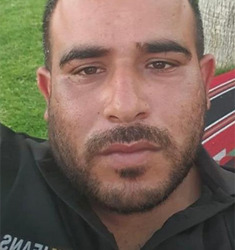
2022: On Nov 23, we lost 18 years old Tiran Faro
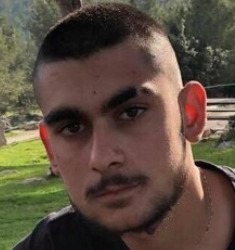
2021: On May 12, we lost 5 years old Ido Avigal
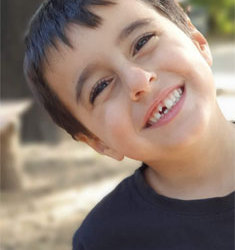
2020: On Aug 26, we lost 39 years old Shai Ochayon
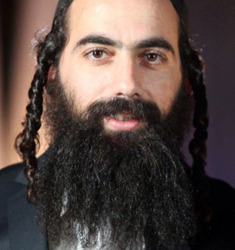
2019: On May 5, we lost 49 years old Zaid al-Chamamda
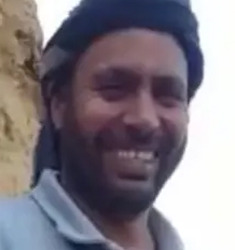
2018: On Dec 12, we lost Amiad Israel Yish Ran, who was murdered in his mother's womb

2017: On Nov 22, we lost 21 years old Hodaya Nechama Assoulin
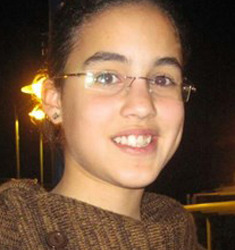
2016: On Oct 25, we lost 14 years old Rami Namer abu Amar
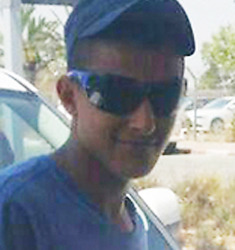
2015: On Feb 17, we lost 4 years old Adelle Biton
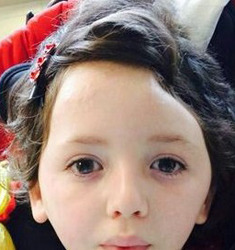
2014: On Oct 22, we lost 2.5 months old Chaya Zissel Brown
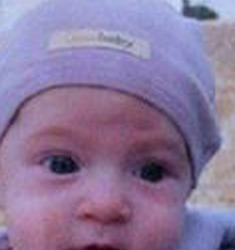
2013: On Dec 24, we lost 22 years old Salech al-Din abu al-Atayef
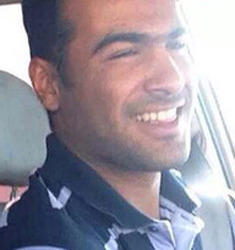
2012: On Jul 18, we lost 28 years old Yitzchak Idan Kolangi

2011: On Apr 17, we lost 16 years old Daniel Aryeh Viplich
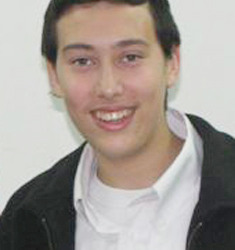
2010: On Feb 26, we lost 52 years old Netta Blatt Sorek
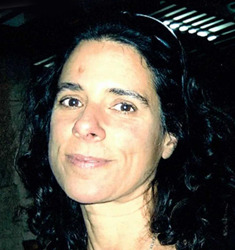
2009: On Apr 2, we lost 13 years old Shlomo Nativ
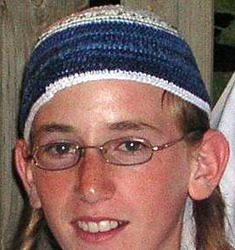
2008: On Mar 6, we lost 26 years old Doron Trunach Mahareta

2007: On Jun 17, we lost 85 years old Meir Cohen
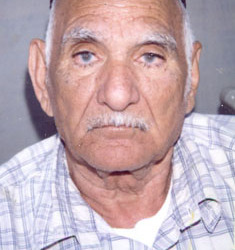
2006: On Aug 10, we lost 4 years old Fatchi Assdi
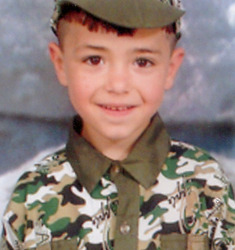
2005: On Jul 12, we lost 16 years old Nofar Horvitz

2004: On Sep 29, we lost 2 years old Dorit Massarat Binsan
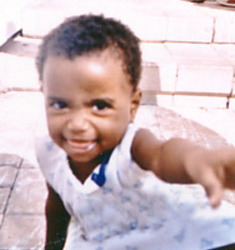
2003: On Sep 9, we lost 20 years old Naava Appelbom
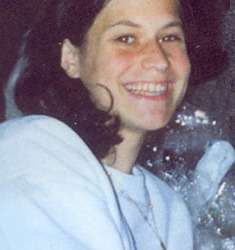
2002: On Nov 10, we lost 4 years old Noam Levi Ochayon
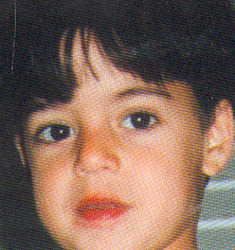
2001: On Dec 12, we lost 42 years old Ester Avraham
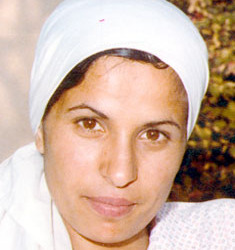
2000: On Nov 21, we lost 19 years old Itamar Yefet
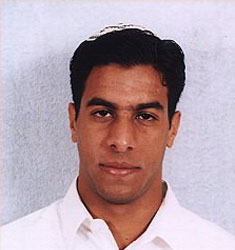
1999: On Jun 24, we lost 34 years old Tony Eliyahu Zanna

1998: On Dec 2, we lost 41 years old Osama Moussa abu Aisha
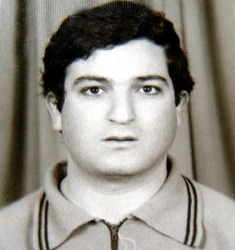
1997: On Mar 13, we lost 13 years old Natali Alkalai
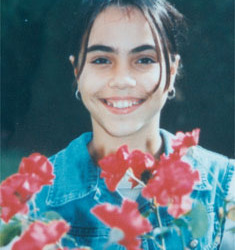
1996: On Feb 25, we lost 57 years old Yitzchak Elbaz
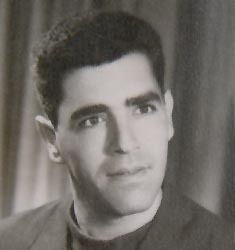
1995: On Jul 24, we lost 60 years old Zehava Oren
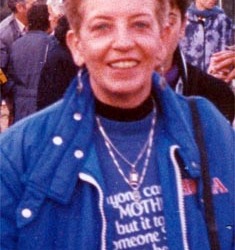
As Tumblr limits a post to 30 images... part 1/5 - the next parts will be posted in the reblogs momentarily. Please check out the full list.
(for all of my updates and ask replies regarding Israel, click here)
#israel#antisemitism#israeli#israel news#israel under attack#israel under fire#terrorism#anti terrorism#hamas#antisemitic#antisemites#jews#jew#judaism#jumblr#frumblr#jewish#israelunderattack
275 notes
·
View notes
Text
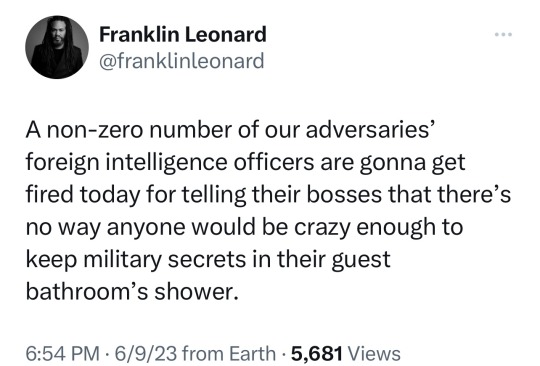

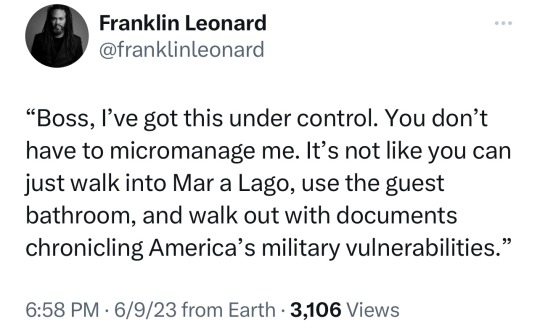

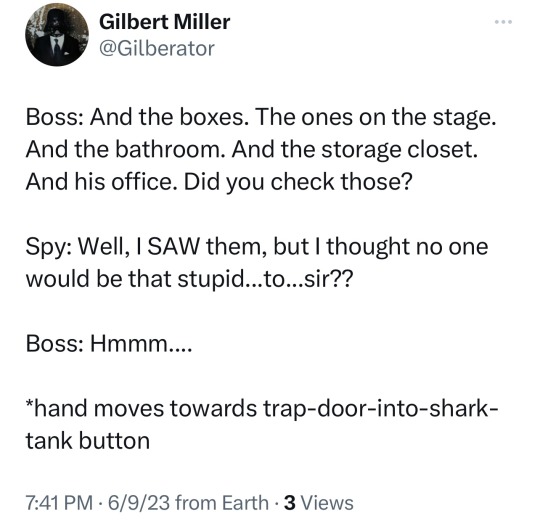



Whatever Top Secret documents were at Mar-a-Lago have definitely been compromised already.

Or sold by Trump, to Putin or the highest bidder.
👉🏿 https://www.newsweek.com/spies-may-have-targeted-documents-mishandled-trump-ex-cia-official-1737645
👉🏿 https://www.salon.com/2019/08/03/trumps-white-house-issues-an-ominous-request-for-a-list-of-top-u-s-spies_partner/
👉🏿 https://www.telegraph.co.uk/world-news/2022/08/26/classified-documents-linked-human-spies-found-donald-trumps/
👉🏿 https://www.gq.com/story/cia-pulled-russia-spy-because-trump
478 notes
·
View notes
Text
ERICSON'S WALLFLOWER
or bpd as a twdg fandom essay, & violet's analysis
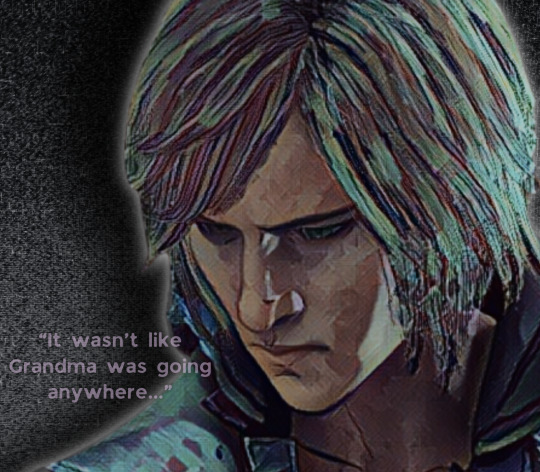
[Mar.26-29.2024 | 27,991]
Throughout my time spent within the TWDG fandom—since late 2019, early 2020—, Violet as not merely a love interest but a character exists as the fandom’s staunch polarization. And the funny thing?
I get it. A lot.
Much of what I’ve read into this character has been extrapolated from my own experiences, and those experiences speak to an inherent, polarizing chaos. It’s something that’s quite honestly a purgatory to try and articulate—I have tried—, and another bane to hope that people will get it. At least, enough to not just sweep my words under the rug. This essay is ultimately a trial to see if I’ve done enough work with myself, both emotionally and in writing, to be able to explain this to those none the wiser, or to the some who feel the same things, but have yet to hear it spoken with absolute clarity.
Through a fandom essay, no less. Specifically about a video game character who grows on people—Louis promises so.
Borderline Personality Disorder.
Nobody really likes to talk about it. Too many times in my life, I’ve had people sweep it under the rug because it is not a pretty thing, in times where I was pleading for help; often, in presence of the wrong crowd, it feels like a target nailed to my back.
It’s intrenched within stigma. And what’s difficult about that is…, yeah. I get why. There’s no mystery to it.
…yet there is so much people do not understand because not talking about it is so much easier, and the joke is, talk therapy is quite literally BPD’s primary treatment.
And so let’s talk about it. Allow me to pull away the confusion this disorder brings, and lay it out—as best I can—in a more digestible manner, through a deconstruction of Violet. I’ll have a little fun with it. However, if this essay reads in a more…straightforward tone compared to the couple others I’ve written now, it should. I’ve attempted to write this in a more lighthearted language before, but it didn’t really get the message across well, I would slip to this anyway, so. Yeah. I will still be conversational, just less so.
With that, however, this is another long essay. I hope you enjoy. :)
[Given the subject matter & the inclusion of my own experiences, take heed. This discussion is sensitive. W/ my experiences, I assure you I'm fine. I speak from a place where I’ve worked through my experiences.]
[Also, to stop-breaking-my-heart-telltale: I reference Louis and one of your essays about him, hence the @. But this thing's real long and about Violet, and stuff. Lol.]
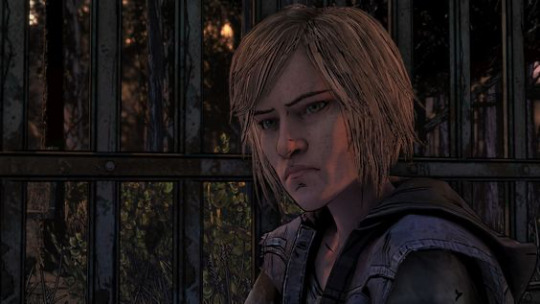
[Briefly, but Exhaustively, to Clarify]
Before any discussion of BPD, then Violet’s deconstruction, a few things.
One. No, I’m not outright diagnosing Violet with BPD. She isn’t diagnosed in the game. I’ve not heard anything by Telltale or anyone associated remark BPD either. None of the schoolkids, for the matter, are diagnosed because it’s not that kind of story. The most we’re given is a narrative that explores their patterns in behavior, and then one…“diagnosis” with Willy. That being the, uh, chronic masturbation. (No, I did not think masturbation would be included in this discussion, but here we are. Thanks, you bug-eyed child.) Even then, however, that was likely a symptom of a larger issue with Willy.
Instead, I like this character. I see a lot of myself in this character, recognize the patterns she exhibits, and I’m hardly the first to associate Violet with BPD—since though she’s not diagnosed…, she is a little bit textbook. I’ve also seen a lot of the fandom misinterpret, preemptively judge, Violet for the things she does.
And I don’t mean the confusion and betrayal players feel should they save Louis over Violet. That reaction is normal. Yes, feel confused and betrayed. Because that’s the intention. What I take issue with, and part of why I’ve wanted to write this for a long while, is the…undertones beneath what is generally said. The opinions, too, that go along with it. All of which, ultimately, feed into the stigma that BPD is so intrenched within. The ignorance, and the refusal to understand both why and how.
So I do this through Violet because I adore TWDG, I’m in a TWDG mood, and, she is actually a phenomenal example to use for discussions around BPD. No, she’s not canonically diagnosed, but, it is better to explain a character by using a researched concept, just as much as it’s easier to explain said concept through a fictional example.
…and myself.
This essay will have a lot of commentary based around my experiences. A lot of this disorder’s stigmatization makes it difficult to find good information to understand what it does—specifically from the perspective of the borderline personality, not observers—, because…it’s just not the same as ADHD or depression, which have been big talking points within the recent years. I also have ADHD—runs in the family. That said, conversations in mental health has its fair share of stigma regardless, it’s just that BPD…does not help itself, largely due to the concepts I’ll be going over.
Also, I am very similar to Violet, down to how we dress, but also in personality. We’re not the same, but there’s enough where I feel like I can explain a lot of this character in relation to BPD. Because it’s a personality disorder. In similar personalities, the disorder will—more often than not—present itself the same way.
This does lead me to a third: as much as I’d like to say that this discussion will be the absolute, universal truth, the reality is no, this discussion will likely have blind-spots. It won’t be universal. For a myriad of reasons.
BPD is, again, a personality disorder. Its expression is entirely dependent on the personality, and the experiences established. So anyone who is not an indifferent/apathetic person, who is more extroverted and not the marginal recluse that I am, there will be aspects of this that won’t align. The rudimentary concepts may apply, but the expressions and emotional processings behind these concepts may not.
This also bleeds into the fact that BPD overlaps with many conditions, and traits of the disorder can be found elsewhere. Which, quite frankly, is fairly standard for most disorders, because it’s about the expression and amalgamation of the traits, not the traits themselves. So, as I discuss BPD, you’ll likely find yourself relating to certain points.
Do not take this to mean that you yourself have borderline.
Well, okay. You might. There’s nothing wrong with doing research, and to evaluate all of your resources. Keep in mind, however, there is a difference between one condition relating to another, and one BPD relating to a likewise diagnosis.
BPD overlaps with many conditions (like ADHD); it shares many traits in others.
The reasons for it includes how BPD is developed, where the development will be alongside other conditions—like, say, PTSD—, or other conditions may predispose the condition—ADHD—, or, or, both.
And then, some of this relatability is due to language. There are limitations in the words I choose, especially when this essay is intended for a wider audience. When I say, I go from 0 to 100, you may know precisely what I’m putting down, or, your 0 to 100 is my 0 to 10. And there will be that barrier in understanding because…we’re different people, with different experiences, living alongside different conditions.
Some of you reading will just never understand what it means to get whiplashed by your emotions at the drop of a dime, where you’re perfectly fine one minute, and then you feel like you’re about to have a heart attack the next because someone said something, and you don’t understand why it hurt you the way it did, but it did, and you’ve already lost your shit, but you don’t want to do anything, but you can’t trust that you won’t… All…with the guilt that it is happening again, and you should have known better, and it’s all your fault…
Yeah. It’s okay if you don’t understand what that’s like. And to be quite blunt, if you don’t, be grateful. BPD isn’t fun for anyone. There are slight blessings, but those are gravely overshadowed.
Given that I do expect a lot of people reading this won’t understand, this essay will be exhaustive. I don’t really want to cut corners, even though certain aspects of my experiences will be kept to myself, and not everything about this disorder can be related to a video game character.
I do want to give it its due. The drafts before fell into the trap of not articulating precisely what I wanted, with the transparency I needed.
…hence why it’s long, but with that, let’s start with understanding BPD at its core.
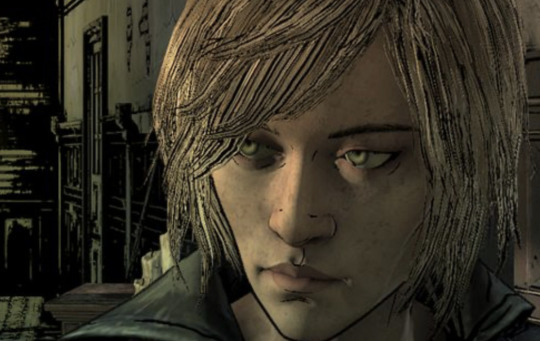
[BPD, in Experience, as an Introduction]
So. Borderline Personality Disorder.
Boiled down, it is purely the complete lack of, or, the severe impairment of emotional regulation.
That’s it.
That is literally all it is. And in understanding that, it explains (in part) how and why many of you may relate to certain aspects throughout this essay—emotions, and the (dys)regulation thereof, are integral to each and every one of us.
However, BPD is distinct, and I will comb through the how and why in this section. It is quite simplistic when boiled down, but this synopsis implicates everything about a person.
It is also. Not. Bipolar Disorder.
(Yeah, let me just kick this out of the way.)
Bipolar Disorder is about the brain chemistry, and is defined by manic and depressive swings.
Borderline Personality Disorder is a disorder of the personality. It’s systemic to the person. Could someone with BPD also have bipolar? Well, yes, which doesn’t help in the confusion, but to be the least bit informative, those instances often imply a specific BPD type (comorbid).
[Further resources will be linked at the end, for the BPD types, relationship with bipolar, and additional elements to come. For the sake of the essay, I won’t delve into this in-depth.]
This nuance—comorbid-BPD and bipolar—illustrates how complicated of a conversation BPD is. Again, it’s why this essay will be exhaustive, but also selective in what it covers.
Including, but not limited to, this kind of nuance.
To embark what a severe impairment/lack of emotional regulation means, it’s important first to establish the working definition of what emotions are—the definition, at least, which this essay utilizes.
Emotions are the reactionary senses of the body. Where sight, smell, touch, taste and hearing are the immediate feedback from the environment to the body, the emotions are the immediate responses to the stimuli, to prompt our actions thereafter.
Our relationship to our emotions is a very complicated one, because…we physically feel our emotions, which can be conflated with the feedback from our environment. Comprehension is also required to understand what, exactly, these emotions are signaling to us, because an environment isn’t just physical. Social, cultural, and psychological environments are included.
If you ever wonder what, exactly, a dog with the intelligence of a 3-year-old actually means, it’s their comprehension level of their emotions. These dogs are feeling the same emotions as a 3-year-old, and a 30-year-old. But there’s a catch: dogs don’t do the whole language acquisition thing like we do. Language acquisition being the learning process we undergo in our youth, because we are wired to speak and derive meaning through vocal, then visual, patterns.
I say this because a lot of emotions are, physically, perceived the same way, but we use language to distinguish one from another because contexts do matter. And they matter a lot.
Like, what’s the difference between lust and common excitement? They both feel similar, don’t they? But, lust is specific to a defined context.
And in this way, language absolutely contributes to the complexity of emotions.
But ultimately, emotions are just there to tell you what comforts you, and what doesn’t. It establishes what kind of environment you feel safe within, or at risk; the gradient within that establishes what you prefer, what you can tolerate. So the places you go to. The people you surround yourself with. Your interests. Activities. How you want to present yourself. Your morals, and ambitions. Identity and sense of self.
All of it is prompted by emotion, and your comprehension of that—ultimately through language—establishes how you respond.
How we actually navigate this is through regulation. Or rather, the process of self-comprehension, where an individual has to evaluate a situation, their internal reaction to such stimuli (both in thought and feelings), and the appropriate behavioral response. Dysregulation, then, is where that process is faulty.
So as we mature into adulthood, and our learned behaviors are set in stone (more or less; old dog, new trick or something), we’ve ideally learned how to comprehend these emotions, how to use language to articulate them and relay them to others, and find what is comfortable and what isn’t.
People get in the way of themselves, however.
For some fucking reason, we think we’re so fucking smart because we can talk, and we got thumbs, and we, like, stand on two feet. Or if we don’t got two fucking feet, we can build a wheely chair to sit our asses down.
And? We like to convince ourselves that we know better than our emotions, to the point where they’re disregarded. Of course, social contexts, understanding how your actions may impact others—those are all nuances which, yes, our emotions may not respect, but we do.
In regards to when people refuse to acknowledge emotions for what they are…
Piece of advice, from someone with BPD, emotions run like rivers. You do not decide what that river’s water is, how much there will be, and when it will flood. What you can decide is what canals to dig to retroactively contain that river, when to do that, and to establish how to treat the different flooding waters. You will drown if you think you can just ignore them.
Because the funny thing about water? If you fall high enough, land the wrong way, you might as well have hit stone.
In this way, emotions are devastating, and the mind and body has many mechanisms to deploy should an individual be constantly bombarded, and there is a need to prioritize our primary senses—touch, smell, sight… To prioritize a survival.
Take DID, for instance, where often it’s the mind “divorcing” itself into several identities in order to protect and shield the host from further trauma. There are many, many disorders like this where the brain deploys its failsafe, but that failsafe comes at a price.
BPD is, effectively, what happens when one of these mechanisms deploy, but the cost cripples an integral function to the human experience. It cripples the capability to dig those canals, redirect those rivers, and it can even imply a blindness to what kind of water is flooding.
…in many respects, this implies that BPD is, inherently, a disorder rooted in other conditions, just set to the absolute extreme. But when I say “absolute extreme” to someone who has never experienced emotional turmoil, the wrong impression may be impressed. Again, much of what I say may relate to your own experiences, and it’s why I have to take great care in articulating precisely what I mean because…it can be easily misinterpreted. Everybody has had moments where they are not in control of what they feel, and they do things. However, while the instances may look the same, the mechanisms, patterns and history behind them…are not.
Hence why BPD and bipolar are so often confused, because at the height of those disorders, it can very well look the same. I have had manic episodes that look identical to someone in a bipolar episode within one moment. But the differences are the mechanisms, patterns, and history. For these two disorders, it’s what’s actually going on in the brain, what stimuli we’re actually reacting to, and then timeframe. Mania in bipolar can last months; in me, I plummet into mania for minutes, or hours, or days—a week at most. And I can rocket right back out of it, back to an indifference, or into some other extreme.
And those mechanisms, and patterns, and histories are what make BPD, well, BPD.
We now get to how BPD happens. And though there is some debate, BPD is a developmental disorder. It’s created.
Through a number of factors. Genetics (like a family history), accompanying conditions (such as ADHD, autism, due to the predisposition to emotional dysregulation), past experiences of trauma, and, the environment.
And that’s the footnote version. Because this disorder, while there are strong patterns observed across diagnosed individuals, again has its nuances. Going into what causes BPD will lead you down a steep rabbit hole—in part because it’s dependent on the person, history, and environment, and in part because…, well, there is stigma, and there’s a lot of unknowns. Borderline, as a name, is not telling of what the disorder is. There’s a long misogynistic history to the disorder’s criteria, despite the fact that there’s a lot of men out there that have stunted their emotions, will fly off the handle when their egos are slightly bruised, call themselves alphas, are vehemently loyal to that alpha identity…
Hm.
That’s a discussion for another day. Point being, I cannot indulge this essay into every kind of way a person can land themselves with the disorder. It’s never ending. I have other priorities to indulge. Such as:
What kind of abuse is commonly attributed to BPD?
The answer? For such a volatile personality?
Neglect.
Funny, isn’t it? How neglect—the absence of—is what often causes BPD, of all things. Most would likely scoff, because our world has groomed the idea that the other kinds are worse, and are what creates monsters. Because it doesn’t make good tv, does it? Like the times where I was sat in time-out for…some reason or another, on a bench beside a chalkboard. Upwards to 10 hours of the day—which is a long time at three years old. That doesn’t make for interesting scenes, does it?
No. And because it doesn’t, and stories like their spectacle, media relies on the other kinds. To the point now where it’s necessary for our idled attention spans.
To be clear, this isn’t to demote abuse types outside of neglect, nor is it to insinuate that they cannot coexist within one circumstance. The fact of the matter is, different traumas with different people in different environments will lead to different conditions. There is no worth in proving to each other which trauma is worse or better, because it’s entirely dependent on the people and environment(s) involved.
What I will demote is the common, ignorant insinuation that neglect doesn’t destroy a person.
It’s why it is ironic, how BPD—an explosive thing—is often born from neglect.
How it does such a thing is…complicated. Lucky for this essay, I’ve lived it.
Within the first handful of years in my life, there were many things like sitting on that stupid bench in my room, for hours upon hours. My parents, at the time, were young themselves and fresh from college. My dad was in the military, so he had been deployed, leaving my mom alone with me, and…her BPD. I suspect postpartum made things worse.
Before you assume, it isn’t that she didn’t love me. Quite the opposite, but it was only through the divorce a few years later was she diagnosed. So, she didn’t have the resources for such a disorder at the time. Which made things worse, because part of treating BPD is being aware you have it.
The thing about these kinds of abuse is that…they come from the people you least want to admit, and for me, it had been my own mother.
And, the thing about neglect, especially mine, is that it’s hard to explain how no…, she was home. It wasn’t like she’d leave me like that. But, even so, I couldn’t tell you what the fuck she was doing when she wasn’t in the same room.
I was left to my own devices. I told myself stories with my stuffed animals to pass the time. I was often hungry too, and there are two accounts from family where, upon visiting, they saw this little toddler know how to work the baby-gate to the kitchen, and start to prepare food—sandwiches for me, and I’d pour food for the dog.
I seldom spoke, was borderline mute. Didn’t really converse until four. But I knew what people were saying before that. I did also pick-up behaviors from my dog as well; I would pant whenever I was happy, and whimper instead of cry.
By the tail-end, as I was getting into kindergarten, my brother was born, the divorce was in motion, and my dad would thankfully win full custody, and my mom, visitation.
You see, through those initial years, those mechanisms deployed.
I had to swallow down the instinct that the parent would be the one to nurture, and I had to find ways to feed myself, then my best friend and true guardian—the dog. Had to learn how to work things like a baby-gate. I also had to be vigilant of her, and know what mood she was in.
It’s these two things, working together, which utterly fractured me emotionally. The feeling of being hungry, truly hungry, is not something I wish for anyone. The realization that it’s not because you’re out of food—not until the separation began, and the weekends with my mom were marked by this hunger—, but because you don’t know how to get that food, and the bigger person is not getting the food, so you try to learn but you are still a small child… It’s even worse. It does something to you. Then, having to sacrifice your own emotional nourishment in order to keep an eye on an adult’s volatility is that final nail.
That was the first stage of my neglect. And it was bad. It was a really, really bad situation. My brother only lived with my mom for a couple years before Dad’s full custody. In that time, from when our mother was the only one to take care of us with my dad helpless in a different country, then to switching every week, he developed OCD tendencies, which are still present.
Twenty years later now, it’s been remarked that I was…kinda the best candidate to survive this out of not just my brother and I, but our cousins as well. And I agree. I’m naturally reserved, and even as a kid, I would push back against my mom. It would ignite her, but the fact that I was confrontation said enough. Meanwhile…, I do not know how the fuck my brother would be mentally if he’d been the one stuck alone with her for those three, four years. I don’t know what my dad would’ve come back to whenever he was allowed to be with his family.
And I would not trade places if given the chance. Because even if I’m a black sheep, my mechanisms allowed me to get away as well-adjusted as I could be.
But… Still. Beneath those remarks…, there is a misunderstanding. When my family says I was the best candidate, it’s because they look at me and see a person who isn’t sick. When I say I was, I mean…my brother would have been worse off.
Granted, now that I’m out of school, it’s slowly dawned on them that…yeah no. There is something wrong.
…as I aged through childhood, I didn’t quite understand what the costs of the mechanisms deployed were, but I knew there was something very, very wrong even back then. And I would tell my family. Every now and again, throughout years, I’d raise alarm because I realized I reminded myself of my mom.
Only to be told that I wasn’t my mother, and that I was overreacting. Told me that, “People like her don’t know there’s something wrong—that’s the disorder.”
Come a mere few years ago, and I am told about times where my mother, as an adult not long before having me, would break down because she didn’t want to be like my grandmother.
There was a family history. My mother knew it. However, she was also diagnosed through the divorce, because she couldn’t take care of my brother and I. Highly doubt admitting her BPD was the reason was because “she didn’t know there was something wrong.”
I was told there was nothing wrong. Meanwhile, I would do things I didn’t understand, and experience the world in a way people around me didn’t, …as it turns out.
For one, which is still true now, I cannot cook for myself, in a kitchen, when it’s dark out. I also cannot cook when someone else is nearby, or already in the kitchen itself. I will wait, because should I cook in those times, there’s a feeling. And I can’t stand it. The feeling of—
Oh. No, the feeling isn’t being watched.
It’s the feeling where someone may be lurking, and I’m about to get caught. This is likely a remnant of times when I was very, very young, and I tried to feed myself, and I…was caught. And she blew up.
There are other behaviors like that, specific to me. Because the body remembers before you yourself.
In the years after my mom, I found myself in the second phase of neglect—the one, I argue, is what actually creates BPD.
And again. For another time. It came from the people I least want to admit.
The neglect, the denial, in every alarm I raised did something to me. Another thing, though given my experiences, it also did feel similar to the first phase. My family loves me, I understand, and I get why they denied. Because they knew about what was happening to me, then my brother, but circumstances had them trapped in watching from afar. A sort of…they didn’t get to me in time.
My mom was also a nightmare for my dad. So…, to see that resemblance is not something anybody wants to admit.
But still. I was in therapy (to socialize me), but that didn’t last forever, and people kinda just shrugged and thought it was good. The therapy did its job. Without noticing what was happening.
The mechanism that deployed was still there, never to be acknowledged. So it festered. It scarred my trauma over, and now, there’s a great blemish on my mental health.
And that blemish has a name, and it’s BPD—the disorder cultivated by the neglect of an aftermath. Where trauma struck, and there was no chance given to process it effectively, and to heal.
All of the nuances I’ve discussed before remain to be true. From what I understand, however, is that the primary reason why Borderline Personality Disorder can look so differently on so, so many people, through a range of traumas is…it’s consequence. BPD has its characteristics, the ones that distinguish, because ignoring the recovery after significant trauma presents itself the same.
Now, I’ll indulge in one of these characteristics.
It wasn’t until recent, as I embarked my adulthood, where I realized the core mechanism I had inadvertently deployed, the one that came with a price:
Alexithymia.
Or, emotional blindness.
This in itself is not considered a disorder, largely because (and for the sake of this essay) it is an associated symptom, a mechanism, of many, many conditions. Depression, PTSD, eating disorders, ADHD and autism (again), schizophrenia, and I can go on, and on, and on.
BPD is included, of course.
There are many ways to be blind. Take visual blindness, where it can be an absolute void, a severe impairment, some colors recognized but not all, or, there’s too much feedback at once, and the light becomes illegible. Being devoid of emotions, or apathetic, is the standard; some people may feel a perpetual onslaught that cannot be deciphered, and others could find themselves in between.
Whatever it may be, alexithymia is characterized as the impaired awareness, explicit identification, and/or articulation of one’s feelings. So, as long as the shoe fits, and the person can’t decipher, convey/express their emotions… That shoe’s not on the wrong foot.
In my case, I fall into the standard.
When I was young, I likely stifled my own emotions in exchange for vigilance. It never left, however. If anything, it got worse the more I neglected recovery. Now, I don’t feel much, day to day. I know I experience emotion, and react to my environment, and have thoughts… Yet, the environment is almost dreamlike. It doesn’t quite register, and the people in my life feel like figments unless I’m right there with them, in the same room. I’m indifferent to most. Memories are a lot like this too—not like I don’t remember anything at all, but in the moment, I kinda just exist. I can think and plan about the future too, but it’s that I’ve realized I have to, not that I feel any kind of urgency.
Because I don’t care. At all.
Or, I do, but there’s nothing in here to tell me that. Because my body, also, is quite null. It doesn’t tell me what I feel. I couldn’t tell you in the moment, so I’ll usually resort to, “I’m fine.” And inside this head of mine? Not much. Kinda like static—the tv is on, there’s a lot of channels going, but it’s just…not there. Beyond static.
So as I write this, and write any of my works, it's less of spilling all the crazy thoughts inside my head, organizing them, and more of me spilling an open wound I don't know how to close, figured I don't really want to close it, because I kinda just like watching it spill across the page and see what I'm thinking, and what I can create.
To be quite honest, being a writer in this way does legitimately feel like I'm a blind sculptor.
If all this sounds like a depressing experience, I'm fine. Genuinely. I am. This is actually quite comfortable for me, and it's also me at my most rational. Plus, it helps that I've developed a fairly strong coping means—this writing thing—that serves to be a therapy in emotional comprehension. Another mechanism, really, that is derivative of what I did as a toddler.
I'm also a hermit. I'm content with being reclusive, and to myself.
And again, I’ve already processed all of this. I wouldn’t be writing this essay otherwise.
So how does alexithymia relate to BPD? In what way is being apathetic mean I can fly off the handle?
What does alexithymia mean for an episode?
BPD episodes vary. Depends on the person, and a trigger, and the environment.
In the traditional a switch is flipped, and the person just loses it, it’s via said trigger. A legitimate trigger, not whatever TikTok is blabbering. Trigger as in to a gun, and it just takes one pull, and you’ve been set off.
When this happens—BPD or not—, it effectively shuts down the reasoning part of the individual’s brain, and sends them straight into fight-or-flight. They are in a very primal state, and will react on emotion alone.
In BPD, our brains are wired to do that in (potentially) a very, very short period of time. Can be literally a blink and you miss it. There’s a look in the eye. If you know, you know. It happens enough times to establish a history of this within the person. Forces people to walk on egg shells to avoid this. Because it’s scary. It can get scary.
Here’s the thing:
It’s scary for us too.
Not too long ago, a lot of changes happened in my life, and on my birthday, I was driving, and I wanted, so badly, to just swerve off the road and down into the woodland—the ditches would’ve been steep enough. Woke up that day wanting to. Didn’t understand why, but I also wasn’t asking because that reasoning part of my brain was switched off. That day, the episode wasn’t explosive, but had I brushed upon a trigger, or someone accidentally said/did something, it would likely have been the case.
I was in an agitated state—straying down the line between stability, and not, where at first glance I’m fine, but…the more you look, there’s something quite wrong.
I was also craving McDonald’s. So I went. I sat myself down on my own, and ate my food.
And suddenly… Literally nothing was wrong. Well, no. I was still mildly stressed from moving from college, but, nothing was wrong that day. I was just hungry, not suicidal. Yet…it felt like I was. Had me believe it for a hot minute.
Had I not had the burger, fries, and McFlurry… I don’t know. Had I had access to something swifter than a car. I really don’t know.
This is what the disorder does. This is why it’s scary for the people around, and terrifying for us.
And in those like me, where everything is null, until it isn’t, it’s terrifying in a specific way. Goes from 0 to 100. Can get to the point where I have pain shooting down my arms, like I’m about to have a heart attack, because everything comes down upon me at once. Or, in episodes like the one I just mentioned, it creeps up on you—that agitated state. To the point where I don’t realize I’m in it, just that I’m suddenly hyperaware of everything, and there is something wrong, but I am not asking why because I can’t. So I just do. Quite blindly. And eat because driving off a road is too much effort.
So it gets scary. In those like me, where emotions just aren’t registering, I can’t tell you what I’m feeling until after the fact, or after considerable thought. Which is also fucking difficult because I don’t rightly know what I’m thinking. But given the situation, that could be too fucking late. And if the situation has me alone, to myself?
With BPD, there are triggers we know to avoid because they are related to traumas. There are things that wouldn’t normally trigger, but somehow did because they were the straw that broke the camel’s back, and we didn’t even know we had a fucking camel. And then. Sometimes. We don’t even know what the fuck the trigger was, and will never know.
The last is very common when we’re unaware of our BPD, but…it also just happens sometimes as well. The world’s big. The shit life yeets is limitless. I dunno.
There’s also a humiliation to an episode. I don't know what's going on. I can't reason like I should, and I don't want you to look at me. I want you gone, especially if I have deemed you the trigger. I want to be left alone. Things will escalate, and escalate, and escalate until that is achieved.
And, there’s a guilt as well. Especially when you know you have BPD, because by then, you should know better, but apparently, you don’t.
This all sounds quite helpless, I realize. However, there’s a reason why talk therapy is the central form of treatment for BPD. Knowing how to communicate does wonders. For those with borderline, learning how to comprehend and articulate emotions, and knowing what triggers to avoid, is a long, arduous process, but it helps. In regulating emotions as best we can, and in explaining to people beforehand what to do—or after the fact, where it’s to explain it wasn’t their fault.
And for those without BPD? Being able to recognize the warning signs on a person is detrimental. Because, believe it or not, there are warning signs. Sometimes they could be the split-second before, however, if there is someone in an agitated state, knowing what that looks like means you know how to avoid an episode, and it gives room to be able to console the person beforehand.
As said. There’s a look in the eyes. I know, because that’s what I spent my first few years of life figuring out.
The arduous process also unveils the…ambiguous sides to BPD. The stuff that people don’t really talk as much, whenever BPD is brought to the table at all.
For this essay, I will spare a glance at identity. No, identity doesn’t have much to do with Violet. However, acknowledging this ambiguous side to BPD establishes just how far this disorder goes, and it tends to crop up when least expected. (It will do so in this essay.)
A disorder of emotional regulation implicates everything, and sense of self is guided by emotion.
So what happens to one’s identity if there’s no guide to that sense of self?
It’s bleak. Or there’s a turbulence. Either way, it’s hard to decipher what exactly you want out of life, and for yourself, because there’s just no good way to tell what makes you comfortable, and what doesn’t. But you still strive to find stability. So you mirror those around you. To blend in and be accepted. By chance, it can extend beyond humans; me mimicking my dog—panting when I’m happy, whimpering when I’m sad—, it was probably so that my dog would console me when my mom wasn’t around. Because my dog (a lovely boxer) was very attuned to me.
The conversation with identity is…just another complicated thing. And this one is harder to articulate, in part because it’s not really discussed by people who don’t have the disorder. As opposed to the mood swings.
All that to say, when it comes to this analysis, the truth is, there’s not a feasible way to explore the nuances such as Violet’s relationship with identity, or alexithymia, because they aren’t spoken aloud to give us enough insight, and by proxy, these aspects of BPD are not what Violet represents. But acknowledging such nuances provides a better understanding in what this disorder means.
Regardless, Violet is a representation BPD in relationships, and the dysfunction of those bonds. How it’s exacerbated within an apocalypse, and then the self-treatment of.
Or, or, Violet has…a tendency to be a wallflower. More or less.
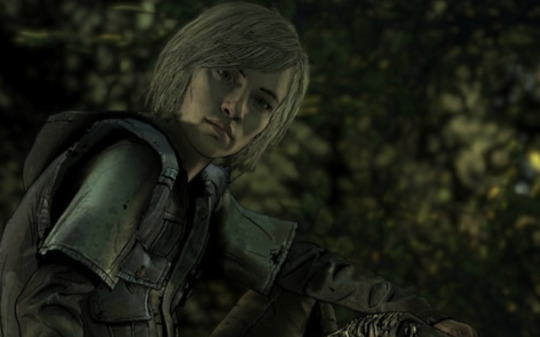
[Ericson's Resident Wallflower]
The Final Season (TFS) is particular when it comes to Violet. It will be evident throughout this essay, the care that the game and the team behind it devoted for her. From the dialogue to her actions, Telltale did well in illustrating this character. I will argue, however, that the quiet intensity in nuance laid throughout is what evoked the need to write this essay.
Because Violet represents something quite thoughtful in regards to mental health—the reality of what a disorder is, and what it can do.
So TFS is particular, and it begins with her introduction, where there’s this need to recontextualize her. Not once, but twice.
Clementine is first introduced to her silently. She follows Marlon out into the courtyard, and Tenn whistles at the wall.
Because on the school’s wall is a girl, and she rises from her lounging at its height. There’s a glance shared between Clementine and Violet, before Clementine speaks more with Marlon. After that, another glance, where Violet turns away—not before the player can spy a bit of intrigue in her face.
Clementine reunites with A.J, meets Louis, before a recontextualization, where Violet (she does talk) snarks about the crashed car, and the walkers that the accident brought to their door.
And it takes Louis to pry a proper greeting from her:
“Ahem. ‘Hello, Clementine. I’m Violet. Nice to meet you.’” “What he said.” [. . .] “Don’t mind Violet. She, uh…, grows on you. I promise.” [Ep.1 | Done Running | School Gate]
Good job, Violet. Way to be sociable.
Sarcasm aside, yeah, it’s a little rough. Violet is overall dismissive of Clementine, save for the comments. To the point where she has Louis introduce her ass.
Now Louis…is a quiet presence throughout this essay, though he is all the more integral to her character. There will be fewer words compared to other relationships, but those words signify a unique dichotomy between him and Violet, one that the other schoolkids—Minnie and Brody included—do not have with her.
And it starts immediately. That dichotomy. Louis is the one who tells Clementine Violet’s name. He is the one who formally introduces the two. Because he knows how Violet is. Ensures to lingers so that he tell Clementine—promise her—how Violet is worth sticking around for.
It’s just that the girl is troubled. So.
Thereafter, his banter is teasing, and Violet is still sardonic. But, she ultimately does play along. In her own way. When in the woods, and the schoolkids are focused on clearing walkers to have Aasim, Brody and Mitch make a safe return, Louis strikes the conversation, Violet scoffs, but can relent depending on the player’s dialogue choice(s). It is important to note that Violet scoffing doesn’t necessarily equate to her being mean; it’s clear through the card game later that…this is her way of banter, with Louis especially. She takes jabs at him. He retorts. Does the same. It’s on equal footing.
The next true recontextualization presents a taste of what Louis means. After clearing the walkers, and A.J socks Marlon, Clementine is left to acquaint herself with the other schoolkids. Mitch and Willy, Omar and Louis, Aasim, Ruby (where A.J apologizes for biting), and Tenn, right alongside Violet.
And those two are tending to the school’s makeshift cemetery. It brief, but Violet explains they lost the twins, and for the hour, they’re paying their respects.
From the wall, then the gate, then here, at their burial ground, it’s as though TFS wanted to scatter Violet’s introduction across her nuances. First it’s a silent couple glances, with her overlooking the courtyard at a perch, then it’s her being a little prick at the gate, a lightheartedness when mowing down walkers, and then it’s…this, a staunch vulnerability to and for her people. In context to the graves, her people being the twins.
All the moments that night thereafter feed into this. The card game goes back to an apathetic, yet also teasing, demeanor. Her shared conversation with Clementine, as A.J becomes an artist draws, it’s again a vulnerability, this time rattled by the fact that the dorm was once the twins’.
Throughout this first episode, Violet’s standing with the rest is shown to be quite reflective of this almost inconsistent preamble.
Marlon is the most succinct when he remarks, in the rain, after Clementine chooses to ask for Violet’s support:
“Violet being difficult. Why am I not surprised?” [Ep.1 | Done Running | Courtyard]
It’s such a blunt statement, intended to dig at her.
Though, there is truth to it. Violet’s introduction overall says as much. She admits it herself when in the dorm, and she finds that Clementine is housed where the twins were.
“Honestly, I just miss having someone around to talk to. [. . .] And I’m not, exactly, like…a people person. You know? I know I sometimes have a habit… Have a habit of being a little bit too harsh.” [Ep.1 | Done Running | Dorm]
Violet is not sociable, so naturally, she struggles to find someone to talk to. But, she is also sardonic—that much we got from the gate, even if it was followed by Louis’ banter which she reciprocates.
But ultimately, it’s Brody who gives the best context to Violet, and really voices what Louis is getting at.
When Clementine goes fishing, Brody begins a conversation, and within that, she can reveal based off the prompts:
[She’s…intense.] “She’s always been a little bit like that. But after the twins died, she really closed up.” [It wasn’t your fault.] “Still, I was the one that had to break the news to her. And ever since I did, she’s become distant.” [Ep.1 | Done Running | Fishing Cabin]
There’s two key things here, starting with the unsociability that Violet’s demeanor and Marlon’s slight reference.
Then, the revelation that Violet has closed herself off. She’s become distant within the past year.
…it implies that the Violet first introduced to us is not truly Violet, in a sense. It presents to the player thatmuch of her arc with Clementine will be about uncovering her, and really bringing Violet from this depressive spiral. Romantically or platonically so. And these lines are intended to both explain the character, and to incite enough intrigue for the player to follow Violet down her route.
But it’s rather unfortunate that so much of this character is hidden away from the start, because there's the chance that people glance over her, take this initial Violet as Violet, and decide to spend more time with Louis and follow down his route. Because, for the sake of this essay, it's damn near impossible to really appreciate this character when you don't go with her route.
Same can be said for Louis, of course. But, respectfully...
It ain't about him. So. Moving on.
Playing leader.
When Marlon is shot, Violet immediately jumps into action to protect Clementine and A.J from getting jumped by the rest, and she assumes the leadership role. Regardless of player choice. There is an curious point with her being a leader, though that will be set aside to explore later.
Instead, I’ll side-step, and bring about a piece of conversation upon Clementine and A.J’s return. In this, we gather a very telling side of Violet, one that speaks volumes to her character.
[Clementine] “You’re sitting in Marlon’s chair, aren’t you? You’re their leader now. They’ll listen to you.” [Violet] “They don’t, though. They only listen when they want to.” [Ep.2 | Suffer the Children | Office]
Again, we’re side-stepping from the playing leader thing. Violet says that they don’t listen to her—says it like it wasn’t a really a surprise, just a point of frustration. Because, of course, Violet’s difficult. The last leader said so. But also, none of them have stepped up to fill that role. They take issue with her, but none of the schoolkids have really challenged her to take the mantel for themselves.
The silent nuance here is…why is it that she’s the leader? Violet made it seem like she really didn’t want to be at the boarding school—what with the contention between most, then the fact that she’s still in mourning. Tenn appeared like he was the only one keeping her there, but by stepping up in this way, not necessarily.
His presence and her need to protect him is a huge factor. Absolutely. Just not the only one.
We return again to Louis, the one schoolkid with the shared dichotomy. He is the other love interest. Him and Violet are often on opposite sides—especially in regards to everything Marlon.
And yet…, the way they speak about each other when one is taken away says everything about such a dichotomy.
To start, we’ll look at Louis:
“I know I’m always teasing her. Trying to get her to do that one eye roll she does—you know the one. Where it’s like, ‘you’re such a dumbass,’ she has to do a full-body eye roll. I do it because, when I actually do manage to make her laugh, it’s worth it. If I needed her, she’d be there. Meat cleaver in hand, ready to chop someone in half if it meant protecting me.” [Ep.3 | Broken Toys | Dorm]
He brings context as to why their banter is so dogged to tease. Louis does it because it’s reciprocated once he gets under his skin, and she retorts back with the signature full-body eye roll, but also, because he’s striving to reach another side of her, one where she laughs.
Because Louis is a big entertainer. He craves to draw that out from people, so when he has someone like Violet where it’s not easy to do that, it means that much more when she does, because it tells Louis how despite everything, she is there, listening.
Then there’s Violet, and her words for him:
“You know, when I first got here, I hated him. He was so…much. You know? He walks into a room, and it’s like, ‘Look at me! Watch me perform!’ It’s so stupid. But then I realized, under all that, he… He really cares about people, and he doesn’t just feel it, he says it. He’ll tell you every goddamn day how much you mean to him. Shit, he’ll probably sing about it. [. . .] We’ve got to get him back.” [Ep.3 | Broken Toys | Dorm]
She nods to Louis being this big entertainer. Says that she hated it, and that it’s stupid. And yet, Violet thinks fondly of how genuine of a guy he is.
And between these two quotes, there’s a mastery in storytelling, because there’s an active dialogue between Louis and Violet. Doesn’t matter if one is on the boat, and they’re not. Their words parallel. Had they been in the room together, this would’ve been a back-and-forth.
Louis says that he teases her. Tries to get underneath her skin. Violet says that hated it, and hated him, for his antics. Yet, she then admits that…there’s a genuine nature there, because Louis does care, and he will say and sing it so. That genuine nature is the fact that he just really wants Violet to laugh, and to find that side of her.
Because Violet’s his friend. He values Violet as his protector, because Louis knows that she will be there whenever he desperately needed her.
And Louis is Violet’s friend. Which is why, without a word from Clementine, she states, firmly, that they need to get Louis back. Because in that hour, he was in peril, and he desperately needed Violet’s cleaver at hand.
It’s a tragedy, really, for both. When the other is taken, the one thing that each praise of the other is what’s stolen. For Louis, his knight is blinded; he has to be the one to protect her. For Violet, a comfort goes mute; she can sing in his place.
After spending a few moments with Clementine in the dorm, there’s Ruby’s hootenanny, and through that hootenanny, Violet can tell Clementine what brought her to Ericson’s:
“I spent a lot of time at my grandma’s house growing up, what with my dad being a drunk and my mom working three jobs. But after my grandpa died, Grandma just kinda…shut down. Spent all day and night rocking in her little chair in the den. I’d sit there at her feet as we both watched tv, mostly cartoons, since she never seemed to care. Sometimes I could hear her crying, but I didn’t look back. I’d just feel really weird and turn up the volume, you know? “Anyway, one day she left the den and came back with another chair, and a .22 rifle. Set the rifle butt on top of that chair, holding the barrel back to her chest. So, you know…, she had trouble reaching the trigger this way, but she must have known it would happen… Because she took out this really tacky wooden backscratcher—the real long kind with the one end shaped like a hand—and used that to push the trigger in. So…yeah. Bang, right? Her body folded up and just…kept rocking. “My mom came to get me five hours later. I hadn’t moved. She asked why I didn’t call the police or an ambulance or anything. I just shrugged and told her it wasn’t like Grandma was going anywhere…, and besides, I just wanted to finish my cartoons. She shipped me off to Ericson the next day. I was eleven.” [Ep.3 | Broken Toys | Piano Room]
Through all of what Violet tells Clementine, there is still that flare to make the story more interesting for, you know, a video game. It’s a violent kind of neglect she shares.
But it is neglect all the same.
Violet was born to an alcoholic and a mom who stretched herself thin to compensate, yet even so, she later can admit that their home was a trailer—so the income of three jobs, all her time spent away from her mom, wasn’t enough. Perhaps there were financial troubles. The money might’ve been all drained away by cans of beer, or bottles. Violet did have an escape through her grandparents, though that didn’t last, and she was trapped to the same neglect. This time, with a better house. Probably.
Until her grandmother went and shot herself.
…with Violet in the room. Right behind the child.
And? There was no consolation; she was sent straight to Ericson’s, where the apocalypse then struck, the adults left, and Violet…was the difficult one, designated as this wallflower, or buzzkill. There were the twins, Minnie especially. Yet, even then… That relationship likely wasn’t reciprocated.
The flare that TFS adds to why Violet found her place in troubled youth—the violence, which could’ve dashed the screen she watched for those five hours—, it hides much of what went wrong with her, but simultaneously, it defines the gravity of her childhood.
It describes a mechanism of hers. One undoubtedly developed from her times alone with a drunk, whenever her grandparents and mother weren’t there. A sense of apathy, and with it, a broken moral compass. To not mind yourself, and not get in the way. To let it happen, and just get it over with, in whatever way that could imply.
And, with the sheer gravity, it begs the question…, how far did that neglect go? All of the abuse, if it wasn’t the only kind. Children aren’t born to sit in one place for hours, with fresh gore rocking in a chair behind.
The question wasn’t answered, of course. She was sent away instead. Then there were the adults. And then, other schoolkids. Violet isn’t…a people person, you know, so it’s only natural for her to be the difficult one as Marlon says.
Still, however, with Clementine as they watch the stars together, Violet denotes for the bird constellation,
“A bird is free. It could go anywhere it wanted to. Up and up and up, and never come back. Go south, east, west, doesn’t matter. You could fly straight into a sunset. And see where it ends.” [Ep.2 | Suffer the Children | Belltower]
And to that,
[Clementine] “You wish it was you, don’t you?” [Violet] “Sometimes, when it all feels so heavy down here, I can’t help but wonder what it would be like to be weightless.” [Ep.2 | Suffer the Children | Belltower]
Violet has struggled to belong, and yet, she remains. Yes, there’s the apocalypse. However, in all the years at the school, she could have left just as well. There’s a version of her, lost in development, where Violet does leave had she not been saved.
So why didn’t she?
The answer to that, quite simply, is one Louis may admit to Clementine, should that version keep his tongue, and the silent nuance behind her playing leader:
Violet is too loyal to her people to leave.
It’s why Louis teases her, to try and find that laugh, and why he knows that if he needs her, she will be there to protect him. Violently, with a meat cleaver.
It’s why she takes charge, because Violet knows none of the others wanted to, but they needed someone to lead. Whether or not they appreciated that it was her.
And, it’s why she acts without thought to stand her ground against Marlon. If she’s asked, the camera doesn’t leave her because it is no surprise that she will stand beside Clementine, as opposed to Louis, where he decides with uncertainty, and the camera has him shuffle to frame; for Violet, the change in her face is immediate. The camera doesn’t have the time to idle in tension. What Louis says is dead-on:
“If I needed her, she’d be there. Meat cleaver in hand, ready to chop someone in half if it meant protecting me.” [Ep.3 | Broken Toys | Dorm]
Even if she isn’t asked, Violet will then stand her ground once Marlon is shot. She vouches for the outsiders, in the name of reason, and for the twins and Brody.
She doesn’t think when Clementine is in danger—didn’t matter that her and A.J are just exiled. Violet will do as told, trust Clementine—to shoot, or to run.
Takes the helm after Marlon. Backs Clementine every step of the way.
Cannot let Minnie go until she has to, and Violet has seen that the person she clung after is gone.
Violet is too loyal to her people to leave, for her loyalty unbridled.
It’s her strongest quality. It is, also, what marks Violet with borderline.
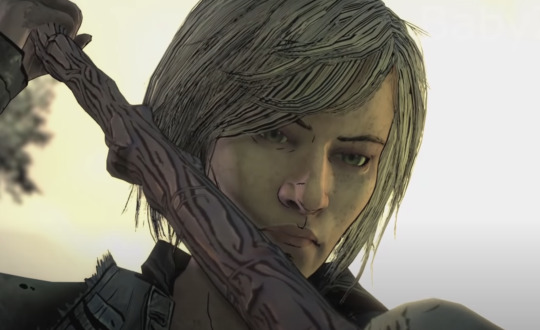
[Emotional Anchorage]
We slip back to describe BPD at large, beyond this essay and character. However, everything of this section has its place with Violet.
And it begins with emotional anchorage.
Emotional anchors are not inherent to BPD. It’s not unique to the disorder because, instead, I’d argue it is a universal experience. These anchors are anything which triggers an emotional response. These can be specific objects—like an old stuffed bear, a photograph, a house—, or stimuli—like a scent, a song. Tangible things like these are indicative of our nature. Humans like things. We like to collect, and tinker, and destroy. It helps if it’s shiny. It really helps when there’s fire or light involved.
Here's another thing about anchors:
They can be people.
They commonly are. It’s how we distinguish strangers from significant relationships—friends, family, partners. Anchorage is present despite the nuances between friends (just a friend vs BFF), and family (siblings vs parents vs offspring). And, partners—emotional anchorage explains how queerplatonic relationships come to be, because the fundamental element of a partner (being an emotional anchor) is present, it’s just the romantic and/or sexual implications are ambiguous.
Emotional anchoring is the process in establishing the anchor, leaving anchorage as this essay’s way to articulate the concept itself.
Borderline Personality Disorder will naturally encourage these attachments.
Within the community, BPD has a term: favorite person (or FP). It is as it reads. There is a designated favorite for us, and this favorite person can be a friend, a family member, or a partner—anybody, really. With FP, we begin to fall down the well in emotional anchoring as it pertains to the disorder.
Because, ultimately, a FP is either the strongest, or the only, emotional anchor an individual with BPD has. (For the sake of this essay, I will replace FP with primary/prime emotional anchor going forth, to be more consistent in word choice.) And the anchoring of this person is generally not intended. It just happens, where there’s a strike of intrigue, and everything follows thereafter.
The moment I anchor a person, it is a stark change from the indifference/apathy I display to I want to spend all my time with you, and I will literally die for you without a second thought. I will remember everything you value better than I remember my own, and I will present those nice things to you, at every opportunity. Tell me your favorite color once, and I will remember it for decades to come. Tell me to break my nose, and I may very well do it on the spot.
Which. Yes. Is intense.
Understanding the disorder behind it, however, allows me to take the precautions to…warn people beforehand. And to tell them upfront, if ever I am encroaching on boundaries, just say knock it the fuck off, Volt. In exchange…, I don’t take it personally. Because, uh, yeah. I can get intense. I understand. I may feel a type of way in the moment where boundaries are made, but that’s the BPD talking in my ear.
But also, I know I value someone being upfront with me more than a passive rejection. Frustration is what sets me off—the not knowing why—, not the rejection in itself. Because if I don’t know why, that’s how I interpret things as abandonment.
I have been rejected many times in life by people I’ve deemed emotional anchors. And it stung. A lot. Far beyond what I could ever articulate, but if I had to try, they are wounds carved to the bone, or with one, where my heart was quite utterly eviscerated.
There’s a deeper conversation there, with an anchor changing before my eyes. And, yes, it’s ultimately this which the essay will discuss in great detail. Through Violet.
Yet, before that, emotional anchorage is one of the few things that borderline has the chance to gift a person, because it’s not all bad. If you’re like me—where everything is null, and blurry, and static—, having a person suddenly there to awaken my body to speak, sharpen the world, and bring chaos inside my head… It’s a lot. It’s demonstrably a devastating thing, but in a very raw and beautiful way.
Demiromanticism, no doubt, is a reflection of how I express BPD. So to realize my demi ass has feelings, whenever it happens, is nice. …it also means I then have to determine whether it’s that, or a crush. And there is a difference between genuine feelings and a crush, and yeah, I prefer one over the other.
But. (And this can be platonic or romantic.) Having someone be that anchor grounds me, and while the relationship will have turbulence—because the boat I sail is on a river I can’t build canals for—, there brings such a confusing clarity to the world. I have a purpose where I didn’t think I did before.
It’s a high. A borderline addiction.
To not a thing, not a habit, but a person.
When it’s healthy, it’s everything, and I can brave all storms. When it’s not, it’s obsession and mania, it’s my boat trapped in a whirlpool with the anchor at the center of it all; I may break away, violently, or I will sink, and it will be the death of me.
…and when there’s no anchor there at all, I and my boat are to the whim of the river—because there are no canals, I have to rely on my boat to guide me and find an anchor. This can be where people turn to destructive behaviors. Substance abuse. Eating disorders. Everything alike.
Why though?
Why is it this way? Why do people like me sink their teeth and set anchorage like this?
This is where identity creeps its way back.
Because though anybody can develop emotional attachments, to the point of anchorage, BPD again does this to an absolute extreme. My personal anecdote may speak to it without debate. Understanding how identity gets itself involved further speaks to that extreme. BPD isn’t necessarily about the traits themselves, right? So rather, it’s how they manifest, and fester, and the mechanisms behind it all.
With identity, it hinges on what you find comfortable, and what you don’t. It’s guided by your feelings on things, and your comprehensive response thereafter. Passions turn into aspirations. Self-perception feeds into expression. And on and on.
So, if someone does not have a stable sense of self, there is a disturbance in identity. There’s no coherence to the person. Few consistencies, if any at all.
The identity is as stable as your regulation of emotions allow, and if it’s dysregulated, so will your identity.
A broken sense of self fractures a person. So we scour for stability. We do so in people. But with that broken sense, it’s easier to just swap out characteristics and emulate the environment, should there be a promise of stability. When this happens, it can be recognized as masking—because, debatably, it is—, but it can also go so far that people confuse this borderline trait with something like DID.
To those none the wiser, yeah, it might as well be DID. Because, like…, they just change so quickly. And if it’s a matter of mirroring different people, it can also imply that the BPD encourages the person to alter their personality depending on who they’re with at the time. Which. Yes. Has the capacity to resemble switching between split personalities from an observer’s perspective.
However. I have outlined (in quite the broad stroke) what DID is: a split in identities, in order to protect and shield the individual from further trauma. It’s dissociative in nature, where the distinct, established personalities will operate the individual at different times—given the nuances which come with DID.
BPD does come with dissociation as well—my personal experience with how I live day to day is indicative of, for simplicity, derealization and depersonalization. However, it’s not a split. What’s happening is this one identity does not have a stable, set personality. With the incapability to regulate emotions, it indicates a level of alexithymia. So how are we supposed to understand what we want, and don’t want, in everything from interests to moral standing? Things that a personality is grown from?
This copycat behavior is in itself a mechanism that BPD deploys. It’s kinda masking, not to purely to hide from and integrate into social norms, but also to find a sense of self through a very, very desperate act of scavenging.
In BPD, the best candidates to copy are the people who make us feel good—get a high from—, and that we want to be around, and whom we fixate upon—to a manic point:
Those emotional anchors.
As we go back to Violet, keep this in mind. Again, no, there’s no feasible way to remark for certain what her relationship with identity is like, so the implications that emotional anchoring has on identity can’t really be applied. But the intensity—the level of fixation—can.
Because Violet struggles in her bonds with other people. There’s an idealization present to those bonds, and a devaluation. Both this good and bad, the highs and lows, are via anchorages.
So we’ll start with Minnie.
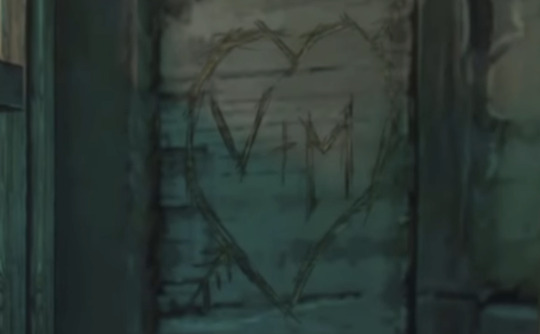
[Emotional Anchorage: An Obsessive Good Memory]
“Sophie was a good friend. And Minnie… Uh… We were close, me and her.” [Ep.1 | Done Running | Dorm]
When we meet Violet, amongst her introductions, Clementine learns about the twins from the two who still tend to their graves—Violet, and Tennessee. Not long after, there’s a card game, and not long after that, Violet finds Clementine and A.J in their dorm.
The one which was home to the twins.
“Huh. I see you’re, um…, settling in.” “Yeah. Is that okay?” “Sure. I guess. I always liked this room. Sophie had, like, paintings and shit on the walls. Lots of color. And Minerva…, she was really musical. [. . .] She had the most amazing voice. Real bluesy. [. . .] That was a long time ago. After they… Afterwards, Brody and Tenn took down all the paintings. And that was the end of it. I shouldn’t have even brought it up. It’s not a good memory. Guess I just lost my train of thought.” [Ep.1 | Done Running | Dorm]
The way she speaks of Minnie, there’s an adoration, and a nostalgia made bitter by the perceived tragedy.
Of course, those twins (…okay, well—) aren’t dead, they were traded. So even though Violet has yet to see Minnie, she is now a presence to her mind that isn’t nearly as bitter. She focuses on getting the school prepared for a fight, alongside Clementine, but through it all, yeah, Minnie is still there.
And when looking at the stars with Clementine, if Clementine remains quiet for the fish constellation, Violet comments,
“Bright, pretty, good with other people. Always moving, tons of energy. Sounds like anyone we know? The energy one is easy. Good with people, not so much. [. . .] Y’know, it… Well, maybe this is weird to bring up, but it reminds me of Minnie.” [Ep.2 | Suffer the Children | Belltower]
Minnie is a big part of her, despite their time and distance from each other. They grew up together. They got closer.
Another thing:
Violet never says girlfriend.
The only time where it’s “proclaimed” by the season that Minnie and Violet were girlfriends is through Clementine, where whenever A.J sees the carving in the fishing cabin’s wall, she can say,
“It means they were a couple. [. . .] Violet was Minnie’s girlfriend.” [Ep.1 | Done Running | Fishing Cabin]
Is it fair to assume that? Yeah. That’s…what carving a heart or potato with initials is supposed to symbolize.
But like.
Let’s be for real. What the ✨fuck✨ does Clementine know? Sure, she’s somehow not concussed after hauling ass in the sky, with a car. But she doesn’t know these people. Point blank.
We don’t know when this heart was carved. Just that it’s V + M (suggesting Violet did it, given the order), it’s out of the way from the school and in the fishing cabin, and it’s just shy from a bed (and alcohol).
Again, Violet herself never says girlfriend.
The heart could’ve been carved with Minnie there with her. Or, Violet was deep in mourning, and decided to brand the cabin—likely because it holds a significant memory.
…and Imma be honest, the cabin has a bed, and it is covered in bottles. Everywhere on the table. Some scattered around. So I will give the benefit of the doubt. Considering the…subtext around the fishing cabin, doing some quick math with my gamer instincts, yeah, if you leave youth (troubled or otherwise) alone, you might get Lord of the Flies, or…exploration. I guess.
It is clear that there was something. There is validity to “[w]e were close, me and her.”
The question then becomes why the ambiguity? Had TFS been made in a different time, and James didn’t have a boyfriend, and Violet and Clementine couldn’t be a couple, yes, it would’ve been Telltale beating around the bush.
Except even in this moment, Clementine outright says girlfriend in reference to a sapphic dynamic.
Because TFS was not made in a different time, James did have a boyfriend, and Violet and Clementine can kiss and hold hands.
The ambiguity indicates something else. That ambiguity is heightened the more Violet talks about Minnie pre-Broken Toys (saved Violet route). Because she speaks so fondly of her, with almost this conviction.
Yet…she still does not say girlfriend.
This is textbook. Given the essay, and what I’ve already exhausted over, it shouldn’t come as a surprise, but it is quite plain:
What Clementine stumbles upon isn’t a mourning over a lover; it’s instead, at its core, a lasting idealization.
With BPD, idealization is as follows:
“[A] way of coping with anxiety in which an object or person of ambivalence is viewed as perfect, or as having exaggerated positive qualities.” [Verywell Mind | Idealization and Devaluation in BPD]
This tracks.
Violet speaks so fondly of Minerva, with almost this conviction, yet she does not say girlfriend. Ever. Because the conviction is the intimacy, but Violet is a pragmatic individual. Though there’s idealization present, referring to Minnie as her girlfriend (for whatever reason) is too far for even her mental state.
Like she mourned Minnie for a year. She gushed about her to Clementine every chance she got. So…why not say it?
With this all established, TFS then allows us to witness how idealization in borderline often corrodes into devaluation—the inverse of idealization, its absolute antithesis.
“Used when a person characterizes themselves, an object, or another person as completely flawed, worthless, or as having exaggerated negative qualities [. . .] because there is often no middle ground for a person with BPD. Feeling challenged, threatened, or disappointed can quickly cause them to devalue the people they formally idealized. Rather than cope with the stress of ambivalence, devaluing functions to minimize the anxiety caused by ambiguity.” [Verywell Mind | Idealization and Devaluation in BPD]
This corrosion has a name. It is splitting.
Like with the previous definitions, I will allow my resource to explain this concept, because of everything this essay has to offer, it is this that the everything hinges on.
“Splitting involves an inability to hold two opposing thoughts, beliefs, or feelings. People who have BPD tend to view others in all-or-nothing [. . .] terms. “This self-protective defense mechanism aims to help people with BPD protect themselves from getting hurt in relationships. By labeling people as ‘good,’ they are able to engage in relationships despite the emotional risks. If they feel threatened, they can then quickly discard the individual or the relationship by labeling them as ‘bad.’ “Like most defense mechanisms, someone with BPD may not be aware that they are engaging devaluation and idealization. Splitting is a subconscious way to protect themselves from perceived stress[, and] reflects the challenges associated with maintain an integrated view of the good and bad in a person under stress. Some researchers suggest that some of the difficulty is rooted in the way the brain, particularly the amygdala and prefrontal lobe, activates in these experiences for people with BPD.” [Verywell Mind | Idealization and Devaluation in BPD]
…again, this essay has to break away from Violet and TFS to provide an insight, a discussion, of what this means for BPD.
I will start by clarifying that splitting from one end to the other is a bitch to deal with. The catch is not every person with BPD is incapable of reading the world beyond black-and-white. I’m one who can, …when I’m not in the midst of an episode. Day to day, I’m apathetic/indifferent—take your pick—, and because of that, I don’t give enough of a shit to really fixate on what is “good” and what is “bad” to me. I take everything as they go.
Because I really, really do not give a flying fuck.
The moment there is any seed of emotional attachment, or anchorage, it changes things. For me, it’s generally that I really adore this person, but they did something that hurt, and it confused me, so I shut down and close myself off. Namely so that I can have the time and space to breathe and process. Because I feel a lot for these people. I’ve gone over how intense that feeling is. And the last thing I want to do is hurt them.
So the moment I get confused, it boils into frustration, but frustration means ire with me. And that’s terrifying, because I don’t know what I can and will do if I’m backed into a corner. Because I know my brain shuts itself off.
The other thing to this as well is…it’s not always such a violent shift between idealization and devaluation. It really depends on how confused I am, the person, and then the time and distance laid between me and them. If there’s minimal distance between me and them, and minimal time between then and now, then yes, it will be explosive. If, say, a year has passed, and I have not seen this person within that time, then the splitting will look very different—largely because I don’t perceive it as an immediate danger, so my brain never shuts off, and I can process in the moment with reason. There’s still significant emotions there, of course, and given it’s still splitting, I do have that shift between the extremes. Difference is,I am able to regulate myself better.
Take note of this nuance, because it is absolutely present in Violet.
And we resume her relationship with Minnie, where we witness the corrosion from idealization, inching towards its antithesis. The process is best explored if Violet is saved, where it doesn’t taken an age, nor a day. It takes mere morning hours.
When spying upon the boat to get their bearings, and formulate a plan, they find Minnie chopping wood. Or, Clementine does, pulls a knife on her, before Violet intervenes. They embrace. Clementine has opinions off to the side.
Then.
They talk. And Minnie… Um. Well. If Delta was inspired by the New Frontier, Minnie would’ve had a fat branding right on her forehead.
Immediately, it becomes evident that Minerva has no interest in going back to the school. Her loyalty lies with the Delta. And given the prompt, she will have this to say:
[Violet’s in charge.] “Really? The Violet I knew could barely stand to talk to people, let alone play class president. You’re the one who convinced the school to fight back. From where I’m standing, that puts you in charge. Your ‘leadership’ is going to get my little brother killed.” [Ep.3 | Broken Toys | Forest]
Huh.
Not only does what she say about Violet directly contradict what Clementine sees from her, Minnie is also blatant in steamrolling right through the testament, and tells Clementine that no, you’re the leader, and you’re bad at it because you are a threat to my brother.
It’s a little jarring. Because, one, ouch. That’s mean. Mitch died because he ran into a knife, and it was not Clementine’s.
But two, what?! Violet, whose first line to Clementine is snark about her driving, could barely stand to talk to people? Violet. Who stood up to Marlon, cleaver at hand? The one who Louis says (given the other route) will do just that to any threat?
Our Violet, who Clementine gets to know. The one who immediately took the role after Marlon because nobody else did? Despite the fact that, yes, she realizes there’s no promise that the schoolkids will actually listen?
Violet…is openly sardonic, is she not? Does she not confront people with a weapon?
It’s a little jarring, then it’s…dissonant the more you pick it apart. Because what is Minnie talking about?
I will say, for sure, Violet changed within that year apart. But not to the degree that Minnie implies to us. We have Louis’ words for Violet, and then Violet herself—constantly brings up protecting the twins. And she’s shown she will. Violet will shoot Lilly if told. And Violet, after Marlon’s death, brandishes her cleaver to shield Clementine and A.J from the other schoolkids.
Maybe part of the change was that she vowed to herself that she’d do better after losing the twins. Wouldn’t be surprised.
…but Minnie didn’t like killing walkers, though. Which implies that, yes, Violet probably filled a protector role for her, in regards to the dead.
It’s baffling. I can go on and on and on.
Just as Violet did, between seeing Minnie after so long, and finding Clementine in her dorm.
“The thing is, seeing Minnie… I feel like it should’ve scared me. But it didn’t. The person we ran into in the woods, that wasn’t Minnie. Not really. The way she sounded, and acted… The way she talked about Sophie, and Lilly… I’m…confused, I guess.” [Ep.3 | Broken Toys | Dorm]
She voices the same sentiment.
But upon various dialogue prompts, the corrosion inches its way to Violet:
[She’s one of them now.] “It sucks, but…I don’t know what else I expected.” [It’s not Minnie’s fault.] “I never said it was. But it doesn’t change anything.” [We can save Minnie.] “You saw how she reacted when Lilly showed up. Those are her people now. And we are not.” [Ep.3 | Broken Toys | Dorm]
I do think it’s interesting that, even if Clementine says to Violet that Minnie could be saved, she says otherwise. Because Violet is pragmatic. Minerva coming back from the Delta is just not realistic.
So through time and distance, and the wake-up call in the woods, Violet expresses an acceptance of this. The fact that Minnie won’t come back. It’s not quite splitting, because…this isn’t a true devaluation here; it’s the idealization ebbing away.
“Minnie…, the real Minnie…, she’s gone. She’s been gone this whole time, and I…have to stop mourning her. I won’t let her take you or A.J. Or anyone else I care about.” [Ep.3 | Broken Toys | Dorm]
And she admits it to Clementine aloud. Promises her that she, and A.J, along with everyone else, will be protected from the Delta—from Minnie, if need be.
Not only that, if Violet is romanced, she makes a request:
“There’s something I’ve always wanted to try with someone I cared about. And I never have. [. . .] Have you ever danced with anyone before?” [Ep.3 | Broken Toys | Dorm]
I’ve always taken this line to signal how nervous, and how new Violet is to this kind of relationship. Because it is new to her. This is the first time where her feelings were reciprocated. She always wanted to try dancing with someone, but for whatever reason, never had with Minnie. And she’s nervous because…she wants it to be reciprocated, and Violet here is gaging a reaction, testing the waters.
In writing this essay, another thought occurred:
This is Violet moving on.
She’s nervous because there is a lot of weight to this request. She’s gaging what Clementine says, because Violet is invested now. All-in. 100%.
It’s not about Minerva—doesn’t even outright say that she never had a dance with Minnie.
Because by this point, through this dance, Violet’s realized just how unreciprocated her feelings were, because now, she has the chance to dance with someone who does reciprocate. And not just in the dance. Clementine’s loyalty extends further than that.
Another detail that I noticed is perpetuated throughout every interaction with Minnie is who she always prioritizes, and how it contrasts Clementine. With Clementine, of course A.J is first priority, and Violet understands that. And she goes out of her way to help with him. Conversely, Clementine helps with Tenn, and the school, and the other Ericson kids. All of which are who Violet also prioritizes.
Meanwhile, the same can’t be said for the other side of that contrast. Because it’s always what about Sophie and Minnie? from Violet, and never what about Tenn and Violet? from Minerva. It’s only ever Tennessee for her.
With the initial encounter, yes. She wouldn’t be asking about Violet because… Violet’s right there. She’s talking to her. However, we overhear Minnie talking to Dorian, asking to have Tenn join her. Not Violet. Then, further into the night, where suddenly she’s singing her own boss music and a red bar just takes up the whole screen, Minnie goes out of her way to claim Tenn.
And then, for good measure, axe Clementine.
But not because of Violet. Clementine gets axed regardless of who she saves, because Minnie…is far, far more pissed that Clementine put Tennessee in danger than anyone else. Including Violet.
The Delta changed Minerva. Yes.
Yet, Lilly never was able to remove her loyalty to her people. Her people being Tenn.
It’s telling, how (in)significant Violet was to her because all I read is…, it is nowhere close to the significance Minnie had on Violet. Because Minnie had other priorities.
She just happened to be Violet’s primary emotional anchor. And with that comes everything Violet could feasibly offer a person.
Here’s the thing to understand with this essay, and what I’m getting at with Minnie and Violet’s past relationship:
Violet anchoring Minnie is not Minnie’s fault. It’s not Violet’s either; a kid isn’t going to understand why they’re feeling a certain type of way, but when it feels nice, they will follow. Especially when the adults responsible for troubled youth are just…gone.
But what this does bring to light is a nesting place for borderline’s stigma.
Emotional anchors, splitting between idealization and devaluation—these concepts are the source for much of the fear against people with BPD. When gathering articles to reference at the end, some articles I pull from r/BPD on Reddit because having resources that are from people with experience asking and answering questions is incredibly valuable. Many discussions in r/BPD related to this (exchange primary emotional anchor with FP) are frustrating. For myself to read, because several are people not with BPD venting, but, I imagine it was frustrating to type out because…they’re venting for a reason.
Depending on the discussion, however, what is said is ignorant to all of what I know of my disorder. I know where it comes from. I know that the emotions behind all of what I do with anchorage are genuine. But then there’s people who vent, or there’s others who prompt a question because they are nervous that their friend (with BPD) is not genuine.
Of course, I can’t promise how other people with BPD are like. BPD is dependent on the personality, and if you have a shit personality. Um. Yeah. You’re not a fun person to be around. Sorry?
Not really, but, you know.
Stigma aside, it is true. I understand the insecurities, and the need to vent. Being someone’s anchor because of borderline is a lot of fucking pressure, and truth be told, it’s like that because…what if you just can’t reciprocate the intensity? After that honeymoon phase, people without the underlying disorder tend to get exhausted emotionally, meanwhile…, there is no cease from the other.
So people tend to draw away. They either do so quietly, in attempt to not hurt feelings, or, they’ll be direct and antagonize because of they stress they’re under. Either way, if the condition has gone untreated, the confusion this brings will then ignite the individual’s borderline. This is where you get insecurities born within the relationship, which the person can then go further and self-sabotage because there is no regulating themselves. You get constant bombardment whenever they feel neglected. They’re overbearing. You feel that their claws are dug deep, and it’s far deeper than you could’ve ever imagined.
Because there’s an anchorage.
If this is what happened, and Minnie entertained Violet, but never reciprocated the magnitude of devotion Violet brings with her… I can’t blame the girl. And given that Minnie was a troubled youth just as much as Violet was, she had her fair share of issues.
Because frankly, I don’t care if she was brainwashed or what, Minnie still killed her twin sister. You know, the one that has been in the same situations, the same environments, throughout Minnie’s life, yet when she saw the Delta, Sophie did not fold. Sophie actively fought against the Delta, whereas Minnie…complied.
Even before they were caught on the raft that Sophie planned to steal.
“One of the girls saw that this was a place worth fighting for, and her tears dried. But the other twin, she could never forget her old home. She rejected every gift, every opportunity. Stirred up trouble every chance she got. She convinced her sister to help her steal a raft and leave on the river. Of course, they didn't get far. What happened then, Minerva?” [Ep.3 | Broken Toys | Brig]
This Parable of Twins is, of course, by Lilly’s word, and yes, she did brainwash Minnie. So naturally, there will be an element here where the details are lost. I buy that Minnie did accept her place in the Delta where Sophie never did, but I don’t really believe that it was just because she saw it was a place worth fighting for.
The reality of Minerva is she’s a very conflicted person, and she’s passive by nature. She’s a good head taller than Violet, yet, when Violet talks about her (and Sophie), it’s always about protecting her. Because Minnie didn’t like killing walkers.
I also wonder if the reason why she’s so passive is because Sophie…might’ve been the one that got her and Tenn into trouble right with her, if she was more combative. As for the confliction, Minerva may have been caught in between—because there’s a combative twin, and then there’s a younger brother to protect, one who’s passive to a fault.
It’s this confliction and passiveness that has Minnie primed for manipulation. She will seek stability through, well, passive means. With the Delta, do as they say.
…and with Violet, it’s let the girl have her infatuation, maybe entertain it, but don’t cross too far into romantic territory because the girl’s a little too intense.
(Of course, Minnie is also the one who was practically dead herself while leading a herd by voice alone, to kill her brother and maybe do a little slashing. So like, she is just as intense, just…in less of a loyal kind of way, and more in fucking unhinged way. Because she also might’ve been the one to instill Tenn’s beliefs.)
Once it’s revealed what happened to Sophie, Violet snaps. She yells at Minerva.
But even still, there’s a slip of that anchorage:
“Who are you?! Fuck survival! Look at what you’re doing! Minnie, please, I just want to talk to you for a second! I’m sorry we never searched for you, for Sophie… I’m sorry we trusted that fucker, Marlon. If I ever thought there was a chance—” [Ep.3 | Broken Toys | Dorm]
Following this, time ticks away with a bomb in a boiler, so Clementine lunges for an escape—to get A.J back to her side. And Minnie tries to stop her.
With a knife near-identical to Jane’s in S2. And it manages to gouge a near-identical scar in Clementine’s sternum. A stark parallel to S2’s ending. Except, Violet doesn’t hesitate. The moment she is out of the cell, she disappears into the backdrop, then an arrow finds its place in Minerva’s shoulder not long thereafter.
She does stay at her side, for when the schoolkids leave. Perhaps for closure, if the previous dialogue gives any indication.
Because even though Violet shot Minnie, moved on from her with a dance, and realized that she wasn’t going to return, that anchor is still there. Minnie was, after all, still a significant part of her, and that…doesn’t really ever just go away. The idealization may have drained, but the feelings themselves do remain.
We then look to another Violet, who was taken rather than saved.
“At least here I have Minnie… [. . .] Don’t act like you know her. She tried to escape. Her and Sophie. They said if I fight back, they’d kill Minnie. Or one of you. All you’ve done is get us hurt or killed. If you fuck this up worse, I’ll stop you myself. And don’t think I won’t. I’m not losing her again, or anyone else.” [Ep.3 | Broken Toys | Brig]
And another aspect of BPD, and anchorage, becomes clear:
Borderline primes people for manipulation, much in the same way that a passive and conflicted nature primed Minnie.
There’s a flipside to emotional anchoring in BPD, and it has everything to do with how the disorder forces people to become reliant on their anchors. People who cannot discern nor regulate their own emotions, and people with a bleak, instable sense of identity.
Which is a problem because there are people who’re able to take a person’s emotions, and weaponize them as a puppeteer. They manipulate through any means necessary.
Most, in an effort to avoid being manipulated themselves, try to hide their emotions and keep them out of reach. They suppress them, because suppressing your emotions is how you get the most control, and nobody else.
Right?
Coming from experience, do not do this. Suppressing your emotions is the last thing you want to do.
Especially if you want to avoid getting yourself manipulated.
I felt that I had to suppress not just as a child, but before that, because I was in a fucked situation. And it did this to me.I have no control. Life is a writhing storm at sea, and I just fucking hope I can find an anchor within the storm’s eye—but I know there’ll never be a calm to this storm.
And the wrong people know this. The ones who prey and manipulate to abuse the loyalty I am so desperate to offer, and can pull it from me with ease, should idealization blind me from the warning signs.
When Violet is saved, she sees through Minnie quickly. Because it’s in how Minnie talks. And it’s weird, because Violet also includes how she talked about Sophie, when the most Minnie said was “she died protecting the Delta. A hero” once prompted by Violet’s concern. That shouldn’t have raised alarm, yet…something about it did. To Violet.
So she’s able to let go. Violet still holds the memory of Minnie quite dear to her heart—the one in her head—, but after this, it was more about closure, not bringing her back. And all it took was that one interaction.
But here, back to a Violet taken away, it takes longer. She’s not told what actually happened to Sophie; instead, both Minerva and Lilly feed into a broken trust with Clementine, and condemns Violet back to the girl who sat with Grandma’s body rocking behind her.
Her loyalty blinds her to what Minnie has devolved into, so she goes and tries to stop the bomb, save the boat, and secure a future with her because Minnie is all she knows and trusts.
Yet.
It’s broken when Violet does. Because Violet has her face marred by the bomb. She’s left to defend herself—blindly—as she clambers out of the water with a walker snagged at the leg. She asks for Minnie at first, is led by Louis, and then…it becomes clear what happened when they hear gunshots, clearing away the walkers.
Minnie. Is left. Unscathed.
Well, okay. She does, like, panic and stuff, and then gets bit. So, that explosion had been her death sentence.
But Minnie is not burned. Not like Violet.
Which…implies something. However it happened, Violet was the one closest to the bomb, and Violet was further down the beach, towards the boat, whereas when Clementine, A.J and Louis reach her, Minnie is away, towards the woodland. Getting her ass bit. A bunch.
She either got off the boat at a different (earlier) time, or, she just…abandoned Violet. To defend the last of the boat and her crew. And, probably, to look for Tenn.
Leaving Violet to realize something, and as she struggles to see the world, she begins to try and apologize. To Clementine. Who didn’t lie to her about the fucking bomb on the boat, and given that, it also kinda explains why Clementine didn’t take her sweet time consoling Violet from her episode because. Um. The bomb.
Whatever it was that happened, it’s enough to rattle Violet to reason. And to snap her out of it.
Within one interaction. (…explosion.)
It’s…the little things like this—the ones that go unsaid—, which indicate Minnie’s sense of priorities, and how even when Violet actively worked to help save the boat, those priorities never were Violet. Before this, she manipulated and lied to her, and (via the alternative path) she never…danced with Violet, despite Minnie being the musical twin. Instead, Violet never danced, but she does sing now.
Which again has me wonder, was it Minnie entertaining Violet, and/or, if the subtext found in the fishing cabin does indicate this, was it never romantic like how Violet wanted? Just physical?
I’m kinda losing my mind over here?!
There was always an imbalance. Violet always prioritized Minnie, and her sister, and her brother. She prioritized the latter two because of Minnie, and then prioritized Tenn after the sisters were traded off. Prioritized Minnie’s interests—singing, and took it on herself—, and left her own—like the dancing—to…wane in self-doubt.
And then…, we have Minnie who killed her twin, and then went after Tenn to also kill him. The killing part is, well, the brainwashing and trauma, and stuff, but point being… Violet is still not in the equation. She’s an afterthought to Minnie.
This isn’t to say that Violet and Minnie’s relationship was downright toxic, or abusive, or anything along those lines. All we have is Violet’s word. But given Violet clearly glorified Minnie to herself, her word is unreliable.
What this is all to say is…, it was no mistake on Telltale’s part to have Violet physically blind, or then speak about how she had been blinded figuratively—before reality set in. Down one route, this was done by having the wool pulled from her eyes; down the other, it was the blinding in itself that brought her clarity.
It’s what I mean when I say that Violet’s unbridled loyalty is also her bane. She establishes strong and intense emotional anchors, to the point where should that anchor be lost, she will refuse to let go. And not because she wants to trap herself to that anchor, but because that’s…how BPD is. Attachments like this are really hard to shake off. But also, Violet didn’t know who else to turn to.
There’s Tenn, sure, but she’s his protector, not the other way around. There’s some of the others—Mitch, Willy, Ruby, Aasim—who we don’t get enough time to really see how Violet is with them. Marlon she tolerates, but there’s a clear strain between them.
Louis— God, there’s Louis, and he’s the one that she is vehement about getting back—indicating that he is yet another anchor for her. Thing is, he was also Marlon’s best friend, and they are…opposites. A lot of conflict comes from that.
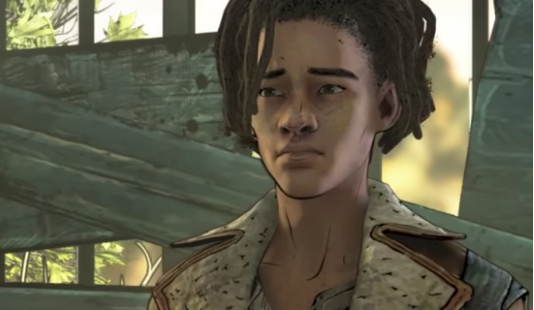
…this essay really doesn’t have much to say with Louis and Violet. In part because, frankly, I didn’t really know where I could put him with the points I strive to make. There is absolutely space for him, yet, another thing:
Their words for each other, when the other is taken, are enough. Louis and Violet say everything themselves.
I did give commentary to the dialogue quotes, but it was sparse for this precise reason. I don’t need to get into how quietly powerful their friendship is. Louis is the one who introduces Violet by name. He’s the one that promises Clementine that it’s just her way, because he knows her. If blinded, he’s also the one that she relies on to guide her. And despite Marlon, and perhaps despite even Clementine given the different routes, there is never a malice between them.
Which I adore TFS for doing, because it would’ve been easy to have them be rivals and fight over each other. Especially for Clementine.
But that’s also juvenile, and while those storylines have their place, it is not here.
Never has. Never will.
So there’s Louis. He’s an anchor. Yet, because he is the one grounded anchor Violet has of the schoolkids, not fazed by idealization nor devaluation… That is their dichotomy. It is unique of all other relationships Violet has before Clementine—after Clementine as well, should he be the one saved.
We have Brody. Who does represent a point of devaluation for Violet. The lowest to a volatile relationship.
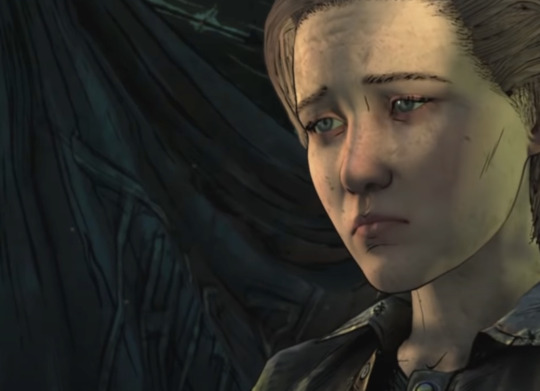
[Emotional Anchorage: Walking Triggers]
Truth be told, in this most recent endeavor to write Violet’s deconstruction, Brody was who reignited the compulsion. Because there is a deep-seated complexity to what happened between her and Violet, and why it happened. …only for me to find yet another post somewhere that was made by a glanced judgement.
Its criticism wasn’t in any way toxic, which was nice because this fandom…has a mean streak. But it did harken back to borderline’s stigma regardless.
Devaluation is a very ugly mark on someone with BPD. Worse than idealization, in the eyes of many. It in itself is toxic,and this coping mechanism is one of the reasons why BPD a disorder with the stigma it portrays. There’s a dysfunction in the order within our behavior.
That dysfunction, and the subsequent behavior, provokes a defensive ignorance.
Violet is wrong to do this. This is an antagonistic trait of hers, and Brody gets the brunt of it. She had to live with this for a year.
However, making blanket assumptions is reductive, especially in a discussion where it’s about understanding the how and why. There’s a reason why Violet devalues Brody. The path to how it happened in the first place is actually quite apparent. If you know how to read the signs, you can see this happen a mile away. So through understanding the how and why, it’s easier to 1) avoid it entirely, and 2) navigate devaluation if/when it does transpire.
Both Brody and Violet together make one mistake, and the fix is straightforward. Not easy, but straightforward.
Before that, though, we first shall establish a few things.
For one, Violet is…a lot. Don’t let her apathetic demeanor fool you. Just look to the previous section—that alone is enough to prove otherwise.
Along with the apathy, Violet is sardonic. She’s aloof to people when she doesn’t have strong attachments, but, she likewise shows to be pragmatic and reasonable. Which like, same. I wear belts and layer my jackets with vests too.
…and I also know what this kind of character implies: Violet is a little bully. She absolutely has the capacity to be cruel.This is also confirmed later, where at Ruby’s hootenanny, there’s mention of an Erin with braces that Violet would make fun of. (Probably because braces are hard to take off; they are a little goofy in an apocalypse, but also…really unfortunate the more it puts stress on the mouth and dental structure.) Violet then comments that she didn’t know why she did.
I wear belts and layer my jackets too; upon reflection, I did the same thing as a kid. So I have some insight to this which may explain the why here. Given how Violet speaks of this schoolkid, I’m willing to bet that Erin wasn’t someone who Violet had strong emotions for, one way or the other. She likely was pretty indifferent to Erin.
So, if that is true, Violet being a bully here comes from a place of 1) being apathetic, and not reading social cues like she should’ve, and/or 2) Erin was an outlet, but not a personal one.
Snide comments, and other slighted behaviors like this, they do not register.
Nothing clicks up here, behind my eyes. The comments are too brief to. So where this lashing out is coming from, it happens so swiftly that, by the time it leaves the mouth, I don’t know where it came from. There’s not much feeling to it. It was an impulse. So I just continue on my way, and never consider why.
In this way, there’s no malicious intent, it’s just cold. But outwardly, cruel.
A lot of times, to me, it was just play.
This is how a play with you. I make fun of you; you make fun of me. If you get hurt by it? Well. That sucks. Anyway—
Which, yes, is toxic, and I’ve realized, and I’m an adult now and I…don’t do that. Kind of. Social cues are a thing now, and I’ve gotten myself more aware of people. But I still do like poking fun, with the full expectation that it’s dished back.
Granted, I don’t know just how much of this applies to Violet. She has her insecurities, and is nervous when bringing herself to the table. And I am definitely not that—it’s not a confidence; I don’t care enough to be confident, I just do my thing.
But. This does establish a pattern with Violet, and with BPD, the disorder reflects the personality. There are common traits to BPD, but the expression of those traits varies depending on the person. For someone like Violet, who is already rather cold, this means any trait of BPD which stems from a cold demeanor will be present, and elevated. To borderline’s extreme.
Or, because Violet already can be cold to people, where devaluation is concerned, her personality makes it ten times worse. It doesn’t end. She makes comments—except, now, because there is significant emotion behind the comments (to Brody), it is to sting. It is cruel.
But…, it’s also complicated.
The bond between Brody and Violet is first made to be antagonistic, and Violet’s the one who perpetuates. Unlike the night before, where she with Clementine had a nice banter going in the dorm (if a tad guarded), Violet on the way to the cabin is hostile. Her words aren’t aggressive, but they’re instead dismissive at best, scathing at worst.
Brody does push back a little, and tries to brush it off, but it’s quite plain on her face that this does get to her.
In the cabin and away from Violet, Brody gives the context. It’s not just the words themselves hurt, it’s the fact that there’s a history there.
“Hey…, about Vi… I’m sorry she’s being a little mean. It’s my fault. [. . .] I was there when those walkers killed Sophie and Minnie. They were really close with Vi, and…I think she blames me for what happened to them. I mean, how do you even apologize for something that fucked up? I don’t know. Maybe I deserve it.” [Ep.1 | Done Running | Fishing Cabin]
Violet is hurt. Brody’s guilty.
Then, there’s a second, damning piece of history that explains why Brody, of all the schoolkids, gives the most insight to Violet’s mental health, and why this is happening.
“We all used to be friends. Guess I kinda just missed that.” [Ep.1 | Done Running | Fishing Cabin]
In the same way where it was textbook idealization for Minnie, this is textbook devaluation.
It’s made complicated because they were friends—good ones, considering they’ve been stuck in the same place since the outbreak—, but now there’s a negative connotation. That being the twins.
And remember, devaluation is an avoidant mechanism. Ambivalence is confusing, and that agitates a borderline personality.
Brody can then explain more, depending on the prompted dialogue:
[She’s…intense.] “She’s always been a little bit like that. But after the twins died, she really closed up.” [It wasn’t your fault.] “Still, I was the one that had to break the news to her. And ever since I did, she’s become distant.” [You should talk to her.] “Yeah, right. I tried, I have. It just never seems like the right time.” [Ep.1 | Done Running | Fishing Cabin]
Once again, Violet is distant where she wasn’t before.
But we also get a further confirmation that Brody is the one with the negative connotation, and it’s because she was the one who had to tell her. …which in itself is an interesting choice of words, but we can assume Marlon pressured her once the conspiracy is revealed.
Then another confirmation, to the fact that opening a conversation has not been feasible.
Turn to Violet, and she first says this:
“God. Sometimes she just gets on my last nerve, you know? [. . .] I mean, it’s— It’s not like I hate her… I just… ‘I wish we could all go on a road trip together.’ God, she’s so…ugh. You know? [. . .] I don’t know what the problem is between us. With Brody…, I don’t know why it’s like this. Why is it so weird? I can never relax around her. It just keeps getting worse.” [Ep.1 | Done Running | Fishing Cabin]
All of this is telling. Violet is very animated here, both in how she says it, her shifting tone, and what she’s saying. First it’s a comment. Second it’s admission. Then there’s that sardonic tongue, an ask to gage whether or not Clementine understands, before it all breaks and she goes back to admission.
The last couple lines say something crucial to know when understanding the dynamic here. And if a player is impatient with dialogue, they will miss these.
I can never relax around her. It just keeps getting worse.
So Brody is a walking trigger.
Within the bounds of splitting to devaluation, this happens when an emotional anchor develops a level of ambivalence, but because anchors do not just go, the anchorage is instead insecure, rather than the source of stability once relied upon.
Yes. Brody is another of Violet’s anchors—just not the primary one.
And what it means to be a walking trigger is…devastating. Not just for Brody, but for Violet as well. She doesn’t have the support Brody gives her anymore. Can’t trust it. Because every time Brody walks in the same room, Violet cannot relax. She is agitated.
Don’t take this to mean in a figurative way.
It is literal.
Triggers rise from people an emotional response. In BPD, this often means that the brain will shut its reasoning off, and prioritize this “survival” instinct. Fight-or-flight.
So when Violet says, I can never relax around her, this isn’t a oh I’m nervous, I don’t know what to do. This is I cannot function when she’s in the same room as me. Maybe she’s hypervigilant around Brody. To the point where Violet cannot stand Brody anywhere near her…
So she sabotages. She’s cruel to Brody in the comments she makes. She does not allow Brody to get close, because it is too much. Rather than a calm, reasonable state of mind, Violet feels things. A cold pit in her stomach. A dwelling ache in her chest, or a knot in her throat. Can’t focus on what she’s doing—Brody’s there.
And the easiest way to stop it is to push Brody away.
And, and, initially, blame the girl.
[Because you blame her.] “Well, that’s what I used to think. I just keep thinking that things might have ended differently if I was there. Maybe I could’ve protected Soph. And Minnie…” [Ep.1 | Done Running | Fishing Cabin]
There’s a confliction here. Violet did blame Brody, until she realized it wasn’t that. Instead, she blamed herself.
It’s the following prompt, however, that gives the best clarity to Brody and Violet. The prompt,
[Because she never said sorry.]
where Violet tells Clementine exactly what the trigger is—because by this point, a year later, she’s figured out how to articulate what it is:
[Violet] “She tell you that?” [Clementine] “More or less. She wants to talk about it, you know.” [Violet] “I just… I feel guilty about the whole thing.” [Clementine] “Why?” [Violet] “I was supposed to be out with the twins that day. I wanted to work in the greenhouse, so I asked Brody to cover for me. But then… I didn’t even get to say goodbye. I… I wanted to talk to Brody, to tell her I didn’t blame her for what happened. But every time I tried, I was reminded of who we lost. It was easier to just not talk about it.” [Ep.1 | Done Running | Fishing Cabin]
If BPD isn’t a lonely experience, or a humiliating one, it can be a guilty life to live.
Violet expresses why losing the twins hurt as much as it did: there was never closure, and she blamed herself. Hence why, earlier, I suspected that seeking closure was what kept Violet at Minnie’s side after shooting her.
She was finally saying that goodbye, regardless of how the interaction itself went.
But it’s what she says about Brody.
Violet wants to talk. She has wanted to. But Brody’s a walking trigger. Every. Single. Time that Violet tried to talk, the same turbulence arose. In BPD, without that regulation, it is unbelievably difficult to talk when…your body’s actively flipping the fuck out.
A cold pit in her stomach. A dwelling ache in her chest, or a knot in her throat. Can’t focus on what she’s doing.
Of course she found it easier to just not talk about it. That is an instinct ingrained by borderline.
BPD is a lonely experience every time you lose an anchor this way. The disorder is humiliating because you do not want people to see you like this, when you’re in the midst of an episode, and you have no fucking control over your body, so you yourself are flipping the fuck out.
And it’s guilty. Because when you’re in Violet’s position, where you know the reason why, you know what you want to do, but your body works against you at every turn…
It devastates a person.
Because it is your fault. You did this yourself. Reap what you sow. You’ve done it again, it’s humiliating, and you are very, very alone because you just cannot stop burning bridges.
…in the apocalypse, being chained to a boarding school does not help. There is no way to give the time and space someone like Violet needs to think, and to process, and to let those emotions relax. Brody kicks up those emotions whenever she’s around, and the dust just never settles.
Violet trapped herself in a cycle. By the hour, or by the day, for a year, it would’ve been a ceaseless agony.
One that did scar over. Violet probably got used to it, and found a routine to the snide comments. It wasn’t like Brody was leaving anytime soon.
Until she does, and she suffers a disorientating last few moments.
I’d like to think they made amends and had a full conversation. I don’t know, however. But, at least Violet does take the first step when walking from the cabin, and she entertains Brody’s fantasies about a road trip, and that she would’ve had her sights on the Grand Canyon.
Because the one mistake they made was they never talked. It wasn’t going to be an easy thing, but it is that straightforward. So when they did, or began to, the devaluation began to ebb away.
Then, a tragic irony.
Brody’s guilt was never just I’m not Minnie, so she hates me, and it’s my fault. Rather, Brody’s guilt was warranted, and quite honestly, yeah. She should’ve be guilty, because it’s I watched as my leader gave this girl’s world away, and did nothing, lied to her, to her face, for a year.
Violet didn’t know this at the time. So for her, Brody was a point of devaluation because it’s her mental health actively jeopardizing things, not the truth and circumstance. The deception, in the conversation of that mental health, instead plays itself like salt to a wound, and then a tragic irony once Brody was murdered for it.
Because Brody knew they had to tell people. If the path to mending their relationship was encouraged, then it could be read that it gave her the inch to confront Marlon. If otherwise, Brody wanted to tell everyone because she needed to, despite what turmoil the truth would’ve caused Violet.
By the time Violet does know, and there’s a funeral, she says this about Brody:
“Brody, she was… She was real sweet. She had big dreams. And we all knew they wouldn’t come true, but we didn’t care. And we didn’t care because when she was talking, whatever she said seemed possible. [. . .] I don’t know if she found the place she dreamed about, but I’m gonna miss her.” [Ep.2 | Suffer the Children | Courtyard]
There’s forgiveness. With Brody died that devaluation.
Not a moment thereafter, however,
“Marlon was… I can’t. Not for Marlon. After what he did to the twins and Brody, I—” [Ep.2 | Suffer the Children | Courtyard]
The cycle continues.
Now with Marlon.
If Violet devalued Brody, she absolutely vilified Marlon. Because not only was it about the twins, there’s also Brody.
So of course she didn’t give him any peace after the fact. Why would she? Marlon had his own complexities, yes, but those complexities hurt. They brought another ambivalence.
As the essay rattles from the schoolkids, we’ll discuss another relationship now. A new, fresh one. Clementine, through who we see all of it—the emotional anchorage, the idealization, and devaluation. The splitting between. How intense Violet can be, and how volatile.
We have Clementine, who is given the chance to witness what Louis means for this wallflower, and that she grows on you (he promises so).
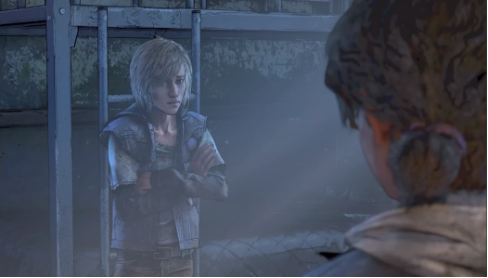
[VIOLENTINE: The Ship, and its Anchorage]
Platonic or romanced—the difference doesn’t matter in this essay. The shift of context between friend and more than that is just that: a shift in context. Distinguishing the two will have its moment, but it is hardly integral to the fact of the matter:
Violet anchored Clementine, and she did it swiftly. (In record time, dare I say.)
In regards to the arguments against romancing Violet, there’s a lot of people who look to Minnie, then back to Violet, and point to Clementine’s “girlfriend” dialogue. “Violet’s not over Minnie,” is a common one, right alongside, “Clementine’s just a rebound.”
Now. I’ve spent 5.5k words tearing those arguments to shreds in one section, and I still have with me another few things to say about Minnie and Violet’s relationship up my sleeve. In light of Clementine and Violet’s relationship.
Because even though I do buy that they were closer than friends arguably would be, they weren’t girlfriends. It’s why Violet was insecure within their relationship, and why that insecurity devolved into a strong case of idealization. Violet genuinely did love Minnie. Her bond with the twin will honestly forever be there, but that bond wasn’t unconditional. The conditions were at the cost of Violet’s mental health.
Then there’s the rebounding, and I will use this as a jumping off point regardless of relational status.
Rebound relationships are defined by a partner still with a previous relationship’s baggage. They’re not done healing. They haven’t quite let go. It gets in the way for committed relationships where the expectation is that both are in it 100%, and that person just…can’t. Because they’re still fixated on the last partner.
…which yes, does sound like Violet. Cuz it kinda, sorta, frankly is.
However. For one thing, this dynamic doesn’t just apply to a Violet route opted for romance. The rebound applies to a platonic dynamic, in part because I don’t frankly believe Minnie was a true girlfriend, and in part because idealization is not specific to partners. Especially in what we see in TFS, Violet needed to let go of Minnie regardless.
Then there’s the fact that being a rebound isn’t always bad. To rebound, which is where the term “rebound relationship” derives from, means for something/someone to bounce back. Or, it can mean a kind of backfire. Both uses of the word can be applied to relationships like this, which, yes, is why they’re fickle, and why people do their best to avoid.
Here’s the thing: Violet needed a new relationship to pull her out of the old one. Because Clementine is a catalyst for Violet, and she was anchored so quickly because whether Violet herself realized, she did want to move on. She couldn’t, but through Clementine, she got the chance.
And I do confidently say that she did want to, because by one interaction in the woods, Violet is disillusioned from Minerva immediately. She’s snapped out of what image she had of her, and is the one that remains realistic where Clementine can offer supporting words—along the lines of we can get her back.
It’s why Brody, through the cabin’s conversation, observes the same.
“We all used to be friends. Guess I kinda just missed that. But when you showed up… I don’t know, I just haven’t seen her warm up to someone in a long time.” [Ep.1 | Done Running | Fishing Cabin]
I find it interesting that Brody picks up on Violet taking to Clementine so quickly, and is able to read enough into this to try and see if it’s enough of a push for Violet to start healing. She’s right, it is enough, and Violet does take a first step in mending their relationship, and breaking away from the devaluation that was arguably heightened by her idealization of Minnie.
…granted, it’s dependent on player choice. There are Violets running around out there having fished with Clementine, but never did reconcile with Brody.
In any case, I am going to argue against Minnie being Violet’s ex because 1) who the fuck cares, I’m not concerned over purity over here, and 2) it’s likely they weren’t exes at all.
However, I won’t fight against this being a rebound. It is. But, Violet’s arc is about learning how to let the fuck go, she has a problem with letting go, so of course the relationship would be a rebound by proxy. A healthy rebound, at that.
By the time she is forced to let go of Clementine, after two newcomers are voted out, her attachment is made quite plain the moment Clementine is in danger within— What, five minutes, and Clementine is at gunpoint?
Regardless, Violet is there, bow at hand, with Louis behind her. She is ready to shoot, and it is no bluff. Violet will if prompted. Or, she will run should Clementine prioritize getting the two out of it.
Because Clementine’s already anchored. Violet trusts her to make the call, and she will follow without hesitation. Later on, after a weary night with A.J shot, then a morning of crawling back for medicine, Violet calls for Clementine to talk in the office. And in there, the anchorage is confirmed further:
“What happened out in the woods… I saw they had you pinned, and I… Shit, I got so crazy. “I know you think I didn’t do enough for you and A.J, but when I saw you were in danger, I had to do something.” / “When I heard you call for help, I didn’t even think.” [Ep.2 | Suffer the Children | Office]
The second line is dependent on whether or not Clementine blamed Violet before, as her and Louis walked the exiled to…exile. And stuff.
But, her account as to why she ran right for Clementine, and pulled an arrow on Lilly says everything I got so crazy, I didn’t even think, I had to do something. Clementine roused a trigger.
This time, in a very good way. Well, as good as the circumstances. In any case, this does count as a trigger because it’s inciting an emotional response, and given Violet’s wording, a fight-or-flight. (I realize triggers are specific for negatives; for the sake of brevity, I don’t care. I still say it counts.) It’s the reason why, before, when I detailed how I personally get with my anchors, I do similar things. No, not literally pull an arrow on someone, but I act on impulse without care, because I just want to satisfy their needs to the absolute fullest. It’s genuine, but it’s also triggering—under a positive connotation.
After this, of course, we push into Violet leading the school as they prep for an attack, with Clementine right alongside her. Whatever happens during this time is unknown, just that the school built-up the walls, laid their defenses, and focused on instruments to help, such as traps and explosives. Shortly after the time-skip, of course, we get the belltower sequence.
Starting with an inquiry:
“I know you came back for medicine, for A.J, but after that, you could’ve just left. Avoided all the bullshit with the raiders. Why didn’t you? Sorry, I know that puts you on the spot. You don’t have to answer. We’ve all got our reasons.” [Ep.2 | Suffer the Children | Belltower]
Violet asks something that has likely been on her mind for a while, but then… Not backtracks, but she does relinquish the pressure for that answer.
As their time at the belltower continues, it’s clear where the question came from.
“Sorry, I didn’t mean to just…talk so much. It’s just, I’ve watched people leave before. Family, friends. They never come back. But you did. And now I can’t imagine what it would be like if you weren’t here. Um. Shit, that sounds so much dumber when I say it out loud. You know what I mean.” [Ep.2 | Suffer the Children | Belltower]
Violet’s hesitancy to speak her mind, be vulnerable, is interesting, particularly because it’s about doing so too much. It’s a very specific one, with ambiguous implications. This could be an anxiety she put on herself, or, this was something that she took after a mention that she was talking too much, getting too personal, one way or another. Then there’s also another thing, where it sounds dumber than she intended. As though when speaking her mind, Violet has an idea of what to say, but she doesn’t know quite how to articulate it.
This is a really good line of dialogue, so that latter insecurity is just that: an insecurity.
Nevertheless, this speaks volumes because it’s the first verbal admittance to an issue with abandonment. All the adults left her life, and never returned. Those include her parents, who never tried to get back to the school. Her grandfather died, so not his fault, but her grandmother shot herself right behind Violet. Which is abandonment, and really fucked to do. The teachers of Ericson’s…
Then fellow students. Most probably died, including Brody. And the twins were taken away.
Abandonment is a huge thing.
So we turn to the route where Violet is taken. And it’s not good. Violet reacts as predictably as this essay has outlined.
[Clementine] “Vi? What happened? Are you okay? Violet, talk to me… We’re here to take you home.” [Violet] “I looked for you. When they grabbed me, I saw…you let them take me. I’m just supposed to forget that because you’re here now?” [Violet, if platonic] “Some fucking friend you are.” [Violet, if romanced] “Some fucking feelings you had for me.” [Ep.3 | Broken Toys | Brig]
Here we have now a fresh faultline within her and Clementine’s relationship. It brings ambivalence. Upon seeing Clementine, she’s plunged into an episode.
And Violet splits. Her image of Clementine is distorted, so she falls back to the same pattern she did with Brody, and she is hostile.
[Clementine] “What’s wrong with you, Vi? Come on, let’s get the hell out of here.” [Violet] “No, Clem. I’m done. This whole situation is so fucked! At least here I have Minnie…” [Clementine] “You mean the Minnie that betrayed us?” [Violet] “Don’t act like you know her. She tried to escape. Her and Sophie. They said if I fight back, they’d kill Minnie. Or one of you. All you’ve done is get us hurt or killed. If you fuck this up worse, I’ll stop you myself. And don’t think I won’t. I’m not losing her again, or anyone else.” [Ep.3 | Broken Toys | Brig]
We also have Violet manipulated on top of that, led instead by Lilly and Minnie’s word, not Clementine. Because BPD primes people to manipulation, especially in times when they’re at their most vulnerable. But, throughout these interactions, we do see Clementine attempt to console her, and talk.
Violet, however, is not open to. She is not in the right state of mind. This is a BPD episode, so Clementine is not able to get through to her here. Violet does not trust her—too much ambivalence. Mitch’s death is fresh on her mind, she’s been lied to by Minnie about what happened to Sophie, and with that lie, she was told that more people would die if they did not listen.
And of course, the more time is spent, Clementine starts to get frantic as everything escalates because there’s a fucking bomb ticking away in the deck down below. So there comes about an urgency, and she can’t spend that valuable time consoling Violet.
So she starts chipping away at the door.
“What the fuck are you doing?! You’re gonna get us all killed!” [Ep.3 | Broken Toys | Brig]
And Violet does precisely what she said she would do, and she attempts to stop Clementine herself. Because there’s Minnie again, but she also doesn’t want anyone else to die either.
Lucky for Clementine, she is stronger, and she is able to overpower Violet within a minute. However, in trying to get the cells unlatched, then to find her way to A.J, she herself is overpowered by Minerva. The urgency and stress associated backs Clementine to a corner. She still doesn’t want to see Violet hurt, so, she explains,
[Clementine] “We planted a bomb on the boat!” [Violet] “Fuck you, there’s a bomb! Mitch is dead! You just… Fucking go!” [Ep.3 | Broken Toys | Brig]
…and again, Violet does not trust her. Mitch’s death is still fresh on her mind. Everything that Lilly and Minnie fed to her is still present.
Then, the bomb goes, and it takes Violet’s sight with it. Even on the beach, she asks for Minnie, amidst confusion because, somewhere down the line, they got separated. Louis has to be the one to support her. By this point, and some beats after, it feels like this is another Brody. Like there’s no turning back, not until a long, long year where Clementine would be in the same shoes.
Minnie makes herself known, though. She’s off in the woodland, with her people.
And that is when this Violet has the wool pulled from her blinded eyes, because she realizes what happened.
The moment is brief. It’s very easy to miss. Yet, the attempts Clementine gave on that boat to console her, before the urgency really began to set in, was not fruitless.
Violet tries to apologize:
“Clementine? The stuff I said on the boat, in the cell, I, uh…” [Ep.4 | Take Us Back | Beach]
It’s not the right time for it. The schoolkids need to get off that beach, but this brief moment is huge.
The thing about episodes is, yes, in the moment, the individual is not consolable. There’s no reasoning with someone who is shut down. However, the attempts to try and console, and/or any verbal promises to leave the door open for when they’ve calmed down, the effort can be recognized and appreciated.
Once Violet snaps out of it, that’s precisely what it was. She understands that Clementine was never trying to hurt her, nor did she come to her disingenuous. Clementine was there to bring her back, because the situation was exactly as Violet herself said—fucked.
But still… Clementine was there to bring her back.
Either way, Clementine proved herself to Violet, because down this route, she left twice, and came back both times.
Of course, the night does not end there. Clementine loses a leg. Another schoolkid is gone.
So through the weeks thereafter, Violet gave herself the time, and then, she tries again with the apology:
[Violet] “I wanted to wait ‘til you were up and about, but how I behaved on the boat… It was really unfair. My head was so messed up—by Lilly, and… And Minnie. I was so wrapped up in my own shit…” [Clementine] “It’s okay. You went through hell in that boat, and I let that happen.” [Clementine, if platonic] “I’m just glad we got you out of there.” [Clementine, if romanced] “I’m just glad I got you back. I was so worried I’d lost you.” [Ep.4 | Take Us Back | School]
In this apology, Violet articulates the position she was in, and admits the kind of influence Minnie was to her—not a good one. And in turn, Clementine acknowledges her. She doesn’t demean Violet for what she did. On top of that, she expresses how she’s just happy that Violet is there in the moment.
This route is bittersweet. We have the beginning, where Violet is guarded, then she warms up to Clementine, finds an anchoring point, and acts upon a fierce loyalty. Which then is hurt when Clementine chooses to save Louis instead. The time on the boat is very bitter because…the truth about borderline is, yeah no, it does not care who the person is to the mentally ill. The disorder is a disorder for a reason. It will hurt, and it will put a strain and test a relationship.
Then you just have the big fuck you axe where Minnie…effectively was the one who managed to wound Clementine, have her get bit, and then lose the leg. Which isn’t really how an eye for an eye goes, but that’s what this route goes with.
But then…, it’s sweet. Because Clementine did the right things, with what stress she was under.
She tried to talk to Violet, and in doing so, she left a door open for Violet to crawl back through when the time was ready. It was sooner rather than later for her, since Minnie… Whatever. However, it’s an apocalypse; a boat was just blown the fuck up. So while it was the time for Violet, it was not the time for literally anyone else. Ergo, a second attempt, to which there was resolve.
Clementine and Violet did not make the same mistake that Brody and Violet did.
And that’s what saves the relationship.
Now, let’s waltz all the way back and save Violet, just to show what Clementine and her do right to build a healthy connection, whereas her and Minnie went wrong. To do this, taking a brief visit to the romantic will help in dissecting an evolution found as the episodes progress.
After the bits of dialogue in the beginning of this section, Clementine can choose to confess her feelings for Violet. It can be solidified by a kiss, or a question for a relationship, or…a meek silence, to which Violet is able to read and feel the same. Clementine can also express confusion, in that she needs the time, but express the interest all the same.
There’s a sweet moment here, and with the kiss, it can also be a touch awkward because…
Okay, they kind of flounder. Violet more so. Which is interesting to note, because Violet “supposedly” was in a relationship before. Sure, the moment on its own doesn’t mean an experienced person wouldn’t be any less awkward, but with the following steps in their relationship, it does support the suspicion this essay has in that she never had a reciprocated, romantic relationship with Minnie.
The moment where Violet asks Clementine to dance, and is nervous to do so, is one of those steps in the relationship:
“When you told me you have feelings for me, I was shocked. Then I started thinking. There’s something I’ve always wanted to try with someone I cared about. And I never have. [. . .] Have you ever danced with anyone before? [. . .] Do you…wanna? Just us. No one else around. I mean, I know it’s kind of weird, but it’s something I’ve always wanted to try.” [Ep.3 | Broken Toys | Dorm]
It’s a step in way of romance (Clementine even remarks after how they’re getting better), but it’s also a step in Violet’s confidence in being vulnerable with someone. She’s still clearly anxious here. Violet still has some of that self-deprecation, and it comes back if Clementine rejects the offer because the idea was stupid, or something along those lines.
But she still does ask. And it’s a big ask, because this is important to Violet. So if Clementine reciprocates the dance, it’s yet another sweet moment, and it builds the confidence within for this relationship further.
Before the night, Violet can tell Clementine how she got to Ericson’s. Then, through the night itself, she backs Clementine every step of the way. Shoots Minnie. Escapes with the schoolkids, only to come back and find her with Tenn and A.J, safe and sound.
During their walk, Violet opens up again. This time, there is none of that self-deprecation, and Violet even gets choked up—but she’s not really ashamed for it, she just continues and says her piece.
“While we were looking for you guys, and I… I thought you might be…gone for good…, um, shit. I was trying to figure out what I’d do if you were gone, and I realized how goddamn stupid I was. About Minnie. For a whole fucking year. I was so wrapped up in losing her and Sophie, I pushed away everyone who tried to care about me. Marlon, Brody, Louis. Even you and A.J. I tried my damnedest not to care about either of you. And I still couldn’t tell you why.” [Ep.4 | Take Us Back | Forest]
She admits everything. Is so very open to Clementine, and tells her what is on her mind. There’s Minnie. There’s what she regrets.
[You were afraid] “I was a goddamn coward. I’m not a coward anymore.” [I’ve done the same thing.] “And then you wonder why you fight so hard to stay alive. I don’t wonder anymore.” [You cared about me.] (Platonic) “I didn’t expect to find a friend like you, not ever again. But I’m really glad I did.” / (Romantic) “Yeah, I did. Way more than I meant to. I’m still kind of amazed we found each other, you know?” [Ep.4 | Take Us Back | Forest]
By this point in the story, Violet has undergone her arc.
She is a changed person because of Clementine’s influence, and she sees what she either didn’t see before, or did but had forgotten. Through a rebound, because Violet just needed a second chance to redeem herself.
Now…, she didn’t expect to find a friend like Clementine ever again? It’s interesting that Violet indicates Clementine was a second chance with the platonic route, not the romantic. Is this her quietly admitting that Minnie was never beyond a friend, actually? Or is this in reference to Brody and Sophie instead?
I dunno. Just found that interesting, since she could have said an equivalent for the romantic dialogue. In any case…
There is something so profound with how this relationship contrasts the ones which came before. As a friend or partner, Clementine never gets to the point of Minnie’s idealization, nor Brody’s devaluation. Both are antithetical to each other because they balance on the same scale—that being insecurity. Violet cared for Minnie and Brody deeply, and those emotions are genuine.
However.
Minnie was put on a pedestal because there were faultlines to that relationship which Violet did not want to face. Brody, instead, was degraded because rather than faults, it was easier to ignore the good sides to Brody. And the good sides were a really, really sweet girl who dreamed of a better life—something that Violet could never see for herself after the twins.
Then there’s Clementine.
Even at their worst moment, where Violet’s trust in Clementine waned, she still did trust her. Clementine told her there was a bomb. Violet snapped because Mitch was the one who knew explosives, and he was dead. And yet, she got herself blinded because she knew Clementine wasn’t lying to her. She trusted her enough to know…
Well yeah. There’s a bomb.
Beyond that, however, Violet decides to do some arts and crafts, even though she says they’re stupid. Or Violet’ll ask for a dance that she’s desperately yearned for. She’ll talk to Clementine, a lot, even if she didn’t mean to do it “so much.”
Clementine as an anchor never truly corrodes. It’s tested down one of the routes, yet by the end of it, the relationship is maintained.
…there’s a final note which taps into this.
We come back again to identity one last time. For a brief anecdote—nestled within the shadows of what exhaustion this essay has gone over with Minnie and Brody, and now Clementine—, but an important one. Violet’s sense of identity will remain to be untold because we don’t have that perspective. She never talks about herself like that, so there’s no true insight for Clementine to gather.
Yet there are scant traces of identity diffusion, or an incoherent identity, ceaselessly disturbed by external influences.
This calls back to a copycat nature where borderline personalities will imitate in order to find stability. Ambitions, beliefs, interests—these all go right along with it, because they very well can change, and do so radically. Impulsions in way of severe life choices are made on the foundation this nature provides.
And that foundation is not strong.
There is no way to truly understand and deconstruct Violet’s sense of identity, yet, her behavior and choices made throughout the season can give us something to chew on.
Between the two routes, Violet is…a hair shy from being an entirely different person. The Violet Clementine brings onto the boat is not the same as the Violet she meets there. By contrast, Louis remains consistent; bring him on the boat, and he acts as expected—same with when we find him…without a tongue.
One is Clementine’s Violet. The other is Minerva’s Violet.
In both routes, Violet’s impulsion changes her life’s trajectory. She either shoots Minnie, or, she goes after the bomb and blinds herself. In one route, she’s outspoken, combative to the Delta, and fiercely loyal to the school; in the other, she does behave like how Minnie described her—never could talk to people, never to be class president. The Violet in that second route is withdrawn and quiet…
But she does confront Clementine.
She mimics Minerva’s newfound bellicosity that she dawned from the Delta, and it’s pitted against Clementine by following both her and Lilly’s word.
Going back to the first episode, where Brody tells Clementine that Violet withdrew herself from everyone, a lot of that was depression. Violet also actively told herself to push everyone away (…except Tenn, a remnant of the twins). However, there is a read here that she withdrew herself because there was no one left for Violet to mirror. She reverted herself back to the girl who sat in front of the television, with her grandmother’s fresh corpse just behind her.
Not to say that Violet doesn’t have a personality on her own. No, she still does. Having a weak sense of identity doesn’t automatically mean that there’s no identity at all. It can just mean the self-perception of identity is weak, but given that it is a self-perception, what is Violet going to draw from if she doesn’t…know how to read herself?
So Clementine meets Violet in the midst of this. She’s sarcastic and grates for a minute about the car. She keeps up a wall between her and Clementine. But by the end of the episode, and the start of the second, here Violet is cleaver at hand, about to lead the school.
Marlon scathes when she stands toe-to-toe. Talks about her being difficult again—but that in itself is ambiguous, because does this mean she’s gone toe-to-toe before, or does this mean Violet has a tendency to be inconsistent? And was that night another inconsistency?
But then… Louis. He admires the fact that Violet is like his white knight. He relies on her to protect him, because he knows that there is no doubt—she will.
Then being a leader. That comes as a surprise to presumably everyone. There’s a few points of dialogue that suggest it, others that blatantly say it, and then more few beats where we see the contention between Violet’s leadership and the schoolkids.
There’s conflict here. Violet is inconsistent in who she wants to be.
And it’s just that, isn’t it?
The TWDG community has long since decided that Violet’s arc is about letting go of Minnie (for those who see past the “rebound” thing), and self-discovery. Which is still true, but through the lens of BPD, there’s another layer to this. It’s about learning to let go despite disorder. And then, it’s learning what she wants from people, and who she wants to emulate, again, despite disorder.
What kind of person does Violet want to be?
And this is distinct from Louis, because with Louis, it is also a self-discovery. He is care-free, live in the moment, to a detriment. To be quite frank, the only reason why he got that far into the apocalypse was because he relied on his community. Not because he couldn’t contribute, but because he has his fair share of self-depreciation.
But there is no question. He knows who he is, and he knows the kind of man he wants to be. It’s why Louis does talk about his sense of self as much as he does.
Whereas Violet really doesn’t, perhaps because she can’t. All of what she confines in Clementine is the fact that things get overwhelming, and she gets confused. Quite frequently. But also, her relationships. Everything external for her, because… Again, she struggles to articulate what’s going on internally, because of that confusion. It takes time for that articulation to be feasible.
Violet has a patchwork identity. She’s kept traits of others—such as the singing. Granted, everybody does this. However, there’s her own within patchwork, but those have gone largely unexplored in the past.
Then here’s Clementine, the catalyst to this arc.
Which begs the question, why? What about Clementine has this impact on Violet?
Something about her draws Violet in.
At first, yeah. Clementine’s new. There’s an air of mystery around a girl who totals a car at Ericson’s front lawn, with a kid in tow. But that mystery alone doesn’t equate to a cleaver pulled, guarding the new people from the rest—her own people.
The answer is rather simple: Violet is mirroring Clementine, so all there is to do is look at that reflection. And we find a leader. We find someone who is compassionate, and does everything to fight for their own. Actually fight. Tooth-and-nail. Someone who does whatever it takes to survive, even if that means rubbing the good ol’ walker jelly, or, taking risks to secure a bag of food.
Clementine’s compassion for people is evident once she wakes up, and she has A.J by her side. Her skills in leadership, her drive to fight, to survive—those are all made very clear at the train station, with both Louis and Violet following her lead.
So Violet mimicked. She found the same traits within herself, then elevated them. Brought them to the surface.
As the relationship continues to build—platonic or romantic—, Violet finds reciprocation. She’s not just emulating what Clementine would like to see. After all, she was sat in the headmaster’s chair while Clementine and A.J were still exiled. That indicates how Violet found, if not a comfort, a consolation in that part of herself.
The reciprocation continues whenever Clementine responds to her, and she validates Violet, she shows interest in what Violet says, and what Violet wants to do. Violet can ramble on and on as long as she wants, and Clementine would still listen. Violet (if romanced) can ask for a dance, and Clementine would oblige. Either way, Violet gives Clementine a pin. Clementine puts it on.
It's that compassion, and it cascades authenticity off Clementine to the people she surrounds herself with. She’s also someone who feels strongly. This character is a very empathetic person. Throughout S1, Clementine was perceptive of the people around her, and she cared. Deeply so. S2, the same thing, even if her morality began to grey. The start to closing herself off to protect herself was present. S3 as well, especially in her drive to find A.J once she learned he was still alive, out there somewhere.
Throughout the seasons, there are also plenty of moments where her empathy shows. Clementine does genuinely feel what the people around her express. Like with Louis, when his tongue is cut. You can hear in her voice how pained she is, regardless of the relationship itself. She’s pained because Louis is.
And given what she’s lived through on top of that? Clementine would absolutely put 100% in a relationship, enough to match someone like Violet.
There is another reason to this why, and the thought struck me when I was reminded of an easter egg during Violet and Clementine’s scene up on the belltower. A constellation, which Clementine can draw for herself, and he’ll wink right back at her:
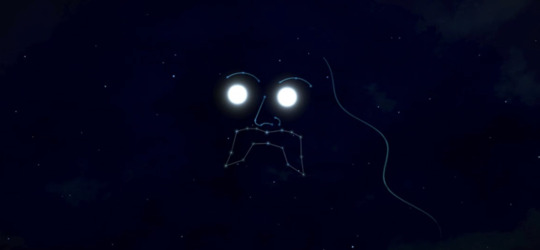
Kenny.
This connection is an interesting one to make for a scene with Violet. It’s cheeky first and foremost.
Regardless, there’s a parallel drawn here. Violet and Kenny are very similar, in that…Kenny likely had BPD. TWDGhas two seasons, then a couple flashbacks, where we can read it so. That man was volatile himself. Fiercely loyal, but could absolutely flip on a dime if his perception of the people around did not align with what he desired—it’s why he’s so fickle with Lee, to the point the gameplay reflects it, and then Clementine as well, because this behavior was the ultimate antagonist. His spiral down mental health escalated, and escalated, and escalated.
And he’s guilty. Tells Clementine that to leave him, or to shoot him, is the right choice to make.
But should the two survive together, with dreams of driving down to Florida, we find that he…is okay. He’s stable. His anchorage with Clementine and A.J is strong, without ambivalence. In this storyline, she sees that with people like him, sticking around through the bullshit can be worth the trouble.
Of course, it’s also a testament whether or not it is worth it. Some people, including myself, left Kenny in S2. Because the turmoil through the season was just that significant.
He genuinely cares, but like my mom, Kenny still hurts. Especially in S2. Because despite himself, he just could never seem to get past what he felt, and his impulses.
Clementine’s relationship with Kenny varies across different choices made, and the interpretations thereof. My personal interpretation of Kenny will contrast wildly to another. And that’s okay.
But whatever the interpretation is, and the choices made, Clementine has experience with people like Violet. She’s lived through the type of behavior conditions BPD and alike bring. She knows how to navigate them, and find healthy grounds.
Clementine keeps an open line of communication with Violet. Expresses interest, and accepts what Violet herself has to offer. But she also has her boundaries. For one, A.J. He is her priority. Two, when Violet fights her, Clementine fights back because it’s not okay—do not lay a hand on me. Now, whether or not she would’ve fought like she did if there was no bomb, and A.J was still in the cell…
I don’t know. I assume it would’ve been one of those major choices of the game. Either talk her down, or fight.
…similar to what Lee has with Kenny, up in the attic after the house in Savannah is swarmed, or on the train before that.
Bringing Kenny into the conversation is…funny, in a way. At least to me. I write all this, because TWDG secured its place in my heart by being the very thing I needed through a really, really bad year where my mental health (BPD) reared its ugly head. TWDG as a whole, but S2 especially. I realize why so many people have issues with the season, and I get it. It’s only natural for that to happen when every season has its distinctive personality—not everyone will gel with its voice. That, and it does have its fair share of flaws.
But if it was not for S2, I would not be in the fandom. Because that season was 2019 boiled down to the pure chaos I inadvertently put myself through, and it did so by having me play a character who when she was taken seriously, she just could not do it right, then…, when she wasn’t, it was out of neglect, where the adults put themselves first. Every. Time. And…one of those adults was a blunt reflection of it all.
Up until the final moment. The breaking point.
It’s how I felt inside my head. And still do, sometimes. When I’m stuck inside a season rooted in instability—a winter—, things just keep happening, and there is no end, even though I try to maintain the fantasy of peace in those slow moments. But…there’s just no end. There’s only escalation.
It was something I needed to experience in isolation, where I understood that it’s just a game, and it’s within the scope of 7.5 hours.
Swiftly thereafter, I started writing. Because again, it’s what I’ve always done. So AYDF came to be, where Clementine’s an alcoholic, but not because she’s legitimately an alcoholic in the gameplay. I get she’s not; my Clementine is an alcoholic because…it’s an obscure remark of borderline, and an exploration wherein I thought to use an entirely different disorder to express such a thing. In part because I’d yet to really (re)consider BPD (it wasn’t until some time later that I understood), but also…I’m a storyteller. Having alcoholism represent BPD is interesting.
It’s all why I adore TWDG, and my Clementine, and ADYF. Together, they’re an anchor of mine.
Clementine and Violet’s relationship included, because I did not expect to find Violet. I knew about their relationship before playing—heard it whilst I did light research on which games to buy. But I didn’t expect to find a character who…also emulates what S2 did for me. Just, in a more matured light than who I was in 2019. Also didn’t expect the relationship to provide growth for my Clementine in regards to these personalities, because mine did absolutely struggle the first time—with Kenny, and the devastating choice she made.
Cuz like.
Oops. A.J’s still alive. Um. Whelp.
(…for context—because I know the assumption—, no, Jane was not there. I left S2 with both her and Kenny dead. Clementine just shot the last adult who could’ve helped A.J.)
To see the chances where Clementine is the person Violet needed—to treat her well—, and take those chances, I didn’t expect to find Violentine as this embodiment of a healthy relationship despite borderline. It’s not perfect—obviously it’s not—, but all things considered, it is healthy by the end, no matter the route.
It’s regardless of whether or not Violet actually has BPD. She’s not diagnosed, and I don’t intend to have her be diagnosed. But at the same time…, this essay kinda makes it clear that Violet is a textbook example anyway. A good one to me.
And a good one to A.J.
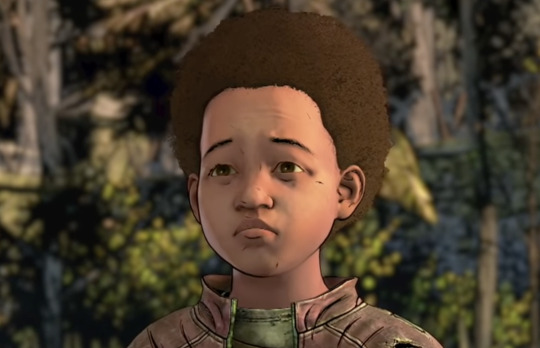
[A.J, & Serving an Example]
Throughout this essay, the priority has been clarifying BPD, and unveiling what it feels like. A mechanism that may lead to the disorder, then the mechanisms that the disorder itself deploys. How it effects the person, in their identity or, most notably with Violet, relationships.
And the way Violet articulates herself, through the several dialogue lines within this post, it is evident that she’s aware. There’s a self-deprecation to it, but, Violet knows her issues and what it does, whether or not she knows its name—BPD, or something else entirely. Given the ambiguity that the game allows, it is still left unsaid.
But that’s the first thing: she does talk about it. Violet knows herself well enough to.
Not only that, she demonstrates a responsibility in her disorder.
With this essay, there hasn’t been much in the way of responsibility. Because it isn’t until A.J enters the discussion do we truly see this come to light.
I will be the first to say that, while I can sympathize with other people of the diagnosis—even empathize—, I am rather critical when it comes to being responsible of our actions. From knowing a trigger but being around it anyway, to refusing to communicate when a hand reaches out—there’s issues I take. Because there are things that needs to be done with BPD, and those are not it.
The fact of the matter is, sorry, it fucking sucks. But also, it is your disorder, as it is mine. It isn’t your fault that it happened, but it did, and you’re kinda just stuck living with it. It’s not the responsibility of anyone else to fix and manage every aspect of BPD.
Finding people like Clementine, or a support system like the schoolkids, will do wonders because, yes, they can help. But Clementine, and the schoolkids, also have their fair share of shit. To expect them to drop everything is unfair, the same way that being expected to just drop your BPD for someone else’s sake is unfair.
It’s a give and take. There will be a ceaseless line of dialogue in the name of boundaries, and clarification, and everything in between.
So we return to Violet’s apology to Clementine.
“I wanted to wait ‘til you were up and about, but how I behaved on the boat… It was really unfair. My head was so messed up—by Lilly, and… And Minnie. I was so wrapped up in my own shit…” [Ep.4 | Take Us Back | School]
She doesn’t excuse it. Violet gives reason—and that reason is, more or less, she was not in a right mind—, and she articulates what position she was in, but there is no excuse.
Because the difference between an excuse, and an apology, is that one is done with the intention to be forgiven, the other is done with the intention to resolve—the forgiveness is a hope, not the reward.
Being able to do such a thing, unprompted, speaks volumes to Violet’s maturity, and her understanding of her own mental health. For people with BPD, more often than not, it’s easier to blame someone else because…looking inward, and realizing you royally fucked up again is not easy. Or, it’s easier to use apologies to seek a reward—like forgiveness—, and to indulge in a brief gratification that may ensure a person stays.
Well, okay. The same can really be said for everyone. BPD, however, does has its way in amplification.
Nevertheless, A.J is able to witness this moment, take it in. It’s a lesson in itself.
But given Violet is saved, and Louis is mute, there is another moment which not only speaks volumes, but it serves to A.J clarity.
After the last meal shared in the game series, and Violet with Clementine deliberates over a caravan, A.J can ask Violet one thing:
“Aren’t you still mad I killed Tenn?” [Ep.4 | Take Us Back | School]
It’s a fresh wound for her. The pain of it is laid clear across Violet’s face. However, in response,
“The thing you said on the bridge…, that he was messing up all the time. It wasn’t something new, you know. Tenn got himself or other people into trouble all the time, long before you guys got here. He was always so lost. He lived in a world that just…isn’t there, you know? And that’s why I tried to look after him. But when I was pulling him away from the walkers, and Minnie, I could also see…he just wasn’t there anymore.” [Ep.4 | Take Us Back | School]
Or, it’s complicated, but she understands why. Violet is able to acknowledge where A.J comes from. She does, and she sets aside her emotions. There is no corrosion here. Violet doesn’t devalue A.J for this, even though the gravity of his choice would’ve provided a validity. A warped and intense validity, but one all the same.
They trade more words, and amongst them, Violet asks a damning question, and A.J accepts:
[A.J] “So you’re mad, but sad.” [Violet] “Can I be that for a while?” [A.J] “Yeah, it’s okay.” [Ep.4 | Take Us Back | School]
A.J acknowledges her. She asks for further acknowledgement—the time to heal.
And he understands, and he allows her the room.
…the thing about Violet and A.J, in contrast to Louis and A.J, is that A.J looks up to these characters for very different reasons. Louis is a great guy. I want A.J to be like him, or better yet, a matured version of Louis. He’s charming, charismatic, good-natured, and through the game, we do see that he begins to donate an effort to do better.
Really, it’s not a mystery as to why A.J grew attached so quickly.
Violet, meanwhile, is confusing. She’s not that great with people, is instead a bit of a pill to swallow, and with her trauma comes a volatility.
Sure, she was the one who stood-up for Clementine and A.J when Louis didn’t, but in playing this season, I’ve always gotten the implication that A.J—at least initially—does have a preference for Louis. And I say implication because it’s never said outright, but there are some dialogues and reactions of his that had me wonder. I also don’t mean he doesn’t like Violet, no, but more that he doesn’t necessarily understand what Clementine sees in her.
At least, that isn’t until time passes, and more is spent with Violet, does she start to grow on him as well.
Louis models a more…digestible person. He has his problems, but they are easy to explain and understand. He was a spoiled brat. He sabotaged a marriage over something so very petty. And now, where his upbringing still rears its head through his immature work ethic, he struggles with deep insecurities.
There is a complexity here. One that does deserve its own essay, though I’m not really the right person for that. (Here’s an essay, by @stop-breaking-my-heart-telltale. Pretty good. And they gots a lot of essays like it. …but also, again, sorry for tagging; I know this is absurdly long. Lol.)
Violet, meanwhile, comes with a confusion because her issues are so steeped in stigma. Which is to be expected in conditions like BPD, where…yeah, there’s the chance she will lash out, do things she doesn’t mean, because a switch was flipped.
Where Louis is someone that A.J would like to aspire to, Violet seem to stand as a figure A.J can grow to appreciate. Having her as a model gives A.J the chance to understand that with people like Violet, you give them space and time. Work with them, and if they are genuine people, they will prove themselves worth the effort.
It does take effort, however, and the time spent with them.
And if there is no effort given, and no time spent…
Yeah. Violet will be that wallflower.
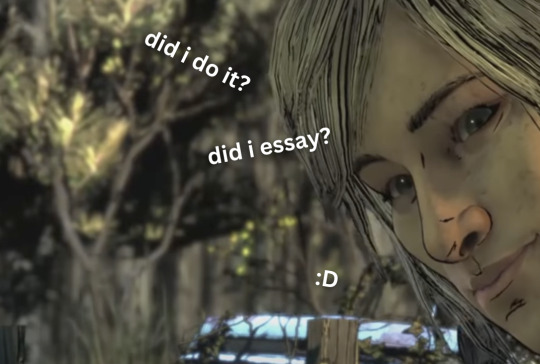
[Conclusion]
There’s nothing else this essay really has to say at its core. BPD is a very, very confusing disorder. Both internally, and externally. Stigma doesn’t help. It is, after all, a huge reason why I wrote this.
Because the stigma is quite honestly the worst thing about BPD. In many resources—whether they’re linked below, or you find them on your own—, you’ll find that a BPD diagnosis often comes with others right along with it. Addictions, eating disorders, depression…
To those who don’t know better (or maybe they do), that’s just…natural. It’s how it is.
But I remember going to my family, telling them that there is something wrong, only…to be assured otherwise. Not for my sake, but for theirs. Because BPD isn’t greatly understood, and when it is, realizing that none of them got to save me from my mother in time has its way in denial. What my mother did wasn’t right, however, I could’ve ended up like her.
Just not through those initial traumas.
Rather, I could’ve, had I made the same mistakes she did with the silent traumas thereafter—decades, now, where the people around me refuse to acknowledge my words, and listen to me, because I know the look in the eye, and I sometimes find it in the mirror. Those initial traumas may have been the first lashing, but it’s the time after which seals BPD within a person. Because the condition goes unchecked. It ferments. People tell you one thing, but you feel another, and as a child, you decide to trust their word, not your own body. Which breaks you. Gets to a point where there’s no real return, because people like me weren’t allowed to learn otherwise.
Understanding what happened to me was a very lonely experience, despite the sheer amount of people I had around me.
…and it hurts, somewhere deep in the recesses of my alexithymia, that my abuse never came from people who hated me. My mother didn’t, not in those initial years. None of my family did, in the decades into adulthood. But still, they hurt. The abuse came from the people I least want to admit, in ways that media would deem too boring for our idled attention spans.
I proclaimed that BPD is when a mechanism deploys, and the cost means a sacrifice of one integral function. It is still true—the mechanism, alongside the personality, and that specific initial trauma will influence how that BPD is expressed.
Yet, Borderline Personality Disorder happens when a mechanism deploys at a great cost, and that sacrifice is never restored. It is the neglect of the individual’s emotional turmoil after catastrophe that does it, where the same mechanism festers until it is there to stay as an ugly, depraved scar.
It is the disorder where a person was never allowed to heal, despite the mind and body screaming that they need to.
So when I hear BPD and the diagnoses alongside, I hear yet another time where someone likely knew there was something wrong, but they chose to find stability by other means, because it wasn’t found in the people around. Addictions bring those dopamine hits that BPD elevates. Eating disorders, where maybe…they can find something about themselves to control. Because there is none day to day, nor in relationships. And depression? Honestly, it speaks for itself; if a person manages to find themselves with a tumultuous anchor, or no anchor at all, it’s easy to slip into.
Or, if the diagnoses are born conditions, like ADHD or autism, or others, like schizophrenia, those speak to a concern where those conditions were left unchecked, and they festered as BPD, they were what predisposed it…
Yet, when I hear a story like Violet’s, it is a true reassurance.
Sure she’s not diagnosed. But still. The game doesn’t hide anything. It doesn’t “assure” the player that Violet isn’t this type of person, that she isn’t literally sick in the head.
TFS shows her issues quite plainly. And it’s because it does, and refuses to lie to make anyone feel better, does the game promise something that is so, so desperately yearned for in those with borderline.
It’s acknowledgement.
To tell someone that, yes, you’re not confused that you feel confused amid a chaos. You are. But there are ways to work with it, and around it. You can, actually, have strong relationships with people, and in those like Clementine, even if/when you fail, they will stay, because they understand.
To tell someone all of that is a first step towards understanding BPD, a disorder so shrouded because of stigma, and little else.
And so you have a character who still has her struggles with it, but she has a support system, and she’s taught herself enough to manage—did it well, considering the circumstances. She was left to her own devices. Sure, she had her grandparents to escape from home, but…, well. Yeah. After her grandma, Violet was then sent straight to the boarding school. The apocalypse struck. The adults left. And though her community still cherishes her, Violet…was designated as their wallflower.
So it’s funny, to have found this character this way, because Louis was right.
Violet does grow on you. If you let her, anyway. She can be suffocating.
Anyway. Hope you enjoyed.
Volt out.
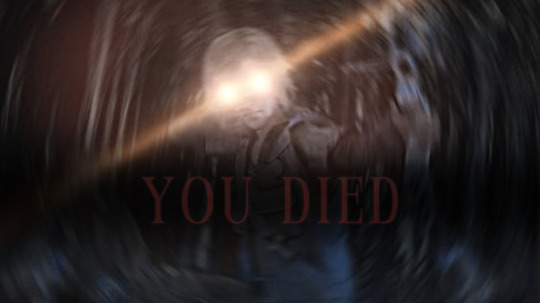
Volt's Library (my writing) Clem Comic Essay #1 (canon stuff) Clem Comic Essay #2 (language)
Links: to start your own research
BPD (General) | 1 ; 2 ; 3 (4 types); 4 (quiet BPD)
BPD (Stigma) | 1 ; 2 ; 3 ; 4 ; 5 (r/BPD)
BPD (Anchors/FP) | 1 ; 2 ; 3 ; 4 (r/BPD)
BPD vs Bipolar | 1 ; 2 ; 3 (comorbid BPD & Bipolar)
BPD (Identity Disturbance) | 1 ; 2 ; 3 ; 4 (r/BPD)
BPD (in Relationships) | 1 ; 2 ; 3
#volt's library#twdg essay#fandom essay#essay#long essay#TW: this is intended to explore BPD; so with that comes the sensitive topics as mentioned in the introduction#twdg#twdg violet#twdg clementine#violentine#twdg louis#louis & violet 🥺🥺🥺#twdg minnie#twdg minerva#twdg aj#twdg brody#twdg 4#the walking dead game#bpd#borderline personality disorder#the amount of times i looked something up and saw myself staring back at me is…too many times#like okAY GOOGLE i GET IT i have bpd#i know#LET ME WRITE ABOUT TWDG IN PEACE#thank you#and also thank the wiki transcripts my gOD#and and gotta love reminding myself that violet's dad was canonically an alcoholic#which is concerning for aydf since…well…gotta love alcoholic clementine#also also i do intend to edit/polish this later but what i wanted to say is here anyway so#im gonna nap now
62 notes
·
View notes
Text




ㅤ𐙚˙⋆.˚ 𝐤𝐰𝐨𝐧 𝐬𝐮𝐢𝐧'𝐬 𝐚𝐜𝐭𝐢𝐧𝐠 𝐜𝐚𝐫𝐞𝐞𝐫 ⭑⚝
(수인의 연기경력)
synopsis: she start debuted in 2016 at the age of 21, under the cut is all of suin's roles and kdramas
masterlist
follow my tiktok for more content
Descendants of the sun
(태양의 후예) → feb. 2016
─⚝ character name: Kim Miseul (김미슬)
─⚝ age when filming: 21 y/o
─⚝ love interest: Yang Taewoo (양태우)
─⚝ played by: Nam Joohyuk (남주혁)
─⚝ his age when filming: 22 y/o (1994)
Guardian: The lonely and great god
(쓸쓸하고 찬란 하 - 도개비) → Dec. 2016
─⚝ character name: Min Yeoreom (민여롬)
─⚝ age when filming: 21 y/o
─⚝ love interest: Lee Juyeol (이주열)
─⚝ played by: Doh Kyungsoo (도경수)
─⚝ age when filming: 23 y/o (1993)
storyline (go read this to find out what role/character they play in the kdrama!)
100 days My Prince
(백일의 낭군님) → Sept. 2018
─⚝ character name: Hong-Sim / Yoon Yi-Seo (홍심 / 윤이서)
─⚝ age when filming: 23 y/o
─⚝ love interest: Won-Deuk / Lee Yool (원득 / 이율)
─⚝ played by: Do Kyungsoo (도경수)
─⚝ age when filming: 25 y/o (1993)
Hotel Del Luna
(호텔델루나) → Jul. 2019
─⚝ character name: Jang Manwol (장만월)
─⚝ age when filming: 24 y/o
─⚝ love interest: Koo Chansung (구찬성)
─⚝ played by: Yeo Jingoo (여진구)
─⚝ age when filming: 22 y/o (1997)
Crash Landing on you
(사랑의 불시착) → Dec. 2019
─⚝ character name: Yoon Saeram (윤새람)
─⚝ age when filming: 24 y/o
─⚝ love interest: Park Juon (박주언)
─⚝ played by: Lee Dongwook (이동욱)
─⚝ age when filming: 38 y/o (1981)
Hi Bye, Mama
(하이바이, 마마) → Feb. 2020
─⚝ character name: Cha Yuri (차유리)
─⚝ age when filming: 25 y/o
─⚝ love interest: Jo Kanghwa (조강화)
─⚝ played by: Lee Soohyuk (이수혁)
─⚝ age when filming: 32 y/o (1988)
Hospital Playlist
(슬기로운 의사생활) → Mar. 2020
─⚝ character name: Park Geumjoo (박금주)
─⚝ age when filming: 25 y/o
─⚝ love interest: Song Minguk (송민국)
─⚝ played by: Cha Eunwoo (차은우)
─⚝ age when filming: 23 y/o (1997)
Mr Queen
(철인왕후) → Feb. 2021
─⚝ character name: Kim So-yong (김소용, Queen Cheorin (철린여왕)
─⚝ age when filming: 26 y/o
─⚝ love interest: Yi Won-beom (이원범, King Cheoljong (철종)
─⚝ played by: Do Kyungsoo (도경수)
─⚝ age when filming: 28 y/o (1993)
Extra- ordinary Attorney woo
(이사한 변호사 우영우) → Jun. 2022
─⚝ character name: Bae Yeseul (배예슬)
─⚝ age when filming: 27 y/o
─⚝ love interest: Jeon Taebin (전태빈)
─⚝ played by: Woo Dohwan (우도환)
─⚝ age when filming: 29 y/o (1992)
The Glory
(더글로리) → Dec. 2022
─⚝ character name: Moon Dongeun (문동은)
─⚝ age when filming: 27 y/o
─⚝ love interest: Joo Yeojeong (주여정)
─⚝ played by: Do Kyungsoo (도경수)
─⚝ age when filming: 29 y/o (1993)
Moving
(무빙) → Aug. 2023
─⚝ character name: Kang Gyu Ram (강규람)
─⚝ age when filming: 28 y/o
─⚝ love interest: Bae Doyoon (배도윤)
─⚝ played by: Ahn Hyoseop (안효셥)
─⚝ age when filming: 28 y/o (1995)
Lovely Runner
(선재 업고 튀어) → Apr. 2024
─⚝ character name: Im Sol (임솔)
─⚝ age when filming: 29 y/o
─⚝ love interest: Ryu Sunjae (류선재)
─⚝ played by: Do Kyungsoo (도경수)
─⚝ age when filming: 31 y/o (1993)
kwon suin masterlist
comment if you want to be added to a taglist for updates (´▽`ʃ♡ƪ
and comment for requests!

#seventeen added member#svt#kpop shifting#kpopdr#seventeen fanfic#seventeen imagines#seventeen#kyungsoo x reader#doh kyungsoo#kyungsoo fanfic#fictional kpop oc#fictional kpop company#fictional kpop soloist#fictional idol oc#doh kyungsoo x oc#kyungsoo#kpop added member#kpop dr#seventeen female addition#seventeen 14th member#seventeen female member#seventeen female oc
29 notes
·
View notes
Note
What influenced your artstyle? Are there any artist that you took heavy influence from? Has it always been the same artists, or, if your artstyle looked different way back when, different artist throughout the years?
ohhh yeah no my art style has changed a lot through the years! its funny because it used to be a lineless style for awhile! then it fluctuated to lineart, now its back to mostly the lineless!
I think my art really came into its own in 2019 when I played Smile for Me and discovered @/yugsly art style and fell in love. their my biggest inspiration, I admire all their work and take a heavy inspiration from them for sure
Here lets do an exploration of my Deviantart Galleries all the way back to 2011-2019 just for a quick evolution timeline lol
this is just some fun highlights, feel free to explore my ancient accounts (and apology for whatever 11-19 year old sammi be saying on there lol) [x] [x]
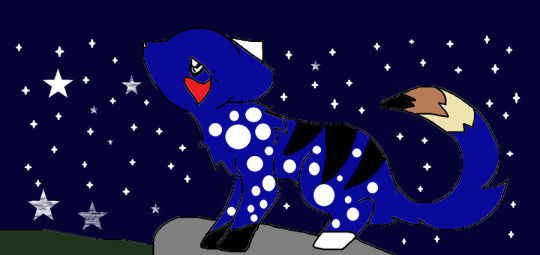
Random cat1 (Aug 28, 2011), my very first upload to Deviantart/online artist space
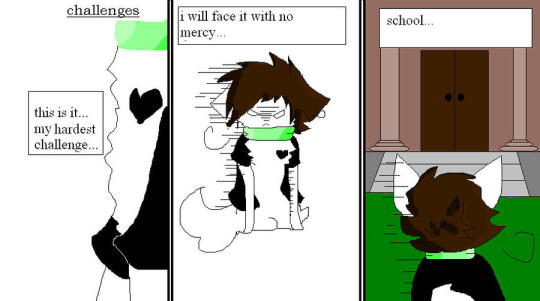
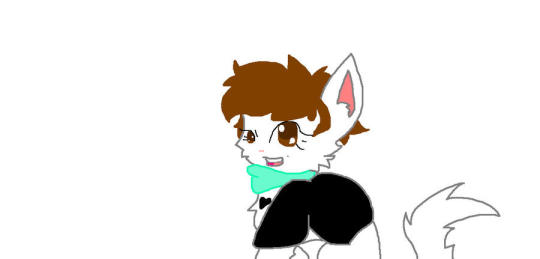
Early Uploads of my Fursona (Mar 15, 2012) (Jul 15, 2012)
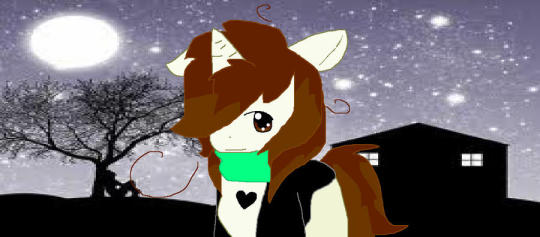
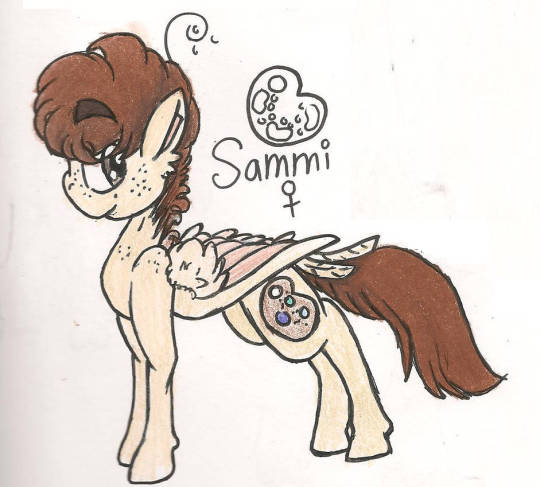
the short while when my fursona was a ponysona (Jun 26, 2012) (Jul 14, 2014)
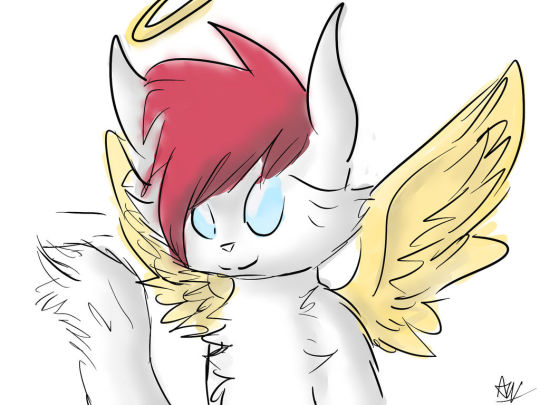
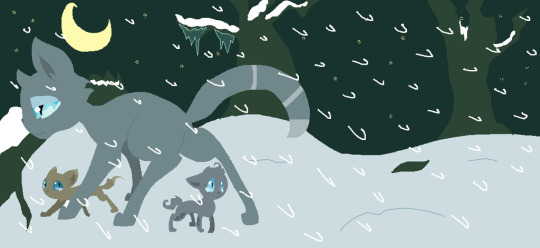
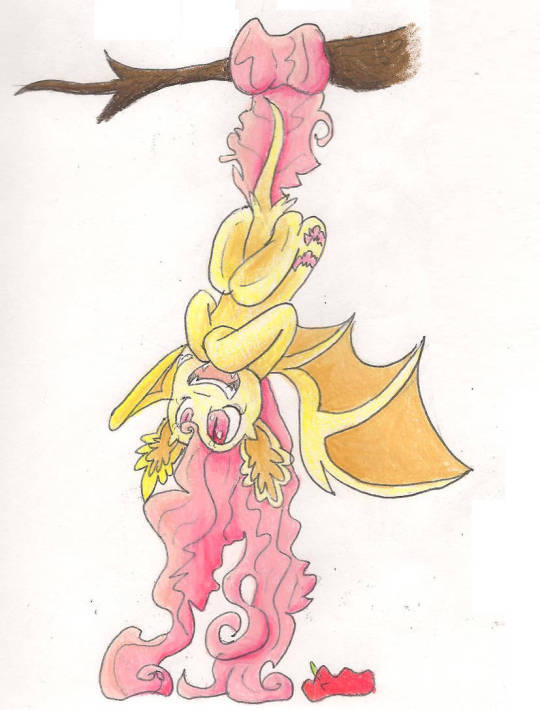
Art from 2013 (Jan 14, 2013) (Jul 29, 2013) (Dec 31, 2013)
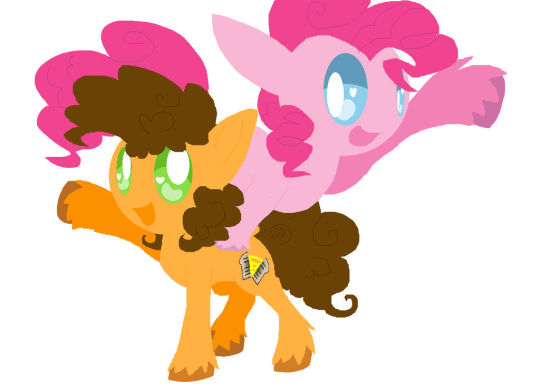
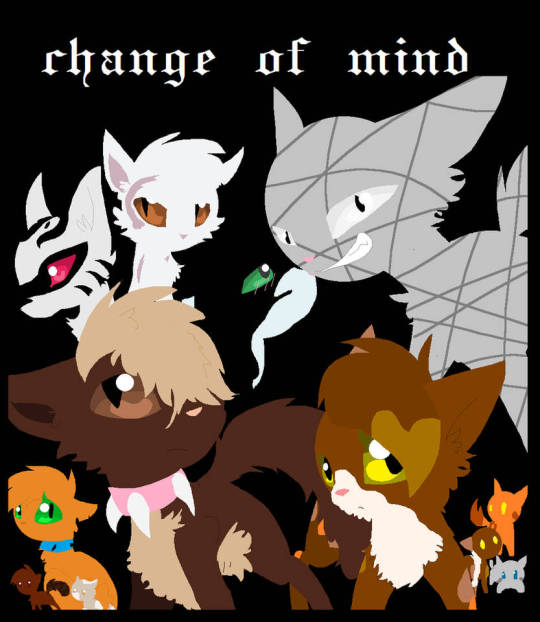
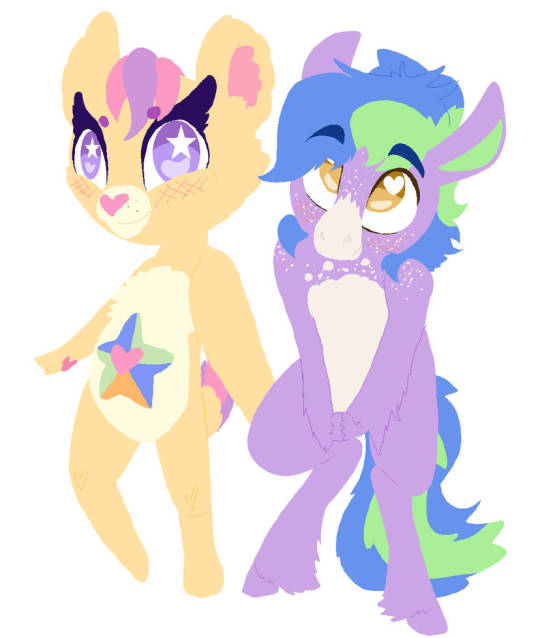
Art from 2014 (Feb 3, 2014) (May 17, 2014) (Sep 10, 2014)
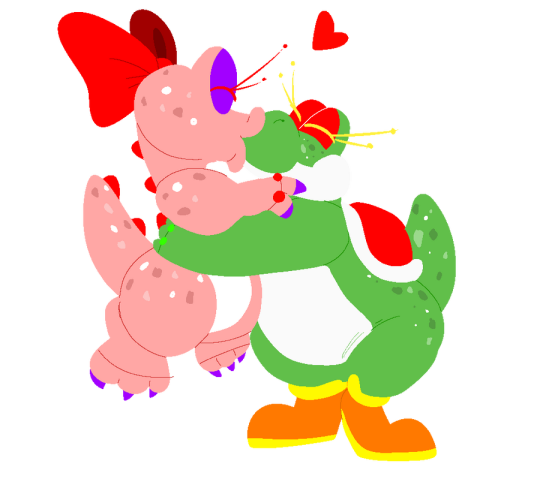
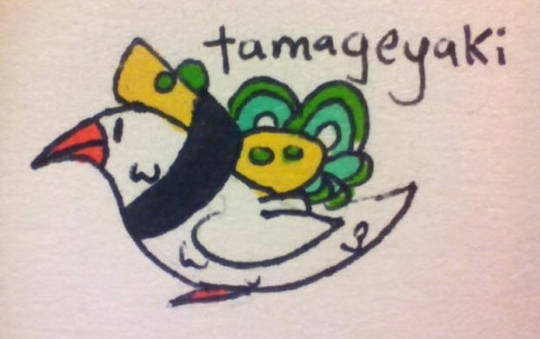
Art from 2015 (Jun 3, 2015) (Jun 17, 2015)
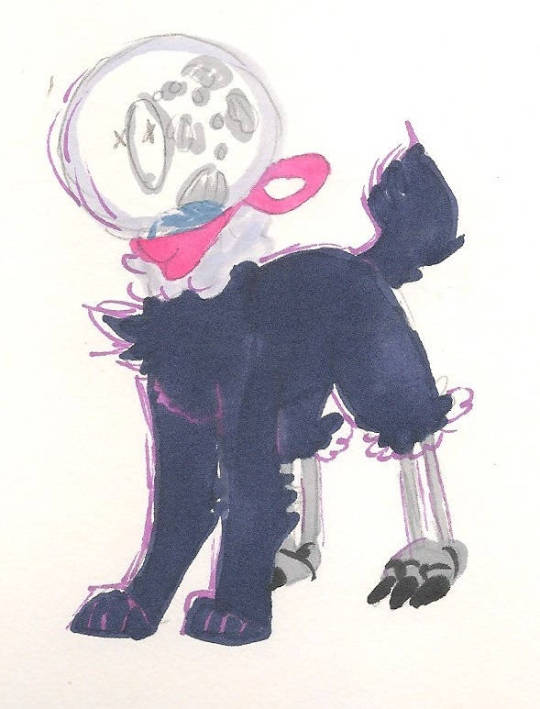
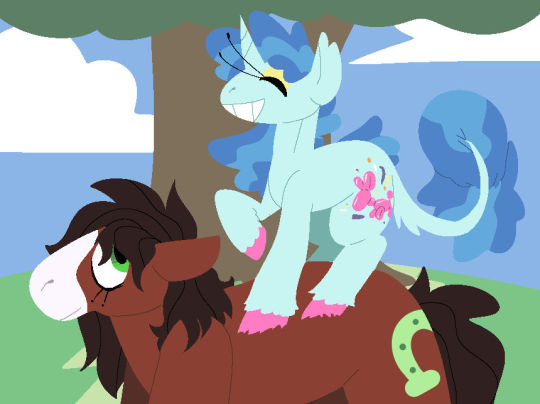
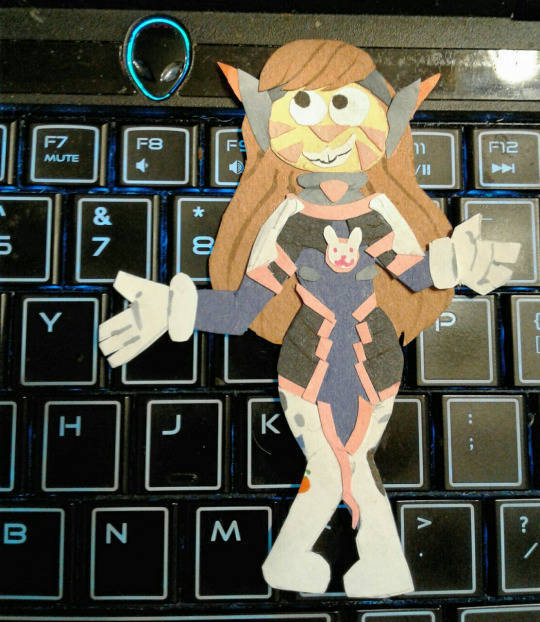
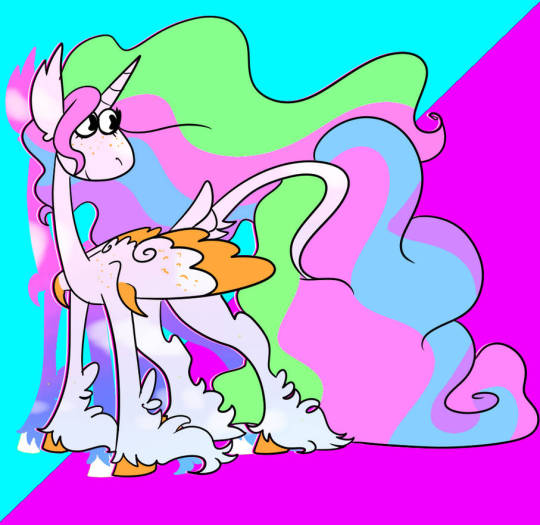
Art from 2016 (Jan 14, 2016) (Apr 23, 2016) (Jul 25, 2016) (Dec 31, 2016)
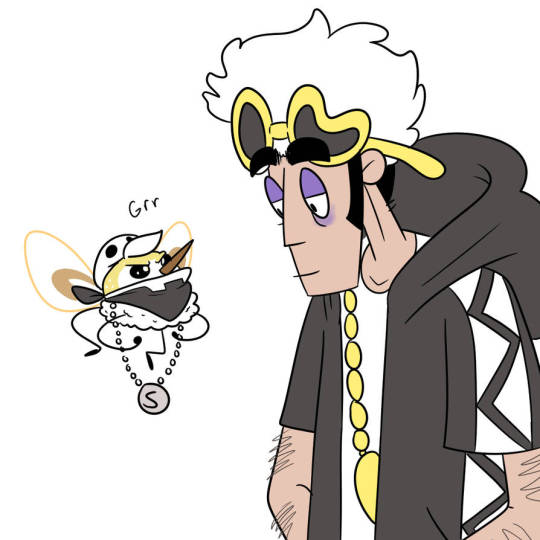

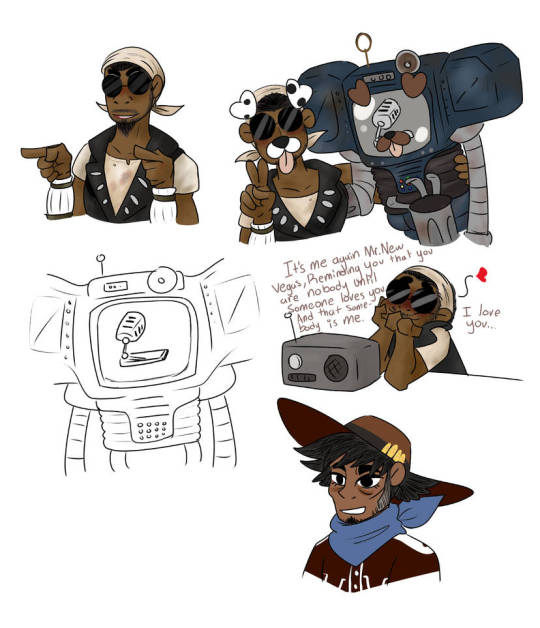
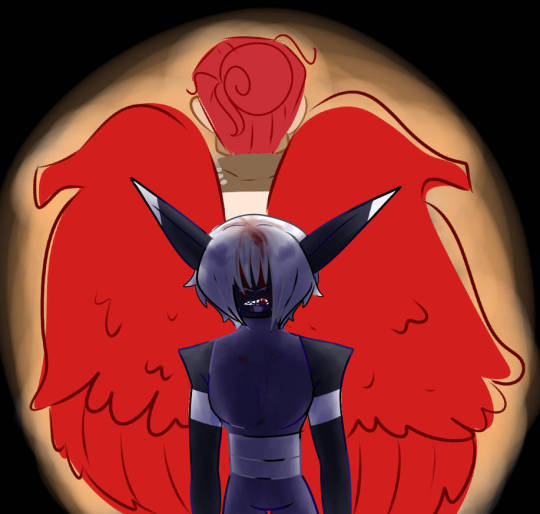
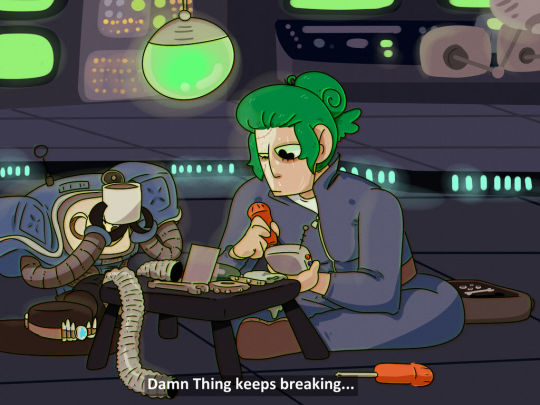
Art from 2017 (Jan 21, 2017) (Feb 15, 2017) (Jun 28, 2017) (Aug 28, 2017) (Dec 7, 2017)
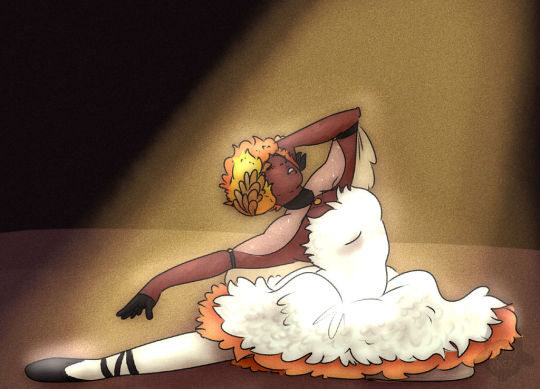
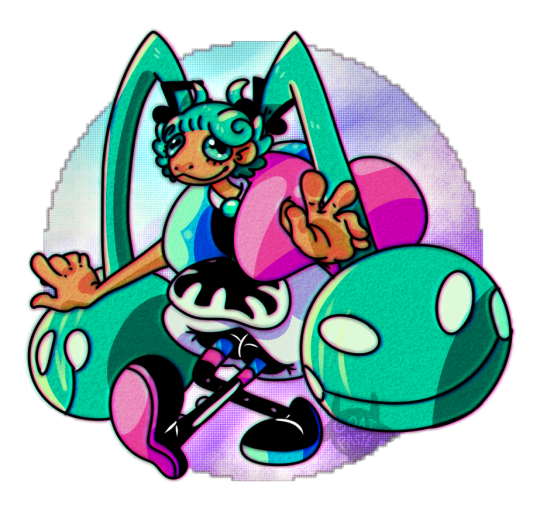
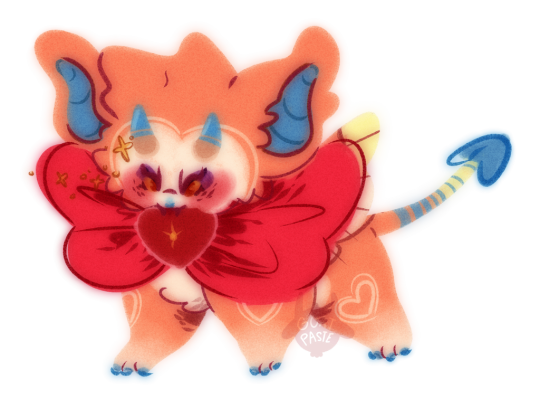
Art if 2018 (Feb 10, 2018) (Mar 22, 2018) (Oct 24, 2018)
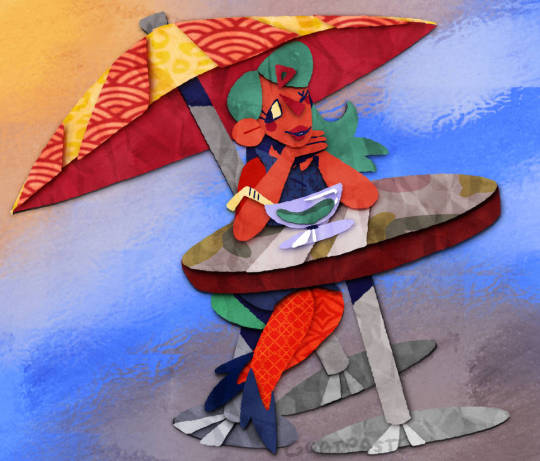
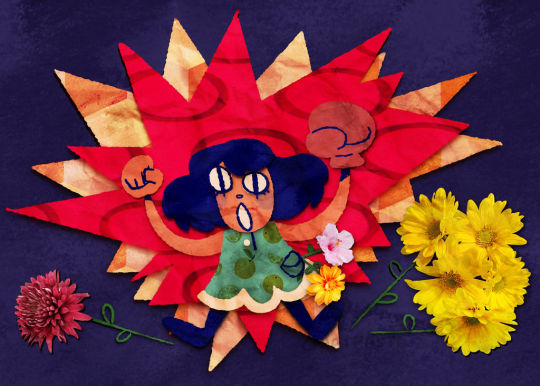
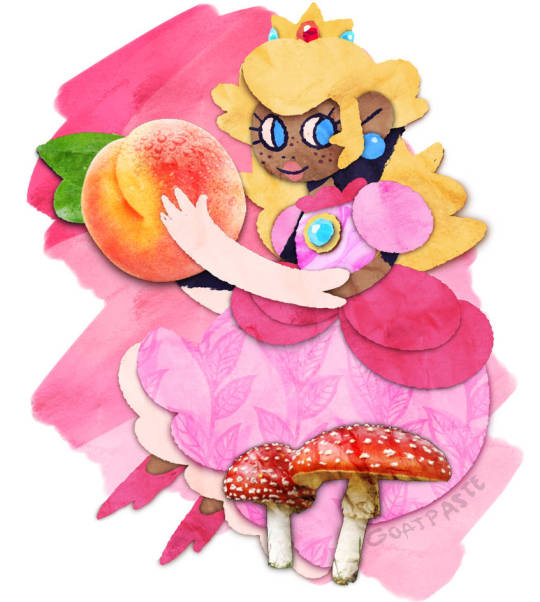
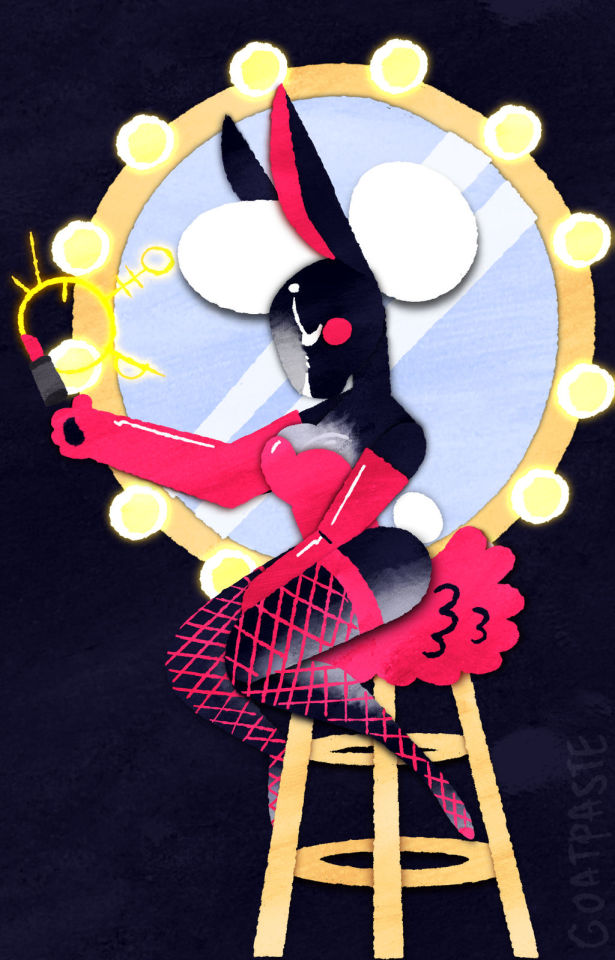
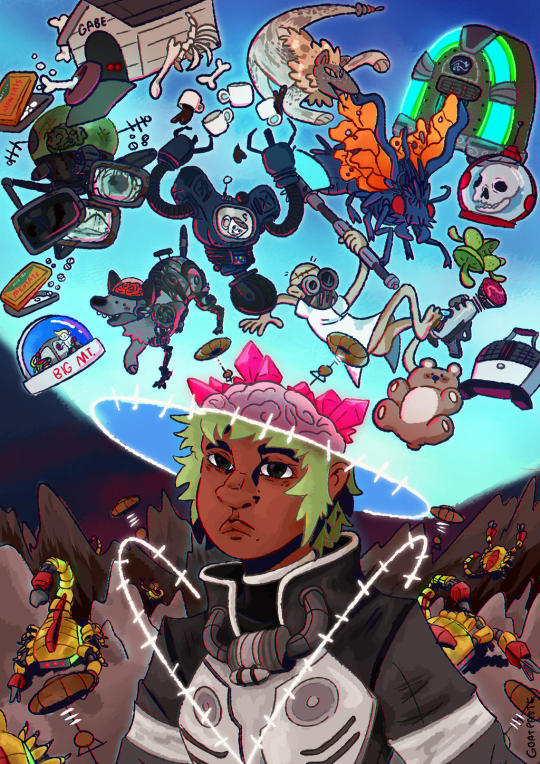
Art of 2019 (Jul 25, 2019) (Jul 25, 2019) (Aug 4, 2019) (Oct 2, 2019) (Oct 8, 2019)
28 notes
·
View notes
Text
Run BTS: 058 | BTS Chef part 2
Original Air Date: 08 JAN 2019 Episode Length: 33:17 Total Parts: 2 YouTube English Subtitles: No Title Song: Idol
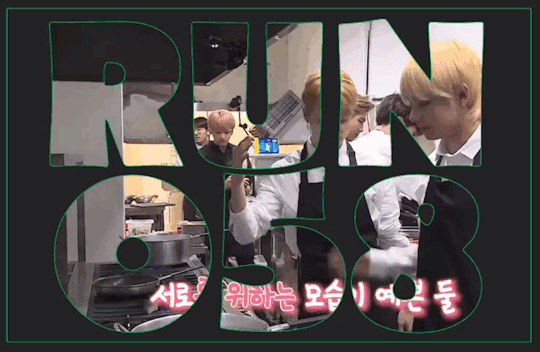
Synopsis: Continuation of the previous part. The guys are now cooking their assigned dishes.
Production: This episode honestly feels too chaotic for me. The coverage is cramped and there are a lot of shots where the audience isn't really directed where to focus their eyes even with the audio cues. This is an easy one for the casual watcher to get lost in purely due to the production and not because of a complex concept.
Endearment: The guys themselves seem a bit affected by the chaos. They either don't get great screentime because they're focusing on the task at hand or it's hammed up (I'm looking at you RM and Hobi!)
Winner: RM, YG, JH
Loser: JM, V
Best Cheater: I'm so tempted to list RM and Hobi for getting EVERYONE to help them with their only assingment, but I think I'll actually choose Jimin and V for the salt in Suga's drink. Our wonderful little slytherin.
Member Moments:
RM: RM and Hobi starting off hot with thinking a salad spinner is a blender. bless their hearts
JN: Jin, thank goodness you were babysitting the 94z and stopped them from using the other team's pasta as garlic!
YG: Again, my favorite aspect of Yoongi's personality: his quiet confidence. he just does what he needs to and isn't bothered by the chaos around him.
JH: Hobi literally getting Jin to help them strip the basil leaves 🤣😂😆
JM: Jimin is absolutely demonstrating his competence this episode as well.
V: Ah, V waiting most of the episode for the water to boil.
JK: JK, ever the helpful maknae
Bonus Content: Great moments, explains quite a bit of what we only got hints of in the episode.
CQ Rank: 3
youtube
(CQ Eval Date: 26 MAR 2024)
Check out this post for my Masterlist of all episodes and descriptions of how I'm evaluating these.
Previous Episode: 057
Next Episode: 059
#bangtan sonyeondan#run bts#ep.058#bts#jeon jungkook#park jimin#youtube#kim taehyung#min yoongi#kim seokjin#jung hoseok#kim namjoon#Youtube
13 notes
·
View notes
Text
monthly word count + year total
TOTAL FOR DECEMBER: 3 844 words. ..hhghgb i thought it was moooore
POSTED: nothing.
IN PROGRESS: -madatobiizu ABO cherry wine verse (979 words) -bleach pack fuckening ABO verse, baby cuteness (450 words) -bleach suburban ot4 (1 414 words) -bleach psychic wolves (377 words) -bleach bloodsport (624 words)
--
YEARLY TOTAL:
jan: 4 700 feb: 6 014 mar: 4 512 apr: 4 889 may: 1 719 jun: 1 184 jul: 2 271 aug: 1 615 sep: 3 026 oct: 2 109 nov: 4 272 dec: 3 844 TOTAL: 40 155 AVERAGE: 3 346.25
yeah so the downward trend is getting obvious. HHHHHH.
2010: 136 235, average: 11 353/month. ... :X :X :X 2011: 167 675, average: 13 973/month. :X 2012: 332 396, average: 27 700/month. eeeeeeee. 2013: 396 917, average: 33 076/month !!!!!!!! 2014: 315 332, average: 26 276/month ... :X 2015: 206 403, average: 17 200/month. 2016: 127 495, average: 10 625/month. >:( 2017: 80 828, average: 6 736/month. .__. 2018: 128 033, avergage: 10 669/month. FUCK YOU 2017. 2019: 159 609, average: 13 300/month. huh! 2020: 105 791, average: 8 816/month. ... hhghhrhhhhhhhhhhhhhh flops. 2021: 101 776, average: 8 481.33/month. =__= 2022: 73 461, average: 6 121.75/month. hhAHHJZVB WORSE THAN 2017 2023: 40 155, average: 3 346.25/month. this used to be three months' worth. hgh.
FICS I POSTED THIS YEAR:
-Howling Outside Your Door : Grimmichi pack fuckening : Chapters 5, 6 and Epilogue -Cherry wine chapter 8 (madatobiizu ABO) -Ichigo centric sequelette to Howling Outside Your Door (grimmichi pack fuckening ABO)
I did work on suburban ot4 and STILL don't wanna post it in public but otherwise it's still all half-dying fics trying to crawl back to the surface. no new ideas or anything. this *sucks.*
--
have some teasers anyway.
-- cherry wine --
"Don't joke. The cheeky omegas are already coming out of the woodwork as it is."
"Ah… Yes? Your fault for reacting to that girl the other day. Now they think that's your type."
Madara didn't truly change his posture but suddenly he looked a little more tired. "I thought that was why Raiha's niece seemed to have had a personality transplant."
"Aheh." Izuna hadn't even been sure he had noticed. "Mmh. Yes."
Huffing, his brother leaning on one elbow, fist mashed against his mouth grumpily, and glowered at the Lightning envoys who were doing nothing to ask for it.
"I didn't even want her, I just thought she was amusing. Who even wants to take someone to bed that they could break in two sneezing too hard?"
Izuna tried not to look too amused as the Lightning envoys went to sit and the Water ones started up the alley, lest they take it personally.
"Hm, yes, let's not tell people you like dangerous shinobi better, if that's all the same to you. They'd have a much better chance of assassinating you."
Madara threw him an irritated glare that became a watchful glance over Izuna's shoulder. Izuna fanned himself absently and took his time turning to see which of the Water Country envoys had --
Hm.
Hm.
Why was this little blond brat dragging behind to grin at Tobirama.
--
bleach pack fuckening ABO
Ichigo feels so stupidly nervous watching Grimmjow's pack investigate his apartment. His apartment with the huge bath he never uses and the sunken living room-couch area and fuck, all his pillows and blankets are in the cupboards after the grueling wash they all needed last time his pack stayed over. Renji makes a mean cocktail but by god they stain.
He's going to look like he's trying too hard if he gets out the cushions now, isn't he.
"You, uh. Need--"
"You going to close the wards, Shinigami?"
Ugh. Ichigo makes a face at the blond one. He seems to remember he's an asshole.
Wait, they're all assholes. They hang out with Grimmjow. Have to be just to survive him, no doubt.
As he turns to seal the wards again, he catches a glimpse of the man himself, standing wih shoulders loose and hip cocked as he surveys the place. In the crook of his arm is the b-- his -- Ichigo does up the wards.
--
suburban ot4
"Ichigo made a pretty big decision on his own, and he didn't talk to me. He shared it with this other person as a, a done deal thing, and he didn't even talk to me about it."
Grimmjow whistles low and quiet between his teeth. "Yeowch. I'll dig a hole behind the gazebo."
Orihime blinks. "To put his--"
"Corpse, yeah, I'll make it square so it doesn't pop up too much, we just gotta fold him up a bit."
"… Pff."
"Plant some flowers on top to make it look legit with the loose soil. Gorgeous blooms."
Orihime presses both hands against her mouth, and still cackles. "Mean!"
"Or hey, tomatoes, some peppers. Delicious."
She giggles some more. Ah, it fixes nothing, and yet it's like being tickled out of a heavy coat. Freeing, like she can breathe a bit better as it drops around her feet.
"Sounds -- hehe, sounds good. Adzuki beans? Mm, I could make my own paste."
He smirks, just a little bit.
"… Haaaaa. I should probably try talking with him before the… gardening."
Grimmjow-san scoffs. "Quitter."
"Grimmjow-san!"
"Yeah, yeah, maybe. I mean, you're giving up an occasion of growing his namesake on the corpse of the guy who wronged you, which is the coldest, most badass shit, but you do you. Tch'."
… She'll feel a little bad in a minute that she laughed, because strawberry jokes are the lowest of -- hahaha -- hanging fruits.
--
bloodsport (ichigo, charlotte, luppi)
"… What's your names, anyway," he mumbled a fifteen minutes' bullet train ride later. "And do I, um. Pronouns."
Being laughed at was almost more of a relief than it was embarrassing.
"Listen, home is just kinda -- hngh. I mean? Gay people exist--"
The small one's face spasmed; their emotions -- yeah, Ichigo didn't want to notice that howling disbelief or the edge of hysterical hilarity that went with it, thanks.
"They still have to marry and have children. I mean, if they're echt. Duty to the blood. Whatever. So gender stuff is, uh. Yeah. Not really. Fuck."
Askin concealed a grimace a beat too late. The tall one grinned genially, leaning toward Ichigo and Askin with their hands linked sweetly behind their back. "You poor deprived chickies! You confused sweethearts. I am going to open your minds so wide--"
"Ugh," the small one cut in, rolling their eyes, and got a toothy, brilliant smile aimed their way along with a sharp threatening I-will-cut-your-neck gesture.
"To start with! Arrancars have been known to reproduce asexually. In the first couple generations, or maybe when the blood is very strong, but!"
"Didn't Starrk bud out a little girl ten years back."
"That guy's a freak though. Leading to! Two, the gender binary is for squares. Still with me, chickies?"
"Uh. Yeah."
"Three, I'm the womanest woman who has ever womaned."
"Oh." Yeah, good thing Ichigo had asked. Her voice was, uh. Deep. And the contrast between her mannerisms and makeup and her T-shaped frame, thick with muscle--
"But also, transcending the restrictive gender binary inherited from our caveman ancestors back on Earth is excellently beautiful and I am, naturally, first place at it."
--
grimmichi psychic wolves
"So he just… decided to ditch us."
Yylfordt said nothing for a few seconds, and then all at once grabbed a chair and flung it to the floor, along with the clothes and books piled up on it. Nakeem watched the books scatter, sliding along the linoleum.
"What the fuck! What the fuck?! Why would he do that? We're the best, baddest fucking squad, we're fucking black ops at the top of the game, what fucking reason would he have to fucking leave?"
More silence, out loud. Inside their minds everyone was buzzing incoherently, tidbits of denial blurring past.
Makes no sense, what about his pride, we were gonna be so great--
"He hated the sex," Nakeem said.
He got stared at.
"… The heat sex?" Di Roy asks eventually. "But he always said it was the best sex of his life."
Nakeem considered it. Not wrong, but. "Also the worst."
23 notes
·
View notes
Text
See, I told you. Nothing but a nice couples dinner, good food, shooting the breeze.
Shooting the breeze?

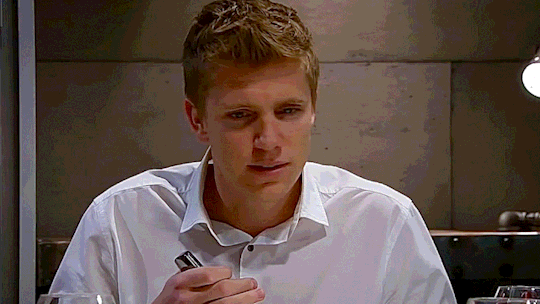
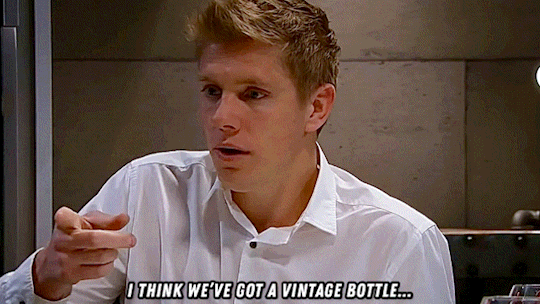
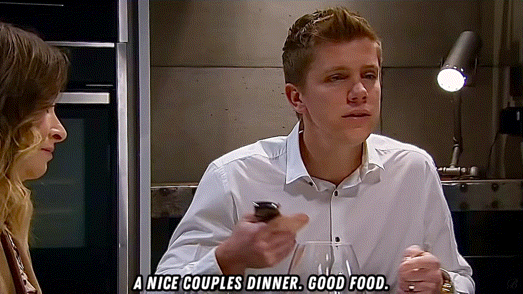


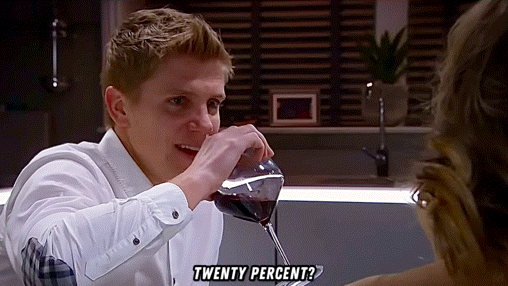
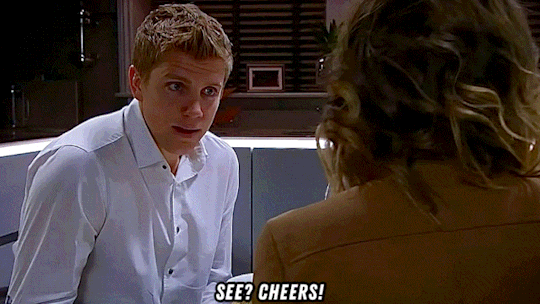


26-Mar-2019
#robron#robert sugden#aaron dingle#charity dingle#vanessa woodfield#in the mill#the couples’ meal#shooting the breeze#the new eric pollard#the bisexual blondes are the same person#robert and charity haggling over percentages#making a deal#all the expressions#vintage bottle#aaron and vanessa walking off#20190326#201903#robron episodes 2019
13 notes
·
View notes
Text

Jan 12, 2019 - 537 subscribers: https://archive.is/GP7ET

May 30, 2020 - 12,104 readers: https://archive.is/KeVut

Mar 13, 2021 - 18,295 readers: https://archive.is/tHPBX

Mar 12, 2022 - 26, 968 readers: https://web.archive.org/web/20220312213110/https://www.reddit.com/r/detrans/

Mar 12, 2023 - 45,100 members: https://reddit.com/r/detrans (Archive)


#Detrans Awareness Day#detrans#detransition#gender ideology#queer theory#religion is a mental illness
127 notes
·
View notes
Text

Always under construction!! The arts used are mentioned in each post. The same goes for references that I'm only using for that post. Template // Art
ASTROLOGY
BOOKS
[1] TOMPKINS, Sue. Aspects in Astrology: A guide to understanding planetary relationships in the horoscope. One Park Street, Rochester, Vermont 057067: Destiny Books, 2002.
[2] RIBEIRO, Anna Maria da Costa. Sinastria: Estudo dos Relacionamentos Teoria e Prática. Rio de Janeiro, RJ: Hipocampo Editora e Distribuidora Ltda., 1989.
[3] ABDUL-KHALIQ, Ajani. Hayden’s Book of Synastry: A Complete Guide to Two-Chart Astrology, Composite Charts, and How to Interpret Them. 13 junho 2017.
[4] LEWIS, James R. The Astrology Book: The Encyclopedia of Heavenly Influences. Canton, MI: Visible Ink Press™, 2003.
[5] WOOLFOLK, Joanna Martine. The Only Astrology Book You’ll Ever Need. Lanham, Maryland: Taylor Trade Publishing, 2006.
[6]NICHOLAS, Chani. You Were Born for This: Astrology for Radical Self-Acceptance. New York, NY: HarperOne, 2020.
[7] GARGATHOLIL. Depth Astrology: An Astrological Handbook - Volume 1: Introduction. Smashwords Edition, 2014.
[8] GARGATHOLIL. Depth Astrology: An Astrological Handbook: Volume 2: Planets in Signs. Smashwords Edition, 2014.
[9] GARGATHOLIL. Depth Astrology: An Astrological Handbook: Volume 3: Planets in Houses. Smashwords Edition, 2014.
[10] GARGATHOLIL. Depth Astrology: An Astrological Handbook: Volume 4: Planets in Aspect. Smashwords Edition, 2014.
[11] REED, Theresa. Astrology for Real Life: A Workbook for Beginner. Newburyport, MA: Red Wheel/Weiser, LLC, 2019.
[12] LISBOA, Claudia. Os astros sempre nos acompanham (Edição revista e ampliada): Um manual de astrologia contemporânea. Rio de Janeiro: Best Seller, 2021.
[13] ORION, Rae. Astrology For Dummies, 2nd Edition. Hoboken, NJ; Indianapolis, Indiana: Wiley Publishing, Inc., 2007.
[14] DEVORE, Nicholas. Encyclopedia of Astrology. New York: The Philosophical Library, June 1947.
[28 ]MARCH, Marion D.; McEVERS, Joan. Curso Básico de Astrologia: VOLUME I - Princípios Fundamentais. Tradução de CARMEM YOUSSEF. São Paulo: EDITORA PENSAMENTO LTDA., 1999.
WEBSITES/BLOGS
[15] SERVANTOFTHEFATES. Disponível em: https://servantofthefates.tumblr.com/. Acesso em: 29 de mar. de 2023.
[16] LINHA ASTRAL - ASTROLOGIA: Seu site de Pesquisa Astrológica. Disponível em: https://linha-astral.com.br/. Acesso em: 29 de mar. de 2023.
[17] Astromatrix. Disponível em: https://astromatrix.org/. Acesso em: 29 de mar. de 2023.
[18] Astrolibrary. Disponível em: https://astrolibrary.org/ Acesso em: 29 de mar. de 2023.
[19] Cafe Astrology. Disponível em: https://cafeastrology.com/. Acesso em: 29 de mar. de 2023.
[20] Astrologia na era de aquário, astrologia e estudos astrológicos. Disponível em: http://astrologiaeradeaquario.blogspot.com/ . Acesso em: 29 de mar. de 2023.
[21] Astrology and Numerology Study. Disponível em:https://astrologystudy.blogspot.com/ . Acesso em: 29 de mar. de 2023.
[22] Astrologia Luz e Sombra. Disponível em: https://astrologialuzesombra.com.br/ . Acesso em: 29 de mar. de 2023.
[33] Astrolink. Disponível em: https://www.astrolink.com.br/artigo/a-historia-da-astrologia. Acesso em: 25 de maio de 2023.
YOUTUBE CHANNELS
[23] Marcelo Levi. Disponível em:https://www.youtube.com/@oimarcelolevi . Acesso em: 29 mar. 2023.
[24] Astronalia | Mariane Chagas. Disponível em:https://www.youtube.com/@astronalia . Acesso em: 29 mar. 2023.
[25] Encontros Astrológicos: Débora Mechica. Disponível em:https://www.youtube.com/@encontrosastrologicos. Acesso em: 29 mar. 2023.
[26] Lais Casttelo Academia Astrologia. Disponível em:https://www.youtube.com/@laiscasttelo . Acesso em: 29 mar. 2023.
[27] Marcia Fervienza Astróloga+. Disponível em:https://www.youtube.com/@MarciaFervienza . Acesso em: 29 mar. 2023.
MY COURSES
Astrologia Autêntica - finished
Astrologia Nível 1 - Iniciação by Astronalia - coursing
Gaia Astrologia
BLOCO FUNDAMENTAL (fase 1) - finished
HISTÓRIA DA ASTROLOGIA - finished
ASTROLOGIA E MITOLOGIA - finished
ASTRONOMIA BÁSICA - finished
BLOCO FUNDAMENTAL (fase 2) - coursing
TEMPLATES/PSDS
[29] minikyuns on deviantart
[30] Iapetite on deviantart
[31] wildfireresources on deviantart
[32] sorberts on tumblr
[34] sparklypalace on deviantart
[35] soudwronf on deviantart
[36] v6que on tumblr
71 notes
·
View notes
Text
18 x 26
a cantora demi lovato tem uma música intitulada "29", a letra nos conta sobre o relacionamento dela com o wilmer. demi tinha 17 anos e ele 29 na época em que eles começaram namorar, eu como fã de carteirinha da demi desde 2011 acompanhei toda a história. no último documentário em que ela postou, demi ainda dizia que o wilmer era o grande amor da vida dela mesmo após o término, tudo parecia muito perfeito mas não é o que a letra nos trás. amadurecer trouxe uma noção para a demi dos prejuízos advindos de um namoro com um homem mais velho.
quando eu escutei a música pela primeira vez, de primeira eu fui impactada por uma empatia abundante pelo o que a demi passou. também me parece absurdo relacionamento entre um adulto e uma pessoa saindo da adolescência, ainda mais quando essa fase está tão atrelada com distúrbios alimentares e uso de drogas como foi o caso da demi. mais de um ano depois em que o álbum que trás esse single foi lançado, eu comecei refletir sobre meu antigo relacionamento e então entrei num emaranhado de melancolia. afinal, nossa diferença de idade também era grande, junto com as diferenças (já esperadas) de pensamento.
eu tinha recém feito 18 anos, no ano de 2019. você tinha 26. 8 anos de diferença. e eu queria tanto que você tivesse sido maduro e responsável e me livrado disso. me lembro que desde inicio não menti a minha idade, você estava 100% consciente e ainda assim, me disse que eu era o amor da sua vida. eu não me apaixonei por você de primeira, na verdade, eu só te achava bem legal e passado alguns dias todos já assumiram que estávamos em um relacionamento e acabou ficando nisso.
você era controlador, manipulador e mentiroso. e eu não retiro minha culpa em que também menti em algumas situações. mas eu tinha MEDO, genuinamente, eu tinha medo de você. eu não sei porque, mas você criou uma obsessão ridícula por mim e como eu não tinha experiências amorosas, tudo se arrastou por meses. eu entendia que os sinais eram errados, mas não o quanto eram e nem como sair. me lembro que com poucos dias do nosso "relacionamento" eu quis terminar, e você colocou pesos nos pés e foi até o mar com o carro da sua mãe, ameaçando se matar. nossos amigos em comum é claro me lotaram de mensagens para que eu continuasse com você, e assim eu fiz, por meses continuamos juntos apenas pelo meu medo de que você tirasse sua vida.
por ter crescido em um lar cristão eu acreditava que o amor tudo suportava e tudo superava. eu esperava que em algum momento tudo entre nós ficasse bem. mas eu morria de medo de irmos morar juntos em algum momento, porque a única forma que eu tinha de fugir de você era a distância. você me apoiava em cheirar cocaína e beber até que eu perdesse a consciência, justamente porque você sabia que nesses momentos de fraqueza eu não queria ficar sozinha, e você estava sempre ali. você me causava feridas para ter o que curar, e continuávamos naquele ciclo.
você não tinha um emprego, era dependente da sua mãe que era técnica em enfermagem. ela saia e voltava e você continuava no computador xingando minorias em jogos online. e isso era outra coisa que eu odiava. eu odiava te ouvir xingando, você inclusive estragou a diversão de começar um jogo novo para mim. eu só queria que fosse um momento divertido e você transformou em competição e gritava constantemente comigo. eu sempre trabalhei, e também estudava. era estranho para mim ter mais o que fazer do que um homem mais velho. mas o amor tudo suporta, certo?
foram incontáveis as vezes em que eu me senti suja porque você queria sexo e eu não. foram incontáveis as vezes em que eu achei todas desculpas possíveis. você deturpou minha mente que já era problemática graças aos abusos que sofri na infância. me lembro de chorar várias vezes depois em que você fazia sua "sessão de teatro" para gozar. porque você gostava de humilhação, perseguição e encenação de estupro. eu sempre tinha que fingir ser uma criança sendo abordada, puta merda. e isso sempre me trazia flashbacks do meu abuso da infância. eu me cortei diversas vezes sem que você soubesse depois desses atos. mas eu continuava fazendo, afinal, você ficava feliz e na minha cabeça, aquela era minha única missão.
eu torci muito para que você morresse do nada, sabia? assim eu não teria culpa de terminar e você acabar se matando. até hoje guardo seus segredos de qualquer um que eu converse sobre, até minha terapeuta nunca soube as coisas que você me confidencializou. diferente de você, que saiu distorcendo a história para todos que conhecíamos em comum. até chegou enviar meu rg para um deles. todos que você falou mal e me afastou você foi atrás depois tentar amizade. porque infelizmente, você é triste e não tem amigos. eu queria que isso mudasse, quem sabe você deixaria de ser um frustrado machucando pessoas pela internet.
você foi muito ruim para mim, e mesmo assim, nunca te culpei. sempre me culpei, os sinais estavam lá. mas eu era nova demais e você me deixava totalmente sozinha para que ninguém me aconselhasse. e é loucura para mim hoje em dia sequer pensar em me envolver com alguém com a idade minimamente diferente da minha. eu nunca conseguiria. você se divertiu quando entrou em contas dos meus amigos fingindo ser eles só para me ouvir? você se divertiu quando pediu para o meu amigo deixar que eu me embebedasse para depois ter que ligar para a emergência e poder continuar comigo? você se divertiu quando pediu para o meu amigo deixar que eu usasse cocaína? você se divertiu quando encenava que eu era uma criança inocente que você iria abusar? eu espero que você se lembre dessas coisas, e eu queria que elas martelassem na sua cabeça para que você pudesse mudar. acredito na mudança, viver não faria sentido se eu não me agarrasse nisso.
esse ano já fazem 5 anos em que tudo passou, e eu ainda não atingi a sua idade naquela época. é assustador para mim pensar em tudo isso. pensar que meses a fio você me perturbou em diversas redes sociais e me ligando de números diferentes. eu tentei me reaproximar de você anos depois, pensando que você tinha mudado e você continuava sendo um homem mais velho zombando de minorias na internet. eu sinto muito, é triste ver que uma pessoa não evoluiu.
graças ao meu bloco de notas, em que sempre desabafei toda minha vida. tenho vários desabafos sobre você e coisas horríveis que você me fez e disse. inclusive, você faz aniversário no mês que vem. parabéns!
que seus 31 anos sejam muito felizes,
final de ano eu irei completar 25.
#minhas autorias#projetosautorais#pequenos autores#novosescritores#mardeescritos#fumantedealmas#poecitas#projetoflorejo#liberdadeliteraria#arquivopoetico#projetoalmaflorida#escrevoparanaomorrer#escrevologoexisto#desabafo#naflordapele
7 notes
·
View notes
Photo


Katherine Johnson (née Coleman; August 26, 1918 – February 24, 2020) was an American mathematician whose calculations of orbital mechanics as a NASA employee were critical to the success of the first and subsequent U.S. crewed spaceflights. During her 33-year career at NASA and its predecessor, she earned a reputation for mastering complex manual calculations and helped pioneer the use of computers to perform the tasks. The space agency noted her "historical role as one of the first African-American women to work as a NASA scientist".
Johnson's work included calculating trajectories, launch windows, and emergency return paths for Project Mercury spaceflights, including those for astronauts Alan Shepard, the first American in space, and John Glenn, the first American in orbit, and rendezvous paths for the Apollo Lunar Module and command module on flights to the Moon. Her calculations were also essential to the beginning of the Space Shuttle program, and she worked on plans for a mission to Mars. She was known as a "human computer" for her tremendous mathematical capability and ability to work with space trajectories with such little technology and recognition at the time.
In 2015, President Barack Obama awarded Johnson the Presidential Medal of Freedom. In 2016, she was presented with the Silver Snoopy Award by NASA astronaut Leland D. Melvin and a NASA Group Achievement Award. She was portrayed by Taraji P. Henson as a lead character in the 2016 film Hidden Figures. In 2019, Johnson was awarded the Congressional Gold Medal by the United States Congress.[3] In 2021, she was inducted posthumously into the National Women's Hall of Fame
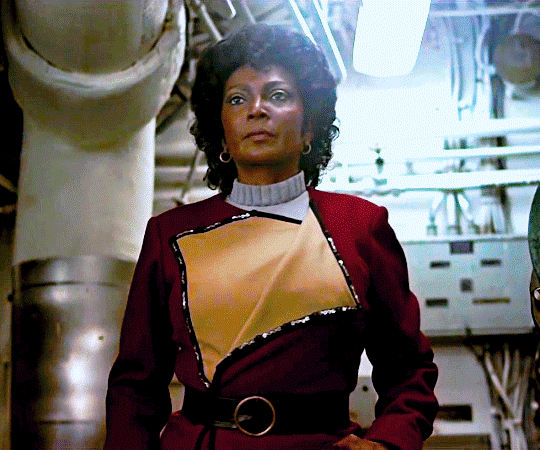

144 notes
·
View notes
Text

Mar 26, 2019 - Ginger Hill.
10 notes
·
View notes
Text
MY ENTIRE DISCOGRAPHY PART 1
Chrome Music Lab
Love Affair (November 12, 2019)
Techno Tripper (November 13, 2019)
What a Mood (November 13, 2019) (updated: January 29, 2021)
Stringer (November 13, 2019)
Misery Repeats Itself (November 13, 2019)
Hyponiticus (January 11, 2020) (updated: July 16, 2021)
A Bag of Skittles (January 11, 2020)
Gloom Day (February 14, 2020)* (updated: July 16, 2021)
Mood Slur (June 1, 2020 last updated on July 16, 2021)
Dissonance (June 12, 2020)
The Gremlin Strut (March 9 2020 then June 12- June 22, 2020) (yes it remained as Work in Progress)
Hill of Hope (June 23, 2020)
To Say Goodbye (July 20, 2020) (It remained as a wip)
Small Dramatic Symphony (July 23, 2020 - September 28, 2020)
Wave of Shame (March 29, 2021)
Misery March (September 11, 2021)
Running From Strangers (September 12, 2021)
Firefly Park (March 3, 2022)
Teardrop Pond (May 12, 2023)
Lonely Sorcerer [demo] (May 12, 2023) (Remains as a WIP)
Underground Laboratory [demo] (May 12, 2023) (Remains as a WIP)
Going back to this somehow felt sad
BeepBox
Early Days
Spatial Daze (June 28, 2020)
Old Time Mariachi (June 29, 2020)
Walk of Shame (July 3, 2020)
Retro Trials
Festivities (July 19 - July 22, 2020)
Despicable Dungeon (July 19 - July 20, 2020)
Disobedience (July 20 - July 22, 2020)
Dance of The Awkward (July 23 - August 24, 2020)1
Beatdown in Aisle One (July 23, 2020)
Downtown Jog (July 25 - July 27, 2020)
Nighttime Sky (July 30, 2020)
8-Bit Dungeon
Blooper (August 24, 2020)
Carnage (August 24, 2020)
Unorthodox (August 28, 2020)
Return to The Modern Version
Lullaby For The Night (September 11, 2020)
Weeping Willows (October 10, 2020)
High-Frequency Destruction (October 21, 2020) (Updated: February 6, 2023)
Desert Battle (November 18, 2020)2
Short and Sweet
Puppy (November 19, 2020)3
Despair and Anguish (November 24, 2020)
Siren Song (November 27, 2020)
A Deserted Mindset (November 28, 2020 - January 17, 2021)
Old Habits Die Hard
Cave of Misfortune (January 10 - January 17, 2021)4
A Veil of Sunshine (January 17, 2021)
Dance of The Awkward [Revamped] (January 17, 2021)5
Velvet Tango (January 28, 2021)6
Nighttime Sky [Revamped] (February 4, 2021)
Rockin’ Those Notes
Star Struck (February 7, 2021)
Stage Fight (February 17, 2021)
Somber Trail (February 19, 2021)
My Take On Bolero (February 19, 2021)7
My Take on Fortnite* (February 24, 2021)
Crystal Cavern (February 24, 2021)
Ride Into War (February 25, 2021)
Salty Strut (March 3, 2021)8
*I don’t play this game. Ever.
Into The Sun
The Shameless ‘Victim’ (March 11, 2021)12
The Idol with Wax Wings (March 17, 2021)
High Heel Beatdown (March 20, 2021)
River of Fire (March 26, 2021)
Small Ghoul Encounter (April 3, 2021)
Broken Pride (April 6, 2021)
From Heaven He Fell
The Trail of Disaster (April 16, 2021)13
Cold Silence (April 19, 2021)
Peak Peril (April 21, 2021)
Disruption Cavern (May 14, 2021)14
Drastic Measures (May 14, 2021)
Heart of a Hypocrite (June 2, 2021)
The Abandoner (June 9, 2021)
Rough-Housing (July 3, 2021)
Heavy Steps
Wicked Showdown (July 11, 2021)
Uncanny Jingle (July 22, 2021)
Relentless Opposition (August 1, 2021)
Uncertainty (August 8, 2021)
Frantic Race (August 12, 2021)9
Guilty (August 14, 2021)
Fantasy Hike (August 31, 2021)
Careless Steps
Misery March (September 11, 2021)
Dreary Me (September 15, 2021)
Whispering Meadows (October 7, 2021)
Dearest Sweetheart (October 20, 2021)
Tunnel Vision (December 5, 2021)
Adventure Peak (December 8, 2021)16
Headfirst
Aggro (February 21, 2022)
Fiend (March 3, 2022)
Chase something…[Demo] (Mar 4, 2022)
Foreign Drama (March 19, 2022)18
Starlight Meadow (April 17, 2022)
Mystery Cavern (May 1, 2022)
Chasing Dreams (May 11, 2022)
Dive In
Dunno..[Demo] (May 16, 2022)
Weary Traveler (May 19, 2022)
There’s Always Hope (May 24, 2022)
Precarious Cavern (June 13, 2022)
The S.S StarFigher (June 24, 2022)
Star-Dancin’ (June 26, 2022)
Summer Runnin’ (June 27, 2022)10
Lonely Sorcerer [Demo] (July 1, 2022)
#Maqswanpairmusic#beepbox#beepbox songs#old#chrome music lab songs#chrome music lab#swanpairmusicdiscography#discography#beepboxlinks#music links#I basically copy and pasted#I HAD TO TAKE AWAY FOUR ALBUMS
14 notes
·
View notes
Text
Today is Thursday, Oct. 31, the 305th day of 2024 with 61 to follow.
This is Halloween.
The moon is waning. Morning stars are Jupiter, Mars, Neptune, Saturn and Uranus. Evening stars are Jupiter, Mars, Mercury, Neptune, Saturn, Uranus and Venus.
On this date in history:
In 1517, Martin Luther began the Protestant Reformation by nailing a proclamation -- the 95 theses -- to the door of a church in Wittenberg, Germany.
In 1864, Nevada was admitted to the United States as the 36th state.
In 1931, with the Great Depression in full swing, the U.S. Treasury Department announced that 827 banks had failed during the previous two months.
In 1941, more than a month before the United States entered World War II, a German submarine torpedoed and sunk a U.S. destroyer, the USS Reuben James.
In 1941, the Mount Rushmore National Memorial in South Dakota -- consisting of the sculpted heads of U.S. Presidents George Washington, Thomas Jefferson, Abraham Lincoln and Teddy Roosevelt -- was completed.
In 1968, U.S. President Lyndon Johnson announced a halt to the bombing of North Vietnam.
In 1984, Indian Prime Minister Indira Gandhi was assassinated outside her home in a volley of gunfire by Sikh members of her own security force. Her son, Rajiv, succeeded her.
In 1985, salvage divers located the remains of the booty-laden pirate ship Whydah, which sank Feb. 17, 1717, off Cape Cod, Mass.
In 1993, actor River Phoenix died of a drug overdose outside of a West Hollywood, Calif., nightclub, The Viper Room. He starred in Stand By Me and My Own Private Idaho.
In 1994, President Bill Clinton signed the California Desert Protection Act, establishing Death Valley and Joshua Tree National Parks.
In 2004, Iranian lawmakers chanted, "Death to America!" after a unanimous vote to allow their government to resume uranium enrichment activities.
In 2008, U.S. Army Gen. David Petraeus took over as head of the Central Command, in charge of military operations in Iraq, Afghanistan, Pakistan, Syria, Iran and other countries.
In 2010, Brazilians elected Dilma Rousseff as their first female president. The former energy minister and choice of outgoing President Luiz Inacio Lula da Silva defeated Jose Serra in a runoff with 56 percent of the vote. Rousseff won a second term Oct. 26, 2014.
In 2011, a U.N. report said the world's population had topped the 7 billion mark, doubling the total of 1968. The U.N. Population Fund predicted 8 billion people by 2025.
In 2014, SpaceShipTwo, Virgin Galactic's effort in spaceflight for tourists, crashed during a test flight in the Mojave Desert, killing one of the pilots and seriously injuring the other.
In 2015, Russian airliner Metrojet Flight 9268 crashed after taking off from Sharm el-Sheikh International Airport in Egypt, killing all 224 on board. Investigators suspected a bomb on the plane caused the crash.
In 2017, a man drove a rented truck onto a bike path in New York City, killing eight people and injuring 11 others. The alleged attacker's trial on terror charges began in October 2022 after multiple delays.
In 2019, the Islamic State named Abu Ibrahim al-Hashimi al-Qurashi as its new leader after the death of Abu Bakr al-Baghdadi.
A thought for the day: "Variety is the soul of pleasure." -- English writer Aphra Behn
2 notes
·
View notes
Text
The Villainous Timeline (Part 1): Flug & Miss Heed
Made this theory to calculate, breakdown and understand the Villainous Timeline. (I will be making 2 or 3 parts as ran out of space for photos.😅)
Part 2: Demencia and 5.0.5.
Part 3: SunBlast and Miss Heed
Alan mentioned on Instagram that:
"The Villainous timeline so far followed real life (as shown on Miss Heed and Penumbra's Instagram) but when the show airs, it’ll slow down and follow its own timeline as they wait for more episodes to release, but it’ll be similar to ours. As we know, all actual real events happened in Villainous and BH even had some influence over them, so I’m sure they’ll still follow ours but at a different pace."
So 3 points to note:
The Villainous Timeline Follows our Time line but at a different pace.
The timeline slows down when the show airs.
BH has some influence over real events happening.
This is confirmed here as when the show airs in 2021, in Episode 4, the date here (in red) is shown as 14 Jul 2021.

So Given the Ages and Timeline:
Flug is 26 yrs old in Aug 2019
So in Aug 2022 Flug is 29 yrs old. (until Aug 2023, when he becomes 30 yrs old)
Flug's Journal and Demecia's Diary came out on 21st Feb 2022
Flug said in his book “I have been working as the chief scientist of the Black Hat Organization for approximately 8-10 years.” [Google Translate]

Flug's P.E.A.C.E. files mentioned he has been working in Black Hat Organization since March 10, 2011.

21st Feb 2022 - 10 Mar 2011 = 10 years 11 months, 11 days.
So, Flug has been working in BlackHat Org years for 10 years (11 months, 11 days) - (Note: round up to 11 yrs for easier calculation)
29 yrs old - 11 years = 18 yrs old.
Based on the year in the photo of Flug’s Thesis in Episode 6, we can conclude that Flug's thesis started out and was finished on the Year 2005. If it was longer there would be a time range. (e.g. 2005 - 2006)
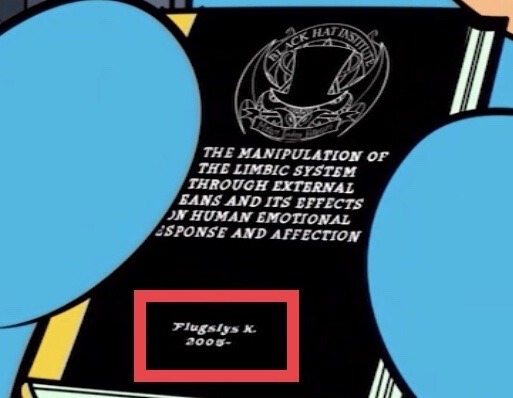
2022 - 2005 = 17 years
29 yrs - 17 years = 12 yrs old
If they follow Mexico School System, Black Hat Institution should either start in early July or late Aug.
So Flug started going to school either in Jul/Aug 2005
So Flug was 12 years old when he met Miss Heed and started going to Black Hat Institution. (So they started at middle school age)
This was probably the class photo taken on the 1st day of school.
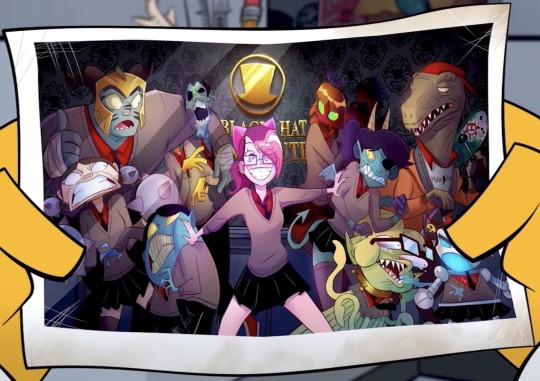
It's shown he was celebrating Halloween so this picture should take place on the 31st Oct, so they've known each other around 2-3 months at this time.
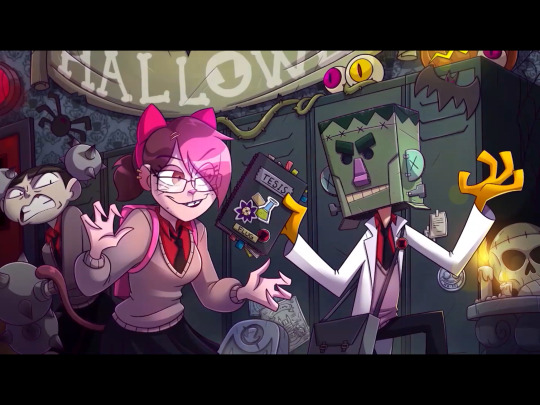
According to this article, It takes around 2-6 months to write a thesis
So maybe Flug has to submit his thesis at the end of the year in Dec 2005 before Christmas, as there were no Christmas decorations (I think even if BlackHat hates Christmas, the Villains would probably celebrate Christmas in their own evil way)
So Miss Heed probably stole Flug's thesis in Nov-Dec 2005 and left to become a hero at the age of 12 yrs old.
So, Flug and Miss Heed knew each other for about 4-5 months.
According to Miss Heed's P.E.A.C.E. Files, she was 17 yrs old while the experiments were being conducted.
17 yrs old - 12 yrs old = 5 years.
So does that mean that Miss Heed was experimented on at P.E.A.C.E. when she was 12 years old, for 5 years before she got her powers at the age of 17 yrs old? (Unless something happened between the 5 yr gap.)
Also, According to her P.E.A.C.E. Files, she needed to train her powers, which might take a few months or immediately.
So this picture with Flug staring at the TV looking at Miss Heed, might be when he is 17 - 18 yrs old before he joined Black Hat Organization.

Conclusion:
-> Flug has been working in BHO for 10 yrs 11 months, 11 days, since he was 18 yrs old.
-> Flug and Miss Heed were 12 yrs old when they met each other for about 4-5 months.
-> Afterwards, in the same year Miss Heed left to become a hero and might have been experimented on for 5 years before she developed her powers at the age of 17 years old.
#villainous#villanos#dr flug#dr kenning flugslys#missheed#miss heed#cecilia amanda kelly#villainous theory#villainous headcanons#flug#black hat organization#black hat
73 notes
·
View notes